
Get latest financial information, tips, insights & more

IPO: Understanding Initial Public Offerings and How They Work |
When companies grow and need to raise capital, they often turn to the public markets. One of the most common methods for doing so is through an Initial Public Offering, commonly known as an IPO. Understanding what an IPO is, how it works, and its potential benefits and risks is crucial for anyone considering investing in the stock market.

Insurance in India: Types, Importance & Benefits
In a world where uncertainties are an inherent part of life, insurance plays a pivotal role in providing financial security and peace of mind. Understanding the fundamentals and definition of insurance and the various types available in India is essential for making informed decisions about safeguarding your future. This comprehensive guide will delve into the meaning of insurance, its importance, and the diverse types of insurance policies available in the Indian market.

Form 16 in Income Tax: Definition, Benefits, Eligibility & Filing Guide
Understanding your tax obligations is essential for effective financial management, and one key document in this process is Form 16. This guide will walk you through what Form 16 is, its importance, and how to use it while filing your income tax returns.

What is Dividend Yield in Share Market? Definition and Calculation
Dividend yield is a crucial financial metric that investors use to evaluate the income generated from their investments in dividend-paying stocks. Understanding what is dividend yield can help investors make informed decisions about their portfolios, focusing not only on potential capital gains but also on the regular income generated from dividends. This comprehensive guide will explain the definition, calculation, importance, and impact of dividend yield on investment decisions, and explore the factors that affect it.

Understanding CAGR: Formula, Calculation, and Importance
When it comes to investing, knowing how to evaluate the performance of your assets is crucial. One of the most effective tools for this purpose is the Compound Annual Growth Rate (CAGR). This metric provides a clear picture of an investment's growth over time, making it easier for investors to gauge the potential return on their investments. In this blog, we’ll explore the definition of CAGR, how to calculate it, its importance, and its various uses.

An Introduction to Dividends and Their Importance in Investing
A dividend is a portion of a company's earnings distributed to its shareholders as a reward for their investment. Dividends are typically paid in cash, but they can also be issued as additional shares of stock or other property. Understanding what is dividend is crucial for investors looking to generate income from their investments. Dividends play a significant role in the overall return on investment, making them an essential aspect of financial planning. They represent a tangible benefit of holding a company's stock, rewarding investors for their confidence and investment in the business.

Investing in Large Cap Mutual Funds: What You Need to Know
Investing in mutual funds offers a diversified and professionally managed approach to growing your wealth. Among the various types of mutual funds available, large cap mutual funds stand out as a popular choice, particularly for investors seeking stability and consistent returns. But what exactly are large cap mutual funds, and why should they be part of your investment strategy? Let’s delve into these questions and explore the benefits, workings, and suitability of large cap mutual funds.

Systematic Withdrawal Plan (SWP) in Mutual Funds: A Guide to Regular Income
A Systematic Withdrawal Plan (SWP) is a financial facility that allows investors to withdraw a fixed amount of money from their mutual fund investment at regular intervals. This feature is particularly beneficial for those seeking a steady income stream, such as retirees or individuals requiring regular cash flow. SWP provides the flexibility to customize withdrawal amounts and frequencies, making it an attractive option for many investors.

Credit Card Minimum Due: What Every Credit Card Holder Should Know
Navigating the world of credit cards can feel overwhelming, especially with terms like "minimum due." Whether you’re a seasoned cardholder or new to credit, understanding what the minimum due means is essential for your financial health. In this blog, we’ll explore what the minimum due is, why it exists, and how it impacts your finances. By the end, you'll be equipped with valuable insights to manage your credit card payments wisely.

Importance of NRI Banking for Indians Living Abroad
For Non-Resident Indians (NRIs), managing finances while living abroad can be challenging. NRI banking solutions are designed to simplify financial management for global Indians, providing a wide range of services to cater to their unique needs. Let's explore the benefits of NRI banking, how NRIs can manage finances globally, and special products offered by Bank of Baroda.

What is a Working Capital Loan and How Can It Benefit Your Business?
In the fast-paced world of business, maintaining a steady flow of working capital is essential for smooth operations. A working capital loan is designed to help businesses manage their short-term financial needs, ensuring they have sufficient funds to cover daily expenses and operational costs. This comprehensive guide will explore what working capital loans are, their features, types, pros and cons, and how they can be used effectively in business.

What is an MSME Loan & how does it work?
MSME loans, or Micro, Small, and Medium Enterprises loans, are designed to support the growth and development of small businesses. These loans provide the necessary funds for business expansion, operational expenses, and other financial needs. The MSME stands for Micro, Small, and Medium Enterprises.

IMPS in Banking – Full Form, Features, Transaction Limit, Charges & how it works
Baking services are constantly evolving making services like sending and receiving money online through the banking app or net banking common these days. Available seamlessly for customers round the clock particularly when it comes to money transfer, gone are the days of tokens and teller counters even when transferring high-value funds. No longer are you expected to fill out withdrawal and deposit slips and wait for your turn when your token number is flashed, thanks to Internet banking life has become so much smoother and easier. Not just transferring money but ordering food, groceries, and utility items from the app or internet banking, IMPS will initiate quick payment.

Ways to Check FASTag Balance
FASTag is an electronic toll collection system in India, implemented by the National Highway Authority of India (NHAI). It is designed to eliminate the need for stopping at toll plazas to pay toll fees, thereby reducing traffic congestion and enhancing the convenience of road users. FASTag uses Radio Frequency Identification (RFID) technology for making toll payments directly from the prepaid account linked to it.

What is NEFT? A Complete Guide to National Electronic Funds Transfer
Now, you might be wondering, “what is neft fund transfer?”. NEFT full form in banking refers to National Electronic Funds Transfer. It is a widely used electronic funds transfer system in India. It enables individuals and businesses to transfer funds from one bank account to another seamlessly. The system is managed and regulated by the Reserve Bank of India (RBI), providing a secure and efficient means of transferring money. NEFT transactions typically involve the sender's and recipient's bank branches, and customers can initiate transfers through various channels such as online banking, mobile apps, or by visiting their bank branch. It has become an integral part of the Indian banking system, facilitating quick and reliable interbank transactions.

What is a Cash Deposit Machine (CDM)?
In today’s fast-paced world, banking technology has evolved to offer convenience at our fingertips. One such innovation is the Cash Deposit Machine (CDM), a device that allows customers to deposit cash directly into their bank accounts without the need to visit a bank teller. This guide explores what a Cash Deposit Machine is, how it works, and the benefits it offers to users.

What is Meant by Internet Banking and How Does It Work
In this day of technology, where the country is close to becoming a cashless economy, internet banking plays a pivotal role in shaping the consumer’s banking habits. With this evolution in banking technology, financial freedom is just a click away and has emerged as a comprehensive solution for all banking needs.

Recharge FASTag: Step-by-Step Guide for Easy Top-Ups
FASTag is an electronic toll collection system in India, introduced to streamline the toll payment process on highways. Utilizing Radio Frequency Identification (RFID) technology, it enables automatic deduction of toll charges from a prepaid or linked account without requiring the vehicle to stop at the toll plaza.

What is CVV on a Debit Card? Understanding Its Importance and Security Features
Whenever you purchase something online using a Debit Card, you will find a field requesting for CVV. The full form of CVV is the Card verification value. Debit cards have CVVs, and you can find the three digit number typed on the back side of the card. Flip the card around and the CVV number can be found below the magnetic strip. The first three of four digits of the CVV are hidden by the magnetic strip and the last three are visible. People are likely to get confused between CVV and PIN, but these are two different numbers and are required for different purposes. For completing any online transaction CVV is a must as it ensures secure transactions preventing risks and frauds. So let us help you understand the function of CVV.

What is VPA in UPI and How Does It Work?
With the advent of digital payment, life has become so much simpler. Gone are those days when cash payment was the only mode available, and people carried bulky wallets. Virtual Payment Address (VPA), a unique payment option part of the Unified Payments Interface (UPI), has largely replaced traditional payment. This simplified monetary transaction is proving to be an enhanced asset driven with security, and the acceptance of UPI payments across the country and businesses is almost a norm these days.

How to Update Your FASTag KYC: Step-by-Step Guide for Online & Offline Methods
Keeping your FASTag KYC information up to date is important. KYC, which stands for Know Your Customer, helps verify your identity and ensures secure transactions. When you first get FASTag, you provide KYC details. If this information changes, such as your address or ID number, you should update it with your bank as soon as possible. Before we delve into how to update KYC in FASTag, let us understand what FASTag is.

Mobile Banking - Benefits, Features & How to Get Started
In the age of smartphones and their ability to onboard various applications, banks have channeled their facilities and services through institute applications, making the lives of consumers easier to access banking services. With the need to visit the bank almost becoming unnecessary, you can open accounts, transfer funds though IMPS, NEFT, RTGS, UPI, MMID etc, manage your accounts like generating statement, Interest certificate, provisional certificate for Loan accounts, plan investments in Govt Schemes like PPF, SSA, KVP, SGB etc as well as in private entities like Mutual fund and Life Insurance. You can pay bills, Recharge your phone, DTH etc. Now banks have gone step ahead where you can avail digital personal loan where you can avail digital personal loan of a certain amount based on the transaction history of the account that too without visiting your branch and also you can get a monthly spending summary all from one banking app. So, what is mobile banking? Let us discuss the scope in detail.

IFSC Codes: What They Mean, How to Find & How Does It Affect Banking?
IFSC code stands for Indian Financial System Code. This code is a unique 11-character alphanumeric combination that serves as an identifier for a specific bank branch within the Indian financial system. Each bank branch that engages in electronic fund transfers is assigned a unique IFSC code to facilitate accurate routing and seamless transactions.

Maximizing Your Savings: Auto Sweep Facility Explained
The auto sweep facility is a unique banking feature designed to maximize your savings by automatically transferring surplus funds from your savings account to a fixed deposit (FD) account. When the balance in your savings account exceeds a predetermined threshold, the excess amount is "swept" into a higher-interest earning FD. This facility ensures that your idle funds earn better returns without compromising liquidity. Essentially, it combines the benefits of a savings account and a fixed deposit, providing both liquidity and higher interest rates.

Difference Between Visa and Mastercard: Which One is Right for You?
When it comes to choosing a debit, credit or prepaid card, one of the most common questions is, "Visa card vs Mastercard: which one is better?" Both Visa and Mastercard are widely recognized and accepted worldwide, but there are differences between the two that may influence your decision. This guide will explore these differences, helping you understand which card might be better suited to your needs.

Understanding Fixed Deposit Benefits for Senior Citizens: A Complete Guide
For senior citizens, securing financial stability and earning a reliable income from their savings is crucial. Fixed deposits (FDs) are one of the most popular investment options for this demographic due to their safety and assured returns. This guide explores the fixed deposit interest for senior citizens, the features of these deposits, their financial benefits, comparisons with other investment options, and tips on choosing the right FD.

Unlocking Financial Efficiency: How Cash Management Services Transform Banking
In the dynamic world of finance, Cash Management Services play a pivotal role in helping businesses maintain liquidity, optimize cash flow, and ensure smooth financial operations. Banks offer these services to manage their clients' cash transactions efficiently. This blog delves into the nuances of cash management services, highlighting their importance, types, functioning, and benefits.

What is a Bank Statement - Meaning, Features and Benefits
In today's financial landscape, it's essential for everyone to understand what bank statements are. whether you're an individual managing your personal finances or a business handling transaction. Essentially, a bank statement is like a detailed report for your bank account. It records every money move you make—like deposits, withdrawals, transfers, and any fees—over a specific period, giving you a clear picture of your financial situation. This article aims to delve into the meaning, features, and benefits of a bank statement, highlighting their importance in managing money effectively in today's financial landscape.

What Is Joint Account? - Meaning, Benefits, Application Process & How its Work
When it comes to managing one’s finances, having a bank account plays a crucial role. In the same way, a joint account is, as the name suggests, a financial arrangement that requires more than one person to open it. This account can work wonders, as it allows all the account holders to withdraw cash, write cheques, and make online payments. Let’s delve deeper into the blog and understand the technicalities of opening a joint account.

What is MICR Code? Understanding its Role in Banking Transactions
If you have used or even seen a cheque book, you must have noticed a few code numbers located at the bottom of every cheque leaf. This is a unique code for only bankers to decode and it plays an important role in banking transactions. This code is known as the Magnetic Ink Character Recognition (MICR) Code. Through this blog, you will get a thorough understanding of what an MICR Code is and its purpose in banking.

Calculating Interest on Savings Account: Factors, Tips & Formula
Saving money is a prudent financial habit that not only ensures a secure future but also opens doors to financial growth. One of the perks of having a savings account is the interest it accrues over time. Understanding how to calculate interest on your savings account can empower you to make informed financial decisions and maximize your earnings. In this guide, we will demystify the process of calculating interest on a savings account, shedding light on the key factors and considerations.
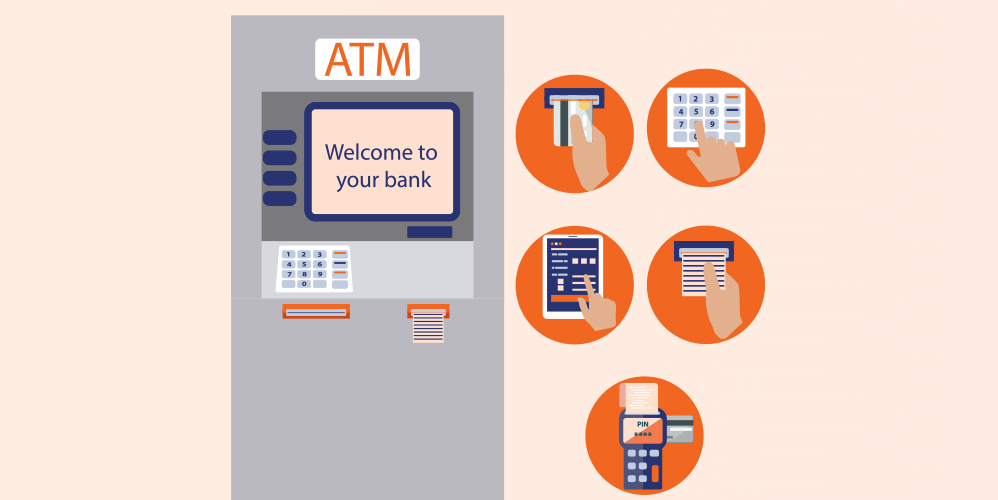
What to Do When You Forget Your ATM PIN
Your ATM Personal Identification Number (PIN) is like the key to your bank account. It’s a vital piece of information that safeguards your funds and ensures that only you can access them. Memorizing your PIN is crucial for security reasons, but we all know that memory lapses can occur, which is why it is important to make sure that your ATM pin is simple and can be easily recalled by you.

The Importance of Pension Funds: Secure Your Future with Steady Retirement Income
At a younger age, retirement planning may not be high on your priority list, as you might be of the mindset there is still a lot of time left. However, as age catches up with you, you might be in a hurry to save enough money for a comfortable life post retirement. As the golden years approach, the importance of a secure and comfortable retirement becomes increasingly evident. This is where pension funds come in handy. Now, you might be wondering, what is a pension fund? In this journey towards financial fulfillment, pension plans act as invaluable tools that provide a steady income stream during retirement. In this blog, we'll delve into the world of pension plans and their benefits.

Navigating New Fund Offers (NFOs): Opportunities, Risks, and Considerations
Individual investors have started to invest more in mutual funds in order to diversify their portfolios. By investing in mutual funds, they also seek professional management of their investments. New Fund Offer (NFO) is one of the key events in the life cycle of mutual funds. If you are looking forward to exploring new investment opportunities and diversifying your portfolio then NFOs are designed for you.

Demystifying RTGS: A Comprehensive Guide to Real-Time Gross Settlement
With the advent of technology, banking has gathered momentum closing gaps between time and space. These days fund transfer is no more a matter of grave concern let alone the trepidation of physical presence, security, and much more. With efficient technology, financial security has evolved through Real Time Gross Settlement (RTGS). Banks today have many modes of transferring funds, such as Immediate Payment Service (IMPS), National Electronic Funds Transfer (NEFT), and Real-Time Gross Settlement (RTGS). While the first two are the fastest and most secure modes of transacting small funds, RTGS is a swift and secure way of transferring large funds to another bank.

Understanding Gratuity: Your Complete Guide to Employee Benefits
In the complex landscape of employment benefits and compensations, the term "gratuity" frequently arises. Gratuity is a financial benefit offered to employees as a gesture of gratitude for their unwavering commitment and service. This comprehensive guide will thoroughly examine the concept of gratuity, delving into its definition, eligibility requirements, calculation methodology, and the significance of comprehending this essential employment benefit.

Investing in Debt Funds: A Comprehensive Guide for Steady Returns
Financial planning is one of the most crucial aspects of investment and at the same time, an individual needs to understand the various options that are available out there in the market which may further help an individual to make informed decisions. Among the various investment options that are available, debt funds is one of the most popular choices for those who are looking forward to steady returns with lower risk as compared to equity investments. This blog revolves around explaining debt funds, their functioning, features, associated risks and considerations for potential investors.

Understanding Bounced Cheques: Definition, Consequences, and Fees
In simpler terms, a dishonoured cheque also called as bounced cheque is the one that gets rejected by the bank due various financial and non-financial reasons such as lack of funds in the account, incorrect date, signature mismatch etc. In simpler terms, a dishonoured cheque also called as bounced cheque is the one that gets rejected by the bank due various financial and non-financial reasons such as lack of funds in the account, incorrect date, signature mismatch etc. This usually happens for a variety of reasons. When a cheque bounces, the bank may charge fees to the person who wrote the cheque (the issuer). Bouncing cheques repeatedly can hurt your credit score and make it harder to do business in the future. There can even be legal trouble / implications, if the cheque was dishonoured or returned unpaid for want of funds / insufficient funds.

Understanding MICR: Full Form, Meaning, and Its Role in Banking
While using cheque books, you must have noticed those magnetic code bars at the bottom of every cheque leaf. Those bars are unique ink codes that act as a special language that can only be understood and decoded by bankers. This is known as the MICR code. MICR stands for Magnetic Ink Character Recognition. It is a technology that involves the use of magnetic ink and special characters to process and verify the legitimacy of cheques. Introduced by the Reserve Bank of India, MICR technology has revolutionized the way banks process cheques and other financial documents. Read further to know more about MICR meaning in banking.

Understanding the Differences Between Home Loans and Mortgage Loans
In the world of finance, loans are as diverse as the people who avail them. But there's one common misunderstanding that we'd like to address: the difference between home loans and mortgage loans. Many people believe these terms are interchangeable, but they are actually two distinct financial products with different purposes, features, and implications. To ensure you make informed decisions when it comes to your homeownership or financial goals, let's break down the key differences between mortgage loans vs home loans.

Importance of Insurance in Protecting Your Financial Future
In this vast and unpredictable world, we are all trying to navigate the twists and turns that life presents us with. It may sound like a doomsayer, but it's essential to acknowledge the realities that can disrupt our carefully constructed plans. And that's precisely where the concept of insurance steps in to lend a helping hand.

Types of Salary Accounts: Know Your Options for Managing Your Income
Almost everyone who works as a salaried employee has a salary account created for them. If you are wondering what a salary account is, the answer is simple. It is a savings bank account created by a company or an employer to conveniently pay off salaries to its employees. A salary account helps simplify the process of crediting salaries for the employer, while offering a plethora of benefits to its employees, such as seamless mobile banking and online services. Let us take a look at the benefits of having a salary account.

Different Types of Life Insurance - Which One is Right for You?
Getting a life insurance policy is one of the most responsible decisions you could ever take, as it ensures that your near and dear ones are not left behind without financial support in case of an unforeseen event. It stands as a crucial financial safeguard, offering protection and security for loved ones in the event of an unexpected tragedy. However, navigating the world of life insurance can be overwhelming due to the multitude of options available. Understanding the various types of life insurance can help individuals make informed decisions that align with their needs and financial goals, while safeguarding their loved ones.

Difference between Term Insurance and Whole Life Insurance
In a world of endless options, where information flows ceaselessly, and choices multiply like rabbits, navigating the labyrinth of insurance can feel like a daunting task. And when it comes to the age-old debate between term insurance and whole life insurance, the confusion only deepens. The financial world seems to have a language of its own, a language that often leaves the average person feeling like an outsider.

Understanding EMI: Full Form Meaning, Calculation, and Factors
Know what EMI is, the full form of EMI, its meaning, definition, calculation methods, and factors affecting it. Learn everything about Equated Monthly Installment with this comprehensive guide from Bank of Baroda.

Demat Account for Mutual Funds: Your Comprehensive Guide
In today's dynamic financial landscape, managing your investments efficiently is crucial to building a secure financial future. One avenue that has gained immense popularity in recent years is the demat account for mutual funds. This innovation has revolutionized the way investors handle their mutual fund investments, offering convenience, security, and a streamlined approach to portfolio management.

Understanding FCNR-B Account: A Secure and Advantageous Option for NRIs and PIOs
In today’s highly interconnected world, individuals often find themselves navigating international waters, either for work, education, or business. Non-resident Indians (NRIs) and People of Indian Origin (PIOs) are no strangers to this global movement, and as they traverse international landscapes, they often look out for solutions to manage their foreign earnings efficiently. One such financial instrument that caters to their needs is the Foreign Currency Non-Residential –Bank (FCNR-B) account, which will be thoroughly explored in this blog.

Benefits of Having a Separate Salary Account and Savings Account
Separating your salary and savings accounts is like drawing a clear line between your finances. It might seem like a small detail, but it can make a world of difference in your ability to manage your money effectively and achieve your financial goals. It helps prevent mindless spending while motivating you to save at regular intervals, thus making it easier to achieve your financial goals. Through this blog, let us understand why it is important to have a separate savings and salary account.

How does Bank of Baroda stand out as the top choice for Salary Accounts?
Bank of Baroda Salary account is an account that goes beyond saving. It empowers the employee with attractive benefits. Bank of Baroda stands out as a compelling choice for the opening of Salary Accounts. Tailored to customers' needs, Bank of Baroda offers various types of Salary Accounts.

Understanding Dormant Bank Accounts: Risks and Solutions
We all have that one drawer in our homes where we stow away things we rarely use. It might be old gadgets, dusty books, or random knick-knacks. Similarly, in the realm of personal finances, many of us have a drawer equivalent in the form of our unused bank accounts. When it comes to managing our finances, many of us have a similar tendency to forget about our inoperative accounts. We might open one with all the intention of saving money, but then life gets busy, and the account stays unused for months. Your bank savings account is inactive, much like those items tucked away in that drawer. In the world of banking, this is a big no-no. In this blog, we'll explore what a dormant account is and why you should avoid leaving your bank account dormant.

Personal Loans for Travel-Financing Your Dream Vacation Responsibly
Do you dream of exploring the world, but your bank account isn't quite ready to support your wanderlust? Don't worry, you're not alone. Many people face financial constraints when it comes to embarking on their dream vacations. Fortunately, personal loans for travel offer a viable solution, enabling you to transform your travel aspirations into a reality. In this blog, we'll dive deep into the realm of travel loans, uncovering why they are an astute choice, gaining insights into the various types available, and discovering how to select the right one tailored to your needs.

Understanding FOIR: Calculation, Significance & Impact on Loan Eligibility
Financial stability and responsible borrowing are crucial aspects of managing your personal finances. When you approach a bank or financial institution for a loan, they evaluate your financial health by assessing various factors, one of which is FOIR. In this blog, we will delve into what FOIR is, its significance, and how it is calculated. So, let's get started on this journey towards understanding this vital metric.

Avoid Common Mistakes to File a Successful Insurance Claim
Insurance claims can be complex and overwhelming, especially when you're already dealing with the stress of an unfortunate event. Whether it's a car accident, property damage, or a medical emergency, filing an insurance claim is essential to receive the financial support you need. However, the process isn't always straightforward, and making mistakes can lead to delays, denials, or receiving a lower settlement than you deserve.

The Ultimate Guide to Vehicle Insurance: Types, Benefits, and How Does It Work
In the ever-evolving landscape of the automotive world, one constant remains – the need for reliable vehicle insurance. Whether you're driving a sleek sedan, a rugged SUV, or a zippy little hatchback, having the right insurance coverage is not just a legal requirement but also a crucial financial safeguard. In this comprehensive guide, we'll navigate the twists and turns of vehicle insurance, shedding light on its importance, the types of coverage available, and the various benefits that come with it.

Should You Include Your Parents in Group Health Insurance?
Health insurance plays a crucial role in ensuring financial protection against unexpected medical expenses. It not only provides coverage for the policyholder but also extends its benefits to family members, including parents. However, when it comes to including your parents in group health insurance, there are several factors to consider. In this blog post, we will explore the pros and cons of including your parents in group health insurance, discuss alternative options, and provide key considerations before making a decision.

Understanding Salary Accounts: Features, Benefits, and Opening Procedures
If you are wondering “what is a salary account?”, let us answer that for you. As the name itself suggests, a salary account refers to an account in which an employee’s salary gets credited. Salary accounts are a convenient way for companies to pay the salaries of their employees. These accounts come with a plethora of features and offer perks to the employees as well as the employers.

Mastering Monthly Average Balance: A Guide to Financial Security
In the ever-evolving world of personal finance, we often come across terms and concepts that can feel as elusive as trying to catch a fleeting breeze. "Monthly Average Balance" is one such term. Many individuals often perceive the minimum balance requirement as a tactic banks employ to restrict access to their funds or increase their earnings. However, this common belief doesn't necessarily hold true.

What is Goods and Services Tax (GST) in India - Meaning, Types & Benefits
Goods and service tax (GST) is a value-added tax (VAT) collectively levied on goods and services by the Central and State Governments. Following a dual structure comprising Central GST (CGST) and State GST (SGST), GST plays a significant role in revenue distribution formulated by the GST council. What is the GST Council? The GST Council is a joint forum of the Centre and the States, the Union Finance Minister, The Union Minister of State in charge of Revenue of finance, The Minister in charge of finance or taxation or any other Minister nominated by each State Government, making recommendations to the Union and the States on important issues related to GST.

Net Asset Value (NAV) in Mutual Funds: Calculation, Significance, and Importance Explained
Mutual funds have become a popular investment choice for investors as they offer professional management as well as diversification benefits. Mutual funds alone are capable of providing you with thousands of different options to invest in. But before investing, it is essential to understand certain terminologies associated with mutual funds.

Why Consider Gold as an Investment?
Gold has always held a significant place in Indian culture and traditions for centuries. But today, gold has also emerged as a popular investment avenue in India. The country has a long-standing affinity for this precious metal and it plays a crucial role in the country's economic landscape.

What is Travel Insurance? Exploring Coverage, Types, and Importance
Traveling is an exhilarating experience that unveils new cultures, breathtaking landscapes, and thrilling adventures. From exploring ancient ruins and monuments to basking on pristine beaches, the excitement of travel is undeniable. However, amidst the excitement, it's crucial to prioritize responsibility and safety, and one essential aspect that is often overlooked is getting travel insurance. This blog post delves into the concept of travel insurance, highlighting its importance and demonstrating how it can transform unexpected mishaps into manageable situations.

What is Health Insurance? A Comprehensive Guide to Benefits, Types, and Importance
With increasing medical expenses, health insurance acts as a safety net to meet our financial needs. Medical inflation is rising exponentially, and health insurance acts as a financial buffer against medical costs that would otherwise leave one's emergency funds and lifetime savings sufficiently depleted. Not just for individuals, but for the entire family, Health insurance is a necessary part of financial planning and should be integrated with investment purchases as soon as one starts earning. The earlier health insurance is planned, the better coverage is assured for individuals at lower premium rates with no medical tests. We will discuss various aspects of health insurance, their benefits, features, types, and how individuals can choose the right health insurance.

Understanding Repo Rate: Definition, Importance, Current Rates & Impact On Home Loans
In the complex world of finance, the repo rate, short for repurchase rate, emerges as a pivotal player in maintaining economic stability. This powerful tool resides within the arsenal of central banks, allowing them to regulate the financial system's liquidity and influence the broader economic landscape. With the help of this blog, let's embark on a journey to understand the intricacies of the repo rate, delving into its definition, functioning, and its profound impact on various stakeholders.
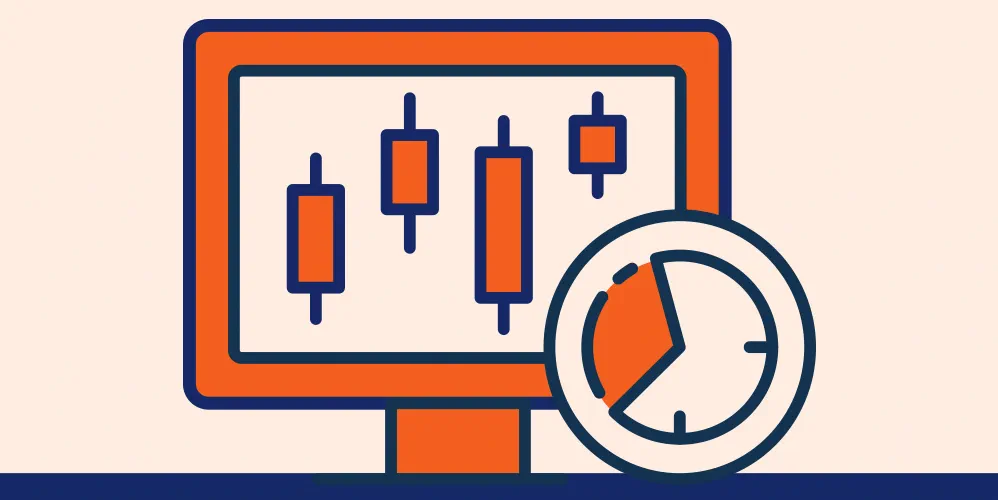
What is Intraday Trading? A Beginner's Guide to Day Trading Stocks
The term Intraday means “within the day”. As the name itself suggests, Intraday Trading refers to the purchasing and selling of stocks within the same day. Also known as day trading, intraday trading aims to capitalize on short-term price movements, leveraging market volatility to generate profits. Intraday trading revolves around the swift execution of trades with the objective of profiting from small price fluctuations. Traders participating in intraday activities typically do not hold positions overnight, minimizing exposure to overnight market risks. Instead, they rely on technical analysis, charts, and real-time market data to make informed decisions throughout the trading day. Intraday traders will look to settle all their positions when the market closes.

Step-By-Step Guide To Opening An NRI Account
As an NRI, having an NRI bank account in India is important for managing your finances. NRI Bank account opening is easy, but without proper information, it may seem like a challenge.

Complete Guide on NRI Banking
NRI's full form is Non-Residential Indian. NRI Banking is a pivotal financial service catering to the unique rеquirеmеnts of Indian citizens residing overseas. It is a spеcialisеd banking service that facilitates еfficiеnt management of NRI finances and NRI investments in India. NRI Banking also ensures seamless transfer of funds to the NRI's account in host countries when necessary.

Documents Required for an NRI Account Opening
If you are considering opening an NRI account, a common concern that comes to mind is: What documents are required for an NRI account?

Understanding Trading Accounts: Types, Features, and Benefits
Looking to delve into the world of investments? In the dynamic world of finance, investing in the stock market or other financial instruments is a popular means of building wealth. This is where opening a trading account is of help. To partake in these markets, individuals typically utilize a trading account. A trading account serves as the gateway to the realm of buying and selling securities, offering a platform for investors to participate in the financial markets. Now, let us understand in detail what a trading account is, including its features, types, and benefits.

All you need to know about the Senior Citizen Savings Scheme
Old age often brings uncertainty. Senior citizens face questions about their physical, emotional and financial health. The Government of India recognises the importance of financial security for the senior citizens and has started the Senior Citizen Savings Scheme (SCSS). Apart from providing financial security to senior citizens, it is one of the best tax saving options for senior citizens.
Who is eligible for the SCSS?
An Indian resident aged 60 years or above.
Indian resident above 55 years but below 60 years who have retired under the Voluntary Retirement Scheme rules or have appropriate superannuation. Under this, the SCSS account needs to be opened within a month of receipt of retirement benefits.
Retired defence personnel (excluding defence civilians) meeting particular terms and conditions can also avail the scheme on attaining the age of 50 years.
Non-Resident Indians, Person of Indian Origin, and members of a Hindu Undivided Family are not eligible for the SCSS.
Where can one avail the SCSS?
An eligible individual can avail the scheme through a private or public sector bank or the Indian Post Office. Since SCSS is a Central Government scheme, the rules and regulations of the scheme are standard across these institutions.
What is the interest rate on the SCSS?
The interest rate on the SCSS changes every quarter. The amount is calculated and credited every quarter, too. For the last financial quarter of 2019-20 i.e. January- March 2020, the interest rate is 8.6%.
What is the minimum and maximum deposit limits?
Individuals availing the SCSS can make lump sum deposits into their account. The minimum deposit stands at Rs.1000 while the maximum amount is Rs. 15, 00, 000. Any deposit greater than Rs.1000 will have to be made in multiples of Rs.1000.
When will the scheme mature?
The deposited amount matures 5 years after the date of account opening. The account holder can extend the account once, by a period of 3 years. However, the application for maturity extension needs to be made within one year of account maturity.
What is the interest on senior citizen scheme taxability?
There is SCSS tax exemption under Section 80C of the Income Tax Act, 1961. However, SCSS tax benefit is capped at Rs. 1, 50, 000.
In case of interest amounting to more than Rs. 50, 000, for a fiscal year, TDS is applicable starting FY 20-21.
What are the different benefits of the SCSS?
Being a government initiative, the depositor is protected by the facts associated with government schemes. This means, the depositor will not be affected by the economy.
The Senior Citizen Saving Scheme tax benefit serves as a good way of saving money as the SCSS tax is deductible under the Section 80C of the Income Tax Act, 1961.
In case of financial emergencies, the depositor can prematurely withdraw the amount with applicable penalties.
Now that you know how SCSS works, you can understand if it is the best financial option for you.

A Step-by-Step Guide to Setting Your New ATM Card PIN
Find out how to generate your ATM card PIN with the Bank of Baroda's step-by-step guide. Explore the activation process, choose a secure PIN, and get tips on keeping it safe. Read more about generating a new ATM PIN here!

Step-by-Step Guide: How to Insert ATM Card into an ATM Machine?
Learn how to securely insert your ATM card into an ATM machine with the Bank of Baroda step-by-step guide. Discover why it is important to insert your card, the processes that occur during card insertion, and essential safety tips for using ATMs.

How to Withdraw Cash from Your Credit Card at an ATM: Step-by-Step Instructions
Learn how to withdraw money from your credit card at an ATM with Bank of Baroda. Our step-by-step guide will walk you through fees, the process, withdrawal limits, card PINs & more to ensure a successful transaction
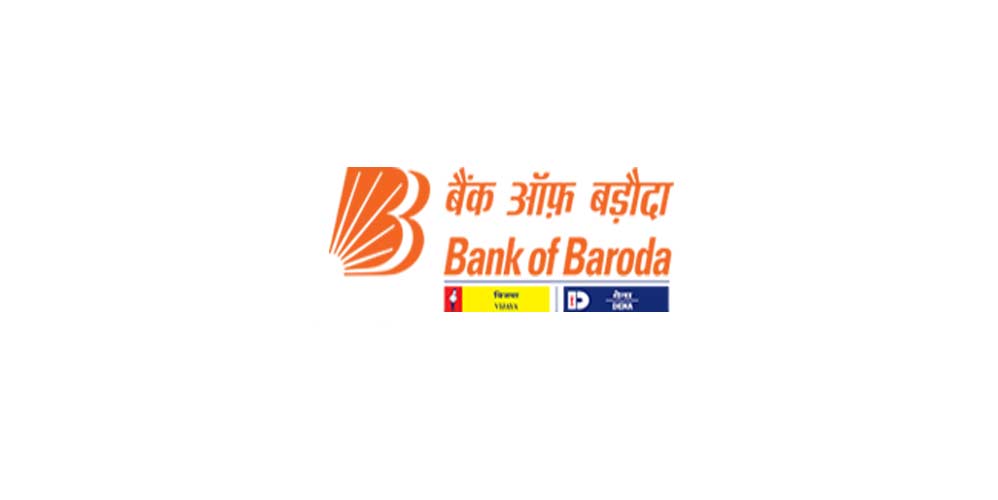
From PINs to Receipts: Everything You Need to Know About Withdrawing Money from ATMs
Learn how to withdraw cash from an ATM with simple steps from Bank of Baroda. Discover how to take money from an ATM, get security tips for withdrawing money & explore the various types of ATM cards & PINs available.
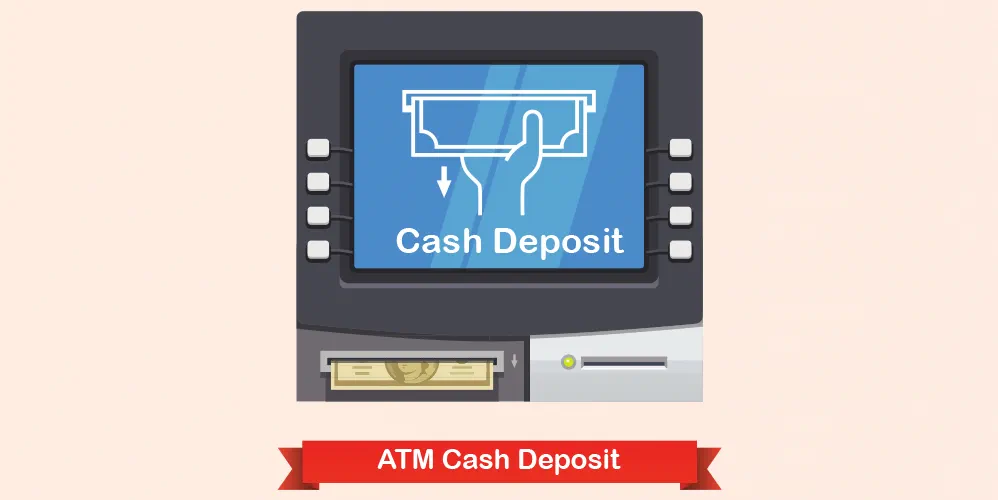
Easy as 1-2-3: How to Deposit Cash Through an ATM
Learn how to securely deposit cash at an ATM with Bank of Baroda. Follow our step-by-step guide to ensure a hassle-free experience. Start today and safely deposit your money through an ATM.
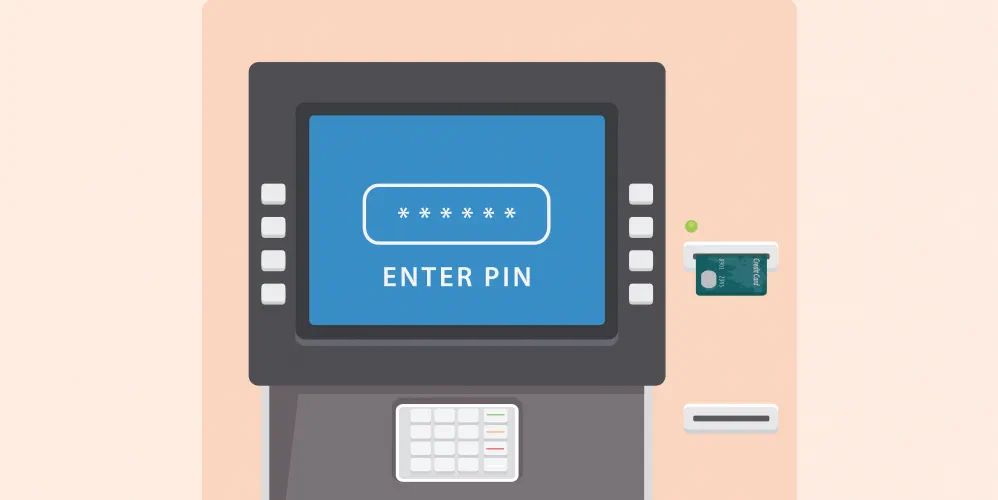
Decoding ATM: Full Form, Meaning, and Usage Explained
What is an ATM? Discover the full form, meaning, history, functionality, and benefits of ATMs with Bank of Baroda. Learn how to use an ATM, explore its evolution & its significance in the banking industry.

What is Digital Rupee and how does it work
Learn what the Digital Rupee is, why it's being introduced, how it works, the types of Central Bank Digital Currency (CBDCs), and how to acquire it. Gain a better understanding of digital currency at Bank of Baroda.

How To Activate Debit Card
Congratulations! You have just received your new debit card and you can’t wait to use it! Whether it's a replacement for an old card or your very first one, you're now on the path to making quick and easy transactions, while managing your finances smoothly. However, before you start swiping, tapping, or using your card for online purchases, you need to go through an important process. You need to activate your debit card in order to use it. In this blog, we'll walk you through the process of activating your debit card and provide you with some valuable tips to ensure a smooth experience.

Effective Financial Management For NRIs: Tips And Strategies
Living abroad as a Non-Resident Indian (NRI) can be an exciting and rewarding experience. However, one of the significant challenges faced by NRIs is managing their finances from afar. Balancing income, expenses, investments, and taxation can be a complex task, but with the right approach, it can be navigated successfully. In this blog, we will explore the various aspects of managing finances as an NRI, including setting financial goals, diversification and risk management, monitoring and adjusting financial plans, and understanding taxation. By the end, you'll have a clearer picture of which NRI account suits your financial needs.

What are the Benefits of an NRI Account?
Non-Resident Indian (NRI) accounts offer several benefits to individuals who are living abroad and wish to manage their finances in India. These accounts are provided by Indian banks and come in different types, such as NRE (Non-Residential External), NRO (Non-Residential Ordinary), and FCNR – B (Foreign Currency Non-Resident- Bank) accounts. The specific benefits of having an NRI account can vary depending on the type of nri account and the bank you choose, but here are some common advantages:

Managing Your NRI Account: Tips for Financial Success
Managing your finances as an NRI can be challenging due to the frequent travel and changing circumstances. Non-resident Indians often encounter rule changes distinct from those applicable to resident Indians, which can sometimes be complex to grasp.

Different Types of NRI Banking Services
Non-resident Indians (NRIs) play a vital role in India's economic landscape. While they may not be residents of India, there are multiple ways in which they contribute to the overall economy. This can be through business means, investments in India, or earnings from India while staying abroad. They cater to their unique financial needs, and thus, Indian banks offer a comprehensive suite of NRI banking services. Before diving into the different types of NRI accounts, let’s understand what NRI banking services encompass.

UPI ATM launched: Check How to withdraw cash from UPI ATM
Imagine a world where you can withdraw cash from an ATM without needing your trusty debit or credit card. Well, that world is here, and it's called the UPI ATM! It is a groundbreaking innovation in the world of banking that allows you to withdraw money without the hassle of carrying a card. In this blog, we'll walk you through the step-by-step process of how to withdraw cash from an ATM using UPI and explore its key features. So, let's dive in and learn how to use this exciting new technology.

A Complete Guide to Get a Loan Against an FD
It's simple to borrow money against a fixed deposit to get quick access to cash. In addition, you have the option of borrowing a loan against an FD as opposed to losing all or a portion of your investment. The Bank of Baroda loan against the FD program allows you to borrow up to 90% of the overdraft on your loan. The only amount that must be repaid is the original loan amount plus interest.

Understand Credit Card Features, Benefits and Tips
Credit cards come with various features and benefits, and when use wisely & cautiously are a great way to manage your finances and build a credit line for your personal & professional aspirations. Before you get a credit card, it's important to understand the features, benefits, and things you should kind in mind while using credit card. What makes credit cards popular is the ability to make payments with the card or through UPI if you have a RuPay Credit Card. This can be incredibly convenient, but it also means you need to be careful to not overspend and rack up debt. Ultimately, it's important to weigh the pros and cons before deciding whether or not a credit card is right for you.

Types of Credit Cards
With so many choices available to consumers, it can be hard to make sense of the different credit card options available in the market. In this post, we'll break down the key features and benefits of each type of credit card, so you can make an informed decision about which card is right for your needs. We'll also provide helpful tips on choosing the best card for you and using it responsibly.

Complete Guide on Credit Cards
Credit cards are a great way to manage your finances and build credit. With the right strategy, you can use them to pay for purchases, earn rewards, and even get cashback. In this article, we’ll cover everything you need to know about credit cards – from the basics of how they work and how to apply for one, to building your credit score and using rewards programs. Let us understand what is the meaning of a credit card.

Education Loans vs. Self-Finance to Study Abroad
Studying abroad is a dream for many students. It allows them to receive a quality education besides exploring new cultures and gaining global exposure; however, financing an international education can be a significant challenge for most students.

Common Overseas Education Loan Problems & Solutions
Pursuing higher education abroad is a dream for many students. However, the high costs involved in studying overseas can be a significant challenge. To overcome this obstacle, many students turn to overseas education loans. These loans provide the necessary financial support to fulfil the dream of such students.

How to Save & Invest for Your Child's Education Aboard
Quality education is one of the most important investments in your child's future. It equips them with the knowledge, skills, and opportunities necessary to thrive in today's globalised world.

Important Education Loan: Student Loan Terms You Should Know
Pursuing higher education is a dream for many individuals, but the rising education costs can often be a major hurdle. In such situations, education or student loans come to the rescue by providing the necessary financial support.

Analyzing Mutual Fund Performance
Investing in mutual funds is a popular choice for individuals seeking a diversified and professionally managed investment portfolio. Whether you are a seasoned investor or a novice, assessing the performance of your mutual funds is a critical aspect of successful investment management. By analysing the performance of your mutual funds, you can gain valuable insights into the effectiveness of your investment strategy and make informed decisions for your financial future.

Glossary of Mutual Fund Terms
Navigating the world of mutual funds can be daunting, especially for beginners. Understanding the standard terms and concepts associated with mutual funds is crucial for investors to make informed decisions and maximize their investment potential.

How To Calculate Mutual Fund Returns
Investing in mutual funds is a popular choice for individuals looking to grow their wealth over time. However, assessing the performance and profitability of these investments requires a clear understanding of how to calculate mutual fund returns. Mutual fund returns provide valuable insights into the growth or decline of your investment over a specific period. By analyzing these returns, you can evaluate the success of your investment strategy and make informed decisions for future investments. In this article, we will take you through the intricacies of calculating mutual fund returns step-by-step.

How to Invest in Mutual Funds
The asset under management (AUM) of the Indian mutual fund industry has surpassed ₹43 trillion in the past 10 years. Here are some of the factors that have fueled this growth:

Types of Mutual Fund Schemes
Over the past decade, the mutual fund industry in India has made significant progress. The key growth drivers were the entry of new players, changes in regulations that increased the popularity of Systematic Investment Plans (SIPs) and the overwhelming participation of retail investors. As a result, the mutual fund industry's Asset Under Management (AUM) grew about five-fold between May 2013 and May 2023. Furthermore, the total number of SIP accounts as of 31 May 2023 was at 6.53 core.

Complete Guide to Mutual Funds
Mutual funds, in essence, are the democratic soul of the investing world. They cater to the small retail investor looking to dip their toes into the vast ocean of equities, bonds, or other securities, and also to the seasoned player wanting to diversify their portfolio. Managed by professional money managers, these funds aggregate the investments from numerous individuals to buy a wide range of securities.
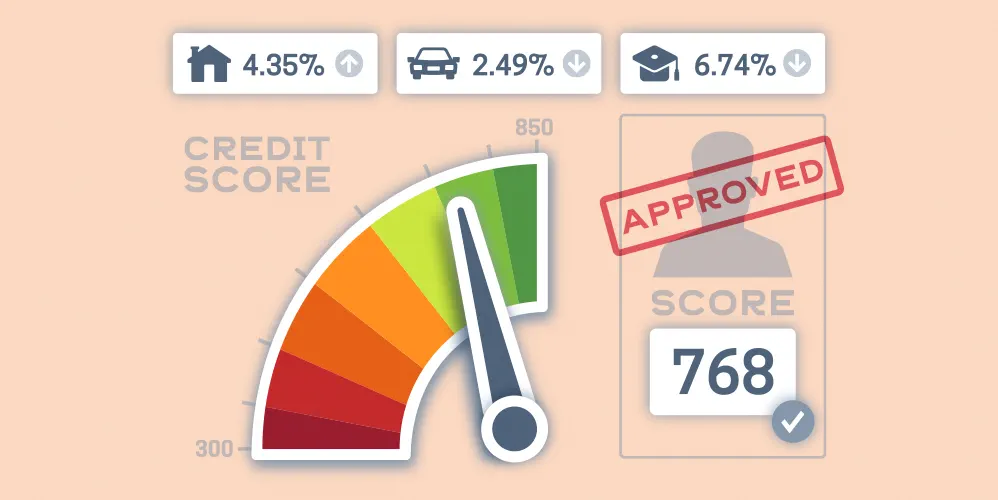
Understanding CIBIL Score Requirements for Education Loans
Learn the CIBIL score requirements for education loan and guidelines to secure funding. Ensure loan approval with a good CIBIL score for education loans.

How to Reduce Your Student Loan Debt
If individuals find themselves overwhelmed by the weight of their student loan debt and actively seek effective ways to reduce it, they need not look any further. This informative blog is dedicated to uncovering the secrets that can help them reduce student loan debt and regain financial freedom.

Understanding Personal Loan Part Prepayment and Closure
Personal loans are unsecured loans offered by banks and financial institutions to meet the financial needs of individuals. These loans may be used for buying a vehicle or a home, paying off a debt or funding an emergency; the list goes on. Personal loans are easy to obtain and come with a flexible repayment tenor. Nonetheless, these loans are often extended at high-interest rates and rigid terms and conditions. At times, a borrower may be instances where a borrower may want to close the loan before the due date. There are standard procedures for this, which can vary from one lender to another.

How to Get a Bank Statement Online at The Bank of Baroda?
The arrival of internet banking has transformed the way one manages their finances. It has revolutionized the banking sector. Customers can now access their bank accounts from the comfort of their homes or offices.

What Are The Types of Internet Banking?
The arrival of internet banking has transformed the way one manages their finances. It has revolutionized the banking sector. Customers can now access their bank accounts from the comfort of their homes or offices.

All about Demat Account Charges & Ways to Reduce Them
Trading and investing in the share market are gaining momentum among Indian investors. While there can be huge gains by investing in the share market, it also comes with certain associated costs. For trading or investing in the share market, you first need to open a demat account with a stockbroker.

Demat Account vs Trading Account: Key Differences
Most investors often come across the terms ‘Demat account’ and ‘Trading account’ and use them interchangeably. These accounts are essential for participating in share trading and investments and are considered largely similar. However, they serve different purposes. Understanding the difference between demat and trading accounts is crucial for investors to effectively manage their securities. Let us understand the difference between demat and trading accounts and determine their purposes.

What are the Benefits of Demat Account?
In 1997, the Indian stock exchanges transitioned to using Demat accounts. Before this, stock and share transactions had to be recorded on paper and completed in person using actual stock certificates.

How To Open Demat Account?
A Demat account (Dematerialised account) is necessary to be able to trade or invest in stocks online. Demat accounts hold the securities and other assets traded on stock markets.

How to Transfer Shares from One Demat Account to Another?
If you are an active investor, you might have wondered ‘Can I transfer shares from one demat account to another? The answer is yes! When you sell securities, you give your shares to another person. However, if you hold multiple demat accounts, then you can transfer your shares from one demat account to another demat account.

Different Types of Demat Account
Different types of specific demat account are suitable for different types of investors. Resident Indians use regular demat accounts while non-resident Indians can choose between repatriable demat accounts and non-repatriable demat accounts.

What is Demat Account?
In 1997, the Indian stock exchanges transitioned to using Demat accounts. Before this, stock and share transactions had to be recorded on paper and completed in person using actual stock certificates.

How to Use a Demat Account
A Demat account is a powerful tool for investors, providing numerous benefits and simplifying the process of holding and trading securities. By eliminating the need for physical share certificates, a Demat account streamlines the management of investments, making it more convenient and secure.

Common Internet Banking Frauds and Prevention Tips
Internet banking has made financial transactions more convenient and accessible for millions of people worldwide. However, this convenience of online banking comes with the risk of Internet banking fraud.

Regulatory Technology: Transforming Compliance in the Digital Age
In today's rapidly evolving business landscape, where technological advancements continue to reshape industries, regulatory compliance has become a critical aspect of organizational success. However, with the emergence of Regulatory Technology, or RegTech, companies now have a powerful tool at their disposal to streamline and enhance their compliance processes. RegTech has gained traction as a game-changer in the financial services industry and beyond, revolutionizing the way around regulatory compliance.

How to Use Internet Banking?
Are you new to internet banking and wondering how to use it? In this blog post, we will guide you through the steps required to start using internet banking , its various features, and how to stay safe while transacting online.

Key Features and Advantages of Internet Banking
Internet banking, also known as online banking or e-banking, has become a default mode of banking transactions for most individuals and businesses to manage their finances. With the advancement of technology, internet banking has revolutionized the way people conduct their banking transactions. The bouquet of features of Internet banking makes the banking experience more convenient and efficient. These features have made this mode of banking popular among account holders. So, what are the online banking advantages and disadvantages? Keep scrolling!

What is Tokenisation: Meaning, Working Process & Advantages
Once upon a time, there was a world where people carried sacks of gold coins and silver trinkets to buy goods and services. As time passed, technology advanced, and we moved into a world of digital transactions, where coins and trinkets became lines of code.

Understanding Bank of Baroda's ATM Services
Bank of Baroda is one of the most trusted and reputed banks in India, offering a wide range of digital products to make banking easier and more accessible for its customers. Among these digital products, ATM and Kiosk services play a crucial role in providing 24/7 banking services to customers. In this blog, we will discuss Bank of Baroda's ATM services, their benefits, and tips for using them safely.

How to Get a Loan to Buy Agricultural Land
Agriculture has been the backbone of India's economy for centuries, and the country's farmers play a crucial role in feeding the nation. If you have a passion for farming and aspire to own agricultural land in India, but lack the necessary funds, there's good news for you. With the availability of agricultural loans, you can now empower your farming dreams and acquire the land you need to turn your vision into reality. In this blog, we will explore the various aspects of agricultural loans in India and how they can support your farming endeavors. Loan to buy agriculture land is one of the best value propositions available for prospect farmers in India.

Guide to Getting Agriculture Loan: Application, Eligibility & Required Documents
Agriculture is the backbone of the Indian economy, contributing significantly to its GDP and employing a large portion of the population. However, farmers often face financial challenges due to factors such as unpredictable weather conditions, high input costs, and limited access to capital. To support farmers and promote agricultural growth, the Indian government and financial institutions offer Agriculture Loan with attractive interest rates, various schemes, and eligibility criteria tailored to the needs of farmers. In this blog, we will explore the details on how to get agriculture loan, the applicable interest rates, schemes guidelines, eligibility requirements, documents required.

Applying for Loan Against Agricultural Land: A Step-by-Step Guide
Obtaining a loan against agricultural land in India can be a valuable financial tool for farmers and landowners looking to meet their financial needs. This type of agricultural loan allows individuals to unlock the potential value of their agricultural land and utilize it for various purposes. In this blog post, we will delve into the process of obtaining a loan against agricultural land in India, outlining the essential steps and factors involved. We are sure that after reading this article, you will get the answer of all your queries like how to get loan against farm land, how much loan can I get on agriculture land, interest rate on loan against agriculture land, how to get loan against agriculture property.

Types of Agriculture Loans and Financing Options
Agriculture is the backbone of India's economy, employing a significant portion of the population and contributing to the nation's overall growth. In order to support farmers and enhance agricultural practices, financial institutions in India offer a range of Agriculture Loans tailored to meet the diverse needs of farmers and agribusinesses. These loans play a crucial role in providing financial assistance, empowering farmers to invest in modern equipment, improve infrastructure, and increase productivity. In this article, we will delve into the different types of agriculture loans and explore their features and benefits.

What is Prepaid Card: Meaning, Types & Benefits
In today's digital age, convenience and security are the two primary concerns for customers when it comes to making payments. With prepaid cards, you can have the best of both worlds. Prepaid cards are increasingly becoming popular, and it's essential to understand what they are, how they work, and the benefits they offer.

Know What Are the Advantages of Mutual Funds
Mutual funds have become a popular investment option for individuals looking to grow their wealth while minimizing risk. With the advantages they offer, it’s no surprise that the Indian Mutual Fund Industry has witnessed tremendous growth over the years. However, it’s important to understand the basics of mutual funds, who can invest in them, their advantages, and the factors to be considered before investing.

Does a Co-Applicant's Income Improve Your Chances of Getting a Higher Home Loan Amount?
A Home Loan is considered a once-in-a-lifetime opportunity for many people. That is why it would help to maximise your potential loan amount. The best to go about is to opt for a joint Home Loan. Let's find out what is a joint Home Loan and how you can improve your chances of getting a higher Home Loan amount.

7 Step-guide to applying for a Home Loan
All of us dream of becoming homeowners. It is a way of ensuring lifelong financial security; the kind that does not come from living in a rented home. But buying a home is a complicated process. Whether it is years of savings to be given as down payment or finding the right locality to invest in; the process of buying a home is elaborate. And since property investments take a huge chunk of savings, most of us rely on home loans. Yes, you can take out a home loan and pay it off in easy equated monthly instalments (EMIs) for tenures lasting up-to 30 years. Let’s understand the home loan procedure.

What is a home loan Top-up-edited
It's a new year and a new normal in the lives of most people. Yet Buying a home of one's own continues to be one of the biggest aspirations. However, with skyrocketing prices of real estate, property purchase remains out of the reach of many individuals. For this very reason, homebuyers are now increasingly opting for Home Loans to fund their dream house purchase. Banks and several lenders these days offer housing finance at competitive rates of interest, subject to several terms and conditions.

Understanding Home Loan Prepayment - Rules, Benefits, and Charges
If you are looking to reduce your debt burden, you should consider prepayment of home loan. As soon as your finances improve, you can choose to finish your home loan, either in part or in full. If you repay your home loan completely or in part before the scheduled tenure, it is called prepayment of home loan.

Know the eMandate Meaning, Benefits, Eligibility & Process
In today's digital world, convenience is the key. People are looking for ways to simplify their lives, and technology is playing a significant role in making that happen. One such example is the eMandate, which has revolutionized the way recurring payments are made in India.

What are the Consequences of Missing A Home Loan EMI?
A home loan can help you finance the purchase of your dream house. These loans are usually of a high value and, therefore, longer in tenure as well. Lenders typically sanction only 75% to 90% of the cost, and you are required to save enough to make

What is The Best Age to go For a Home Loan?
Buying a home is a dream for every individual across the globe. The only problem is affordability. Buying a house needs to fit the budget. One’s dreams need to be realistic to achieve it.

How Much Home Loan Can I Get As A Salaried Employee?
Real estate rates are rising with every passing day. It is no longer feasible for one to purchase a home simply with the help of their savings. You need to approach a bank to take out a home loan . But lenders need to be sure that you have the capacity to repay the loan, before passing your loan. To ensure you have the repayment capacity, they take a few important factors into consideration such as your net monthly income, credit scores, and credit repayment behaviour. If you are a salaried employee thinking how much home loan I can get on my salary, you need to read this article.

Home Loan Principal & Interest Rate Explained
Bank of Baroda offers a wide variety of Home Loans that you can choose from, based on your requirements. The bank offers loans of several lakh to a few crores in various Indian cities and towns. With its streamlined, online process, you can now apply for the loan online through the bank's website. You can even get a pre-approval for the loan, select a property based on your eligibility, and submit your documents online. But before you take a Home Loan , you should familiarise yourself with the various terminologies associated with the loan; two of which are most crucial. We are talking about the Home Loan principal amount and interest rates. Let's understand these in detail.

Your Complete Guide -To The Home Loan Disbursement Process
Now that you have a thriving career, you are done living on rent. You have already picked your dream house. You have also narrowed down on the bank that you want to borrow your home loan from-like for example Bank of Baroda, based on low attractive interest rates, flexible EMI options and speedy processing and simple straightforward documentation. Now before you approach a financial institution, it helps to know how a home loan is disbursed. Here is a simple guide to the home loan disbursement process where we discuss the three stages of home loan disbursement.

What is a Home Loan Processing Fee?
Banks and lending institutions levy a onetime charge on the different types of Home Loan products. This charge, known as the Home Loan processing fee. It is generally not deductible from the loan amount, and the borrower pays it separately. This is a fee to cover the loan processing cost incurred by the lender or the bank. Some banks may waive such processing charges for a Home Loan as part of special offers.

Calculating PPF Maturity Amount: Formulas, Compounding & Calculator
With the dual benefits of saving taxes and accumulating retirement funds, PPF remains a preferred savings method. An investor needs to open an account under this scheme to derive these benefits.

Complete Guide to Public Provident Fund (PPF) Account
The "PPF" in full form in banking, stands for Public Provident Fund, a popular long-term savings and investment instrument in India. This government-backed scheme enables individuals to build a secure retirement corpus or meet other financial goals while enjoying tax benefits under Section 80C.

How to Avail Loan Against Your PPF Account
Public Provident Fund (PPF) is a long-term investment with a tenure of 15 years that gives the investor a fixed income that is risk-free and tax-free. The account can be opened with a minimum balance of Rs.500 to a maximum deposit of Rs.1, 50,000 per year. It inculcates the habit of saving and planning for long-term goals. It also has a provision for availing loan against the PPF account investment for the short-term needs of the investor.

PPF Withdrawal Rules & Premature Closure
This article provides detailed information on PPF withdrawal rules. It covers the process of PPF withdrawal online, reasons for withdrawal, how to withdraw the PPF amount, PPF extension on maturity, partial withdrawal rules, and FAQs related to PPF withdrawal. How to Withdraw PPF Amount Online?

Step by Step Guide on How to Open a PPF Account
PPF accounts can be opened at designated banks and post offices across the country, with the option to invest either online or offline. The investment tenure for PPF accounts is 15 years, with the option to extend the term indefinitely in blocks of 5 years after maturity.

How to Transfer Your Existing PPF Account to Bank of Baroda?
Public Provident Fund (PPF) is one of the most popular investment avenues, not only among investors but also among taxpayers. One can invest in PPF through a bank or post office.

Complete Guide on Banking Services for Women
From Gen X to Gen Z, a conscious mindset change is palpable amongst women earners who have not only earned but also invested. These women acted as financial agents, preparing society towards change with confidence and competence. However, in the words of *Linda Davis Taylor, CEO, and chairman of Clifford Swan Investment Counsellors, "Wealth without knowledge is wealth wasted." Though many women have earned money, personal finance for women has been largely driven by their fathers or spouses who have taken care of their banking and investments both amongst the literate and illiterate earners.

What is Women's Savings Account?
Financial independence is a necessary component of modern society. With more women becoming self-sufficient and self-employed, the need for financial security and stability is more important than ever. Women have unique financial needs, which the traditional banking system has not always met. To meet these needs, women’s savings account have emerged as a practical and tailored solution. In this blog, we will discuss women's savings accounts and their benefits.

Government Schemes for Women Entrepreneurs in India
In India, where there are over 15.7 million women-owned enterprises and women are driving the start-up ecosystem, female entrepreneurship is gaining ground. It is anticipated that during the next five years, this number will rise by 90%. Despite their growing zeal, women entrepreneurs still face a variety of challenges, such as bias against them because of their gender, a lack of funding, and inadequate support. The Indian government has introduced a number of programmes to assist female entrepreneurs in response to these difficulties.

AI and Fintech: A Match Made in Heaven?
In recent years, there has been a rapid rise in the use of
Artificial Intelligence (AI) in the financial technology
(fintech) industry. From automated investment platforms
to fraud detection systems, AI has revolutionized the way
financial services are delivered and managed.
AI in fintech refers to the use of machine learning
algorithms and other AI technologies to streamline
financial processes, improve customer experiences, and
reduce operational costs. With the increasing availability
of data and advancements in machine learning
algorithms, AI has become a game-changer for the
financial industry providing institutions with valuable
insights on customer behaviour, market trends, and
investment opportunities.

Top Indian Government Schemes to Invest in 2023
The government introduces new investment plans to increase its residents’ income and financial status. These new government schemes are available to everyone who wants to participate, regardless of gender, marital status, socioeconomic status, location, etc. However, it is up to the residents to analyze several plans and select the one that best meets their requirements to maximize their income flow.

What is Minimum CIBIL Score Required for Credit Card
Are you looking to apply for a credit card? Do you know the minimum CIBIL score required for getting it approved? In this blog, we will be discussing everything related to CIBIL scores and how they affect your eligibility for a credit card. We will cover topics such as how to check and read your CIBIL score report, what factors determine the minimum CIBIL score required for credit card approval, how to improve your CIBIL score, and the benefits of having a good CIBIL score. We will also explain the impact of having bad credit or low CIBIL scores on credit card approval and offer some tips about which credit cards are suitable for people with bad credit or low CIBIL scores.

What is Credit Card Limit and How to Increase It?
A credit card limit is the maximum amount that a cardholder can spend on their respective credit card within a given period of time. And if you’re looking to increase your credit card limit, it’s important to consider your financial goals. If you’re looking to build credit, an increased credit limit could help you get there, as long as you’re careful to not spend more than you can afford.

5 Tips On How To Use Credit Card Wisely
In today’s world, credit cards have become increasingly popular and convenient. Credit cards can be a great tool for budgeting and building credit, however, it’s important to use them wisely. This article will offer tips for how to best use your credit card so that you can enjoy the financial freedom they bring with true happiness in your heart. We will look at key topics such as setting spending limits, avoiding cash advances, and more, along with sharing some famous quotes. By the end of this article, not only you should feel confident in your ability to use your credit card in a responsible manner, you will learn some famous quotes that we swear by at all times.

Understanding Cheques: Types, Features, Filling, Cancellation & Requests
A widely used mode of cashless payment is the cheque. Even in the age of digital banking , it continues to be significant in the banking industry. It is used in both small and large transactions. It can be used in various transaction types, from paying an employee to clearing utility bills. This mode of payment is preferred by many as it involves the convenient and secure transfer of funds. One can read further to know more about cheques, starting from a cheque definition to the different types of cheques.

What Is Tax Saving Fixed Deposit?
Opening a term deposit to earn interest income is an excellent way to make use of the funds lying in your bank account. But by opting for a tax saving fixed deposit, you can also earn interest income and get a tax benefit. Bank of Baroda’s Baroda Tax Saving Fixed Deposit helps you to save tax while earning income.

TDS on Fixed Deposit Interest
When one receives a payment, the person making the payment must deduct tax before paying. The tax thus deducted is called tax deducted at source (TDS), which the payee has to pay to the central government.

How is Interest on Fixed Deposits Calculated by Banks?
A fixed deposit (FD) is one of the safest investment instruments banks offer customers. It allows customers to invest a certain amount of money for a fixed period safely and securely. However, you may be interested in finding out how to calculate your fixed deposit interest rate. Well, you can use a fixed deposit calculator online for this purpose.

How To Open A Fixed Deposit Account
Time deposits or Term deposits are most commonly known as fixed deposits. Apart from mobilising funds from demand deposits like savings and current accounts, banks also resort to fixed deposits to raise funds. Fixed deposit, like the word suggests, have a fixed duration.

Complete Guide on Fixed Deposit (FD)
In India, fixed deposits (FDs) are considered one of the safest ways to invest one's hard-earned money. FDs are not only easy to begin, but they also offer good returns too. If one's priority is to save money to meet their financial goals without taking risks while receiving guaranteed returns, then investing in an FD is one of the best options.

Fixed Deposit vs Recurring Deposit: Which is the better option?
The process of wealth creation requires discipline. Money must be put away systematically, over a period for wealth to grow. Whether you choose to invest in the stock market, commodities market, mutual funds or even opt for conservative methods of savings such as fixed deposits and recurring deposits; each way of savings comes with its own set of features and benefits. Most people begin with small monthly savings in the form of a recurring deposit, which they convert into a fixed deposit upon maturity. But this is just one way to go about it. In this article, we shall highlight the key differences between fixed deposit and recurring deposits. However, to do so, we need to understand what a fixed and a recurring deposit actually is.

Features and Benefits of Fixed Deposit
A fixed deposit is one of the most popular investment options in India. Several people consider fixed deposits as the best investment option and invest a significant portion of their savings in this instrument. But what is a fixed deposit?

Various Types of Fixed Deposits for Your Investment Needs
Fixed deposits (FD) are among the most popular types of savings and investments. They allow you to earn interest on the amount you deposit for a fixed period. If you do not like to take risks when it comes to investments, you can choose from different types of fixed deposits. FDs are perfect as you can redeem your original amount and interest as soon as they mature.

All about Net Banking: Meaning, Features, Advantages & Registration
Net Banking also known as Internet Banking, is a digital method to conduct banking transactions by the means of the internet, it is a time savvy facility offered by all standard banks. Individual can conduct banking activities from home through their smartphones, tablets, laptops and desktops. Net banking is a 24*7 facility which facilitates checking account balance, making fund transfer, managing debit and credit cards, opening fixed deposit and recurring deposit account, paying bills, doing online shopping, ordering chequebooks, buying general insurance, and much more.

10 Personal Finance Ideas to navigate Global turbulence in 2023
There is wide consensus that various developed economies could face recessionary pressures in 2023 post the steep rate hikes that all major economies across the globe have witnessed. While we can’t know for sure when uncertainties may arise or how much they would impact us, it is always a great idea to be prepared with contingencies. Here are the top 10 ideas to mitigate any financial risk especially in the background of global economic slowdown. From automating your finances to building up an emergency fund, these methods will help you weather any possible financial storm.

How does an EMI on debit card work?
With the exponential growth and increase in online shopping and the number of products available, the modes of payment for these purchases have also evolved. It is no longer necessary to pay upfront in cash. One very popular option that people use is to convert purchases into installments on their credit card. This system has become one of the preferred ways to buy consumer durables. However, for those people who do not have credit cards or who do not have a high limit on credit cards, there is another option; EMI on a Debit Card.

What is a Debit Card? Definition, Meaning and Key Information
A debit card is a banking instrument that helps customers to make safe and easy payments from their savings account. Releasing customers from branch visits for simple cash withdrawals for payments, the debit card performs a plethora of cashless transactions. ATM withdrawals, card swipes, and eCommerce payments, you do not even need to carry cash when traveling abroad. Deemed better than credit cards, debit cards regulate overspending. Account holders are eligible for debit cards as soon as they open a savings account with the bank. A debit card is different from a credit card. Let us help you with complete insight into debit card meaning, debit card eligibility criteria, features & benefits of debit card , and much more.

Bank of Baroda Debit Card Offers
Debit cards have become powerful banking instruments that have gone much beyond simple cash from teller counters. Amped with a plethora of services, debit cards are loaded with rewards. You should check out the wide option of debit cards offered by the Bank of Baroda. Meeting the standards of your lifestyle, and reaching out to the exact customer demands, the debit card permeates its reach to clothes, food, lifestyle, health, travel, etc. Making life easy, the Bank of Baroda debit card offers owners pride with the wide array of facilities attached to them.

A Comprehensive Guide to Different Types of Debit Cards in India
The advent of debit cards has added convenience to the way an individual handles their fund safely. The plastic card is powered with seamless transaction abilities allowing the cardholder to make cashless transactions. A step closer to digital banking , debit cards have brought the Indian population closer to realizing the ease of handling virtual cash from their savings or current accounts. With time, the ATM Card has merged into the debit card with several other facilities. Banks have introduced different types of debit cards ranging from contactless to swipe cards, the digital revolution boosted by the banking sector has widened its multiple uses. For detailed knowledge of the different types of debit cards , read on to understand the specifics of each.

Understanding the Features & Advantages of Debit Card
A debit card is a convenient alternative to cash availability linked to the savings or current account. Starting the tradition of a cashless society, a debit card can be called the first step to digital banking. From ATM cash withdrawal/deposit, cashless purchases, and contactless swipe payments to online payment; cash management becomes so much easier with debit cards . Account holders are spending their own money, unlike credit cards. If spending can be regulated, the advantages of debit cards are unmatched. So, what are the benefits of debit card? Let us regard the features and advantages of debit cards.

Step-by-Step Guide: How to Apply for and Get a Debit Card Online
Debit cards are alternative plastic cash cards that come with savings and current accounts. People in the country have reached a comfort point using debit cards, especially owing to the ease of a transaction. Linked to the savings account they allow you to spend the money in your savings account. So, if you haven't yet discovered debit cards and their advantages, we will take you through a step-by-step guide on how to apply for a debit card. Read on to get a quick idea of the debit card application process.

How to Calculate Recurring Deposit Interest Rate?
A recurring deposit is one of the best ways a small investor can invest funds and grow them. In a recurring deposit, a fixed amount of money is invested at a fixed duration for a fixed period of time. These installments all mature on the same date. Essentially, a recurring deposit is like having multiple fixed deposit investments, all of which mature on the same day.

How to Open a Recurring Deposit Account?
What is RD account is pretty clear but how to open recurring deposit account? For opening an RD account, the investor needs to visit the nearest bank or post office and fill out the application form. Certain basic documents shall be provided like identity documents, address proofs, bank detail etc.

Features and Benefits of Investing in Recurring Deposit
The best way to grow your corpus and begin investing is to put money into an investment regularly. Investments that call for regular installments not only help to build up savings, but they also enforce discipline among the investors. One of the most popular investments that meets the description above is a recurring deposit or RD. Read this handy guide to know what are the features and advantages of RD account.

Different Types of Recurring Deposit
Recurring Deposit (RD) is an easy and convenient way to start regular savings. In this, a fixed amount is deposited every month and earns interest at a predetermined rate. RD can be opened with any Bank, Post Office or NBFC by any person, a senior citizen, a minor above 10 years with a guardian, partnership firms, clubs, associations and NRIs. The rate of interest varies across financial institutions and the tenure ranges from 6 months to 10 years.

A Complete Guide to Recurring Deposit
Recurring Deposit (RD) is a common financial instrument in India since it is low-risk and offers moderate profits guaranteed to be paid out regularly. Customer options for investment quantity and term length are among its many desirable features.

RD vs FD - Difference Between Recurring Deposit and Fixed Deposit
Today, maintaining a bank account has become a norm. You need to provide your bank account number on various occasions; like receiving the salary from employer or subsidy from the government under a scheme. And most people open either fixed deposits or recurring deposits.

Premature Withdrawal of Fixed Deposit: Penalty Charges & Alternative Options
Most savers like to earn some income passively over and above their regular income flow. Fixed deposits offer them a diversification route for investing their savings. When a saver invests in a fixed deposit, they earn a guaranteed income over a fixed term of the investment. Fixed deposits, also known as term deposits, are suitable for both; working professionals and retired senior citizens. Fixed deposits range in tenor from 7 days and go all the way up to 10 years. The interest rate offered by different banks and financial institutions varies according to the tenor as well as the credit rating of the bank. Each bank has its own terms and conditions for offering fixed deposits to the members of the public.

Increased Interest Rates for Senior Citizen Savings Schemes, KVP, NSC & Post Office Time Deposits
Various small savings schemes have had their interest rates increased by the Indian government in an announcement, including the National Savings Certificate (NSC), Senior Citizen Savings Scheme (SCSS), Post Office Time Deposit Schemes (POTD), Post Office Monthly Income Scheme (POMIS), and Kisan Vikas Patra (KVP). This move is aimed at providing better returns to small investors and promoting savings culture in the country. Let's take a closer look at the new interest rates of each of these government schemes , which are applicable from January 1, 2023.

How will RBI's Digital Rupee Work & How is it Different
With the pilot launch of Central Bank Digital Currency, India has taken a significant step towards digitising its financial ecosystem. Central Bank Digital Currency (CBDC) is the electronic version of the nation’s official currency and is issued by respective country's central bank. In India, the RBI (Reserve Bank of India) will issue this legal tender, also known as the digital rupee .

A Complete Guide to Two Wheeler Loan
A two-wheeler is more than just a mode of transport. It is someone's dream and, often, a necessity. On busy Indian roads, two-wheelers are more practical and efficient as they come with excellent mileage. However, this doesn't make them easier for everyone to afford. In such cases, a bike/two-wheeler loan can be very useful. Here is a complete guide to a two-wheeler loan process, starting with what it is, its benefits, the documents required to apply for it, etc.

How to Calculate EMI for Bike Loan: Tips and Tricks
A two-wheeler is a compact vehicle that gives excellent mileage and allows you to navigate through city traffic easily. It cuts down your travelling time and expenses while you can find parking easily. Whether you wish to buy a geared bike or a scooter, you can do so with two-wheeler loans. Let's understand what is two wheeler loan and learn about the factors affecting Two-Wheeler Vehicle Loan interest rates. Also, find out how to use a Bike Loan EMI calculator before sending your loan application.

Complete Bike Loan Closing Procedure
India is predominantly a two-wheeler marketplace when it comes to vehicles, with bikes being the most popular among them. It is convenient and offers a faster commute to and fro the workplace. However, when it comes to purchasing bikes, most buyers go for two wheeler loans with a tenure of 3 to 5 years. It helps them avoid a huge outflow of cash at once. However, when the bike loan approaches closure, what is the procedure that the borrowers should follow for closing the loan? What if the borrowers decide for foreclosure? Let’s find out!

CIBIL Score for Bike Loan
CIBIL score is one of the critical factors for determining eligibility for a loan. Even if it’s a bike loan, borrowers need to have a minimum CIBIL score to avail of the bike loan. A CIBIL score depicts the borrower's credibility, credit performance and repayment history. It is the basis upon which the lender assesses whether the borrower will be able to repay the loan. But what’s the minimum CIBIL score for a bike loan? Let’s find out!

Bike Loan Documents
Motorcycles, scooters, and mopeds are highly popular in India. In 2022, over 13 million two-wheelers were sold in the country. While it’s relatively easy to buy a two-wheeler with a bike loan, there is a set of documents required for two wheeler loans . These documents prove your eligibility for the loan as per the lender’s guidelines.

Get Instant Two Wheeler Loan Approval
Two-wheelers are an extremely popular mode of commute for a large number of people in India. According to Statista, 8.98 million motorcycles, 4.01 million scooters, and 0.62 million mopeds were sold in India during 2022, with the total sales of two-wheelers for the year standing at 13.61 million. Two-wheelers are also the first vehicle for most people.

Advantages of Bank of Baroda Two-Wheeler Loan
Motorcycles are the primary means of transportation in a vast majority of Indian households. Two wheelers also make it easier to manoeuver India’s busy streets very quickly. Hence, India is among the top 4 largest motorcycles markets across the world. Also, good two wheelers can get fairly expensive, costing above Rs 1 lakh. A two-wheeler loan can help you afford the bike of your dreams with ease. In this regard, the Bank of Baroda two-wheeler loan offers easy funding for your vehicle. Interested to know more? Let’s take a look at the features of the Baroda two-wheeler loan.

How To Get A Bike Loan?
Two-wheelers are necessary nowadays as they are convenient and practical on the road. But one might find it difficult to afford such a necessity out of budget constraints. However, that doesn't quite mean there is no way out. Two-wheeler loans are among the most reliable sources to avail of funds to afford such an efficient mode of transportation. Read on to understand the step-by-step two-wheeler loan process from the Bank of Baroda (BoB).

Insights from the Infinite Mind: Exploring the World of Chat GPT
Let's talk about the app which took just 5 days to reach 1 million online users. We would call it FOMO if we don't hear or know about Chat GPT amongst our peers or colleagues, and our newsletter is no exception. For starters, when asked chat GPT to talk about itself it says, “I am ChatGPT, a language model developed by Open AI. I was trained on a vast corpus of text data, including books, articles, and websites, using deep learning algorithms to learn the structure and patterns of language. As a language model, my primary function is to generate human-like responses to natural language input. I am capable of answering a wide range of questions, from the trivial to the complex, and can engage in conversations on a variety of topics.”

Tips to Qualify For Availing Loan Against Security
When funds are required, you tend to liquidate assets. Instead, go for a loan against your pledged securities as collateral to look after your immediate financial needs. You can take loans against shares, mutual funds, bonds, debentures and SGB that will fulfil your immediate cash obligations.

The Different Types of Loans Available in India
Loans are essentially capital borrowed from a bank or a financial institution. These institutions charge interest against lending money for a certain definite period. For some, bank loans are a way to meet emergencies while for others, loans act as a catalyst for growth. It all depends upon the purpose and the type of loans that the borrowers have availed. Various types of bank loans are available that a borrower can access. Here are the different types of loans that borrowers can avail of from lending institutions.

A Complete Guide to Car Loan
Buying a car is a dream for all. Looking at cars on road is one thing, but owning the car you desire, is a dream come true. Giving you the freedom to move as you want, a car is a social asset that leverages your position in society. Don't spend your savings on purchasing a car. Waiting till retirement to buy a car from your retirement fund is a bad choice. Why wait that long when you have the benefit of car loans? Buy your dream car while you are still young. Make full use of it with your family and pay it off with feasible loan EMIs. Sounds interesting? So let us understand what is a car loan and all that you need to know about loans in greater detail.

Car Loan Foreclosure & Prepayment Process
While car loans are a great way of purchasing high-end new or used cars, repaying the loan is a responsibility that keeps borrowers on their toes. A good plan of repayment will help lenders systematically manage their EMI without delaying or defaulting. Once you calculate your EMI, based on the types of car loan , new or pre-used, ensure you have a well-researched repayment plan ready. No matter what the size of your loan, a properly researched repayment plan will increase the loan sanction eligibility from banks. Following the EMI repayment tenure that the bank has set, is one way to pay back a major part of the full loan through prepayment or foreclosure, closing the loan can ease a bit of the borrower’s pressure. Banks and financial institutes annually allocate large funding towards loans . Thus, repayment and foreclosure are attached to certain terms and conditions as lenders incur losses through foreclosure or part payment. The loan process rests upon an agreement where the borrower agrees to pay regular EMI to the bank or the lender, so borrowers may have to pay car loan closure charges when they choose these repayment options. Banks offer borrowers the flexibility to pay off the entire or part of the loan balance ahead of the term reducing the interest liability. In this article let us explore these repayment processes that lenders offer to borrowers.

Check Eligibility Criteria To Get A Car Loan
Owning a car is a dream of almost every individual in India. With the ease of securing loans, buying cars, either new or pre-owned, has become an achievable dream. Banks and other financial institutions are loaning sums to many for fulfilling aspirations. Is everyone eligible for car loans? Banks make it possible for everyone to apply for and receive a car loan as long as they fulfil some criteria. Private and popular financial FinTechs are easier on the eligibility criteria for car loans if borrowers are willing to pay high-interest rates. Banks are safe and dependable sources for borrowing funds. They have thus minimised their requirements but continue to hold some as essential for ascertaining the eligibility of the candidate along with reducing their risk percentage while loaning to individuals. Let us talk about eligibility for car loans in greater detail.

Documents for a Successful Car Loan Application
Applying for a car loan is a great way to own a car and repay by manageable EMIs. Loans are a powerful instrument planned by financial institutes like banks, for borrowers who can aspire to a better living by planning and calibrating expenses to achieve better material goals. Loan eligibility comes with certain criteria and documents are needed to qualify a candidate for a loan. The documents are evidence of loan eligibility and a transaction between the borrower and the lender.

Types of Car Loans
At Bank of Baroda, you can get financing of up to 90% of the on-road price of a brand new car of your choice if you opt for Car Loan . Anyone can avail of a Bank of Baroda Car Loan, subject to their eligibility. These are available for a maximum loan tenure of 7 years, and the loan amount can be as much as Rs 1 crore. The bank gives a 0.25% concession on the interest rate to its existing home loan customers with a clean credit history. What's more, Concession of 0.50% in rate of interest on Car Loans to those applicant/s who offer minimum 50% of Loan limit as liquid collateral security e.g. Fixed Deposit of our Bank, NSC, KVP or LIC Policy.

What Is The Ideal Tenure For Car Loan?
The desire for owning a car is gradually growing in India, according to TechSci Research (https://bit.ly/3OT1o5A). The Indian car loan market is poised for a “compounded annual growth rate (CAGR) of over 8 per cent in value terms and will reach USD60 billion by FY2026." A shift from combustion engine vehicles to electric vehicles seems to be the trend.

Features and Benefits of Car Loan
The greatest advantage of a car loan is the ease with which you can possess a car with a bit of planning. A loan allows you to improve your lifestyle if you create an advanced strategy to tackle expenses while meeting other investments that you are already committed to. Owning a car not just improves your social status, but also acts as a huge advantage offering freedom to travel where and when you want at your ease. Apart from these advantages, a loan comes with many other features and benefits. We will help you understand all the features and benefits of a car loan.

Car Loan Process in India - A Complete Guide
That expensive car you have your eyes on is now a possibility more than ever. You can get a loan from banks and other financial institutions to fund it. Not long ago, having a home of your own or a family car used to be considered luxurious most people found themselves unable to afford. But with the variety of loan products on offer these days, one does not have to have unfulfilled dreams anymore.

Home Loans Process To Go Paperless Soon
In a rapidly digitizing world, it's no surprise that even our home loan process is going paperless. With the new "digital home loan" process, you will soon be able to apply for and receive a home loan without having to step into a bank. This new process is still in its early stages, but it has already begun to revolutionize the way we think about and apply for home loans. In this blog post, we will explore the paperless home loan process and how it can benefit you.

What is the Full Form of CVV
CVV Card Verification Value is a 3-digit code printed on the back of the credit or debit cards provided by the companies that make the bank cards. This is also the card security code or the card verification code. A protective and security layer that guards online data when the card is swiped at the POS machine or during online transactions, CVV details cannot be stored by vendors.

Introduction to Baroda Startup Banking
The banking requirements of startups have evolved to such an extent that the banking industry is devising new ways and technologies to cater to their unique and specialized banking needs.

NPS Returns - Everything You Need to Know
Every person wants to live with financial liberty without compromising their standard of living during the advancing years and it is possible with a pension scheme. With a mission to provide social security to every old age Indian citizen, the Government of India started the National Pension System that allows one to voluntarily invest, accumulate savings and get a lump sum amount in a form of regular income through an annuity plan on retirement.

Documents required for home loan
When you apply for a Home Loan, a bank needs proof to verify your identity and assess your creditworthiness before sanctioning. It does that by requesting you to provide several documents. As such, you should ensure you provide all the documents required for Housing Loan as mentioned on the loan application form.

Home Loan Process
Owning a home gives you a sense of financial security. You can easily become a homeowner, thanks to a Home Loan. To make this type of loan more accessible to anyone in need, Bank of Baroda has made the home loan application process even more convenient. Now, you do not need to visit the bank several times to get your loan approved. Indeed, you can get approval for your home loan from the comfort of your home. Yes, Bank of Baroda has streamlined the Home Loan process. You can start the loan application process online.
Here are the steps you need to follow:

Different Types of Loans for Your Home
With property rates rising with each passing year, it is almost impossible to buy one from your savings. Thankfully, you do not need to worry about exhausting all your savings to become a property owner. You can get the necessary funds with the help of a Home Loan. You can also get a loan for construction or land purchase. Each type of loan is designed to help fulfil a specific objective. You can choose the type of Home Loan that best serves your needs. Let us take a look at the different kinds of Home Loans provided by banks in India.

A Complete Guide to Home Loan
For those looking to own a home, banks and other financial institutions offer loans for that purpose at competitive interest rates. So if you already have that dream house in sight, the next step isn't too hard.

Step by Step Guide on How to Calculate Home Loan EMI
Those who do not have a home to call their own, dream of buying a home. Those who own a home, dream of getting a bigger one. While those who own more than one home in one city, dream of owning homes in other cities too. Then there are dreams of country houses, duplex apartments and villas, the list is endless. But for a first-time homeowner, purchasing a home is fraught with doubts and uncertainties. Home loans are the most feasible option, but not everyone knows how to calculate home loan EMI. The challenges of long-time loan burden discourage many. In today’s age, home loans are a blessing for those who are seriously planning to purchase a home. All you need is willingness, preparation for taking a loan and planning out a way with information and knowledge on managing the monthly instalments while keeping yourself safe from pitfalls. A home is a necessity and with help from home loans, as Marissa Mayer says, even if you can’t have everything you want, you can have the things that matter to you.

CIBIL Score for Home Loan - Impact of Credit Score on Home Loan
Are you looking for information on CIBIL score for home loans? Have you been wondering what is the minimum CIBIL score for home loans and how you can bring your credit score within that range? If so, then you’ve landed on the right page! Continue reading the article to know all there is about CIBIL score for housing loan application.
Established in 2000, the Credit Information Bureau Limited (CIBIL) is a credit information company that maintains records of individuals and organisations. A lending agency/company/bank gives out loans on the basis of the CIBIL score generated.
What is the relevance of CIBIL Score for home loan?
The CIBIL score is basically a three-digit number that ranges between 300 and 900. The higher the score, the greater are your chances of getting a home loan easily. Lenders mandatorily check your credit score to know your creditworthiness when you apply for a home loan.
Here is a quick look at how the CIBIL score impacts your home loan application:
● The CIBIL score is essentially the first impression that your lender gets of you as a borrower
● Borrowers applying for home loans with low CIBIL scores might face a harder time in getting their applications approved
● Having a good or high CIBIL score allows you to get the better interest rate
Can a good CIBIL score help you get a home loan at a lower EMI?
Having a good CIBIL score when you apply for a home loan not only makes you eligible to get one but also helps you get funding at a lower interest rate. Lower EMIs will help bring down the overall cost of your housing loan. As we all know, a home loan is long term debt that runs into decades. So, even a small reduction in interest can see you potentially save lakhs of rupees.
Thus, having a higher CIBIL score can prove to be immensely helpful for a housing loan.
What is considered to be a good CIBIL score for home loan applicants?
Generally higher CIBIL score is considered good. It increases chances of getting easy approvals and better rates of interest. Bank of Baroda requires a minimum credit score of 701 for a customer to be eligible for a home loan.
Want to know how to increase your home loan eligibility?
Here are a few tips that can enhance your chances of getting a home loan:
● Paying off existing loans:
This is the major tip which will help you increase your chances of getting your home loan sanctioned. Ensure that you are paying your existing EMIs on time regularly and there is no default. If you have a habit of using your credit card, make sure you pay off your entire card debt on a regular basis so that you don’t have to pay any interest on those expenses. In short, pay the whole balance and not just the minimum due.
● Record your variable pay:
Another way to increase your eligibility is by giving the bank proof of your variable pay apart from submitting your income documents.
● Opt for a joint home loan:
You can add your close relatives as co-applicant, while reviewing an application for a joint home loan, the lender considers the income of both the parties. Hence, a combined monthly income will appear higher and increase your chances of getting the loan value you need.
Quick tip: You can use an online tool called the Home Loan EMI Calculator to understand what your monthly payments will look like for a certain loan amount. Knowing what kind of EMIs you can expect will help you plan your finances better. This will save you from defaulting on your payments and help you keep your credit score in good standing throughout the tenure of your home loan.
Steps to check your CIBIL score online
These days, we have become accustomed to the new normal of doing as many things as possible online, from transferring money to someone to applying for cards and opening bank accounts too. In the same way you also check your CIBIL score digitally!
Simply follow these quick steps to easily check your credit score online:
Step 1 - Go to the official CIBIL website, log in and select “Know Your Score”
Step 2 - Fill up the digital form that appears and enter relevant details such as your name, date of birth, past loan history, ID proof etc.
Step 3 - After the form has been properly filled, a payment page will appear. You can choose your preferred form of payment method like debit/credit cards or net banking.
Step 4 - After successful payment you will have to answer five questions CIBIL asks about your credit history, out of which three need to be correct, in order to get your identity authenticated from CIBIL.
On approval, you will get your credit report mailed to you in the next 24 hours, and you can check your CIBIL score, also existing BOB customer can check their CIBIL score through bob World mobile banking app.
Conclusion
Now you can be the proud owner of your very own dream home with the easy home loan options given by Bank of Baroda. Our home loans have low interest rates, affordable processing fees, and longer tenures too. At Bank of Baroda, you can also enjoy many other benefits such as a free credit card when you apply for a home loan. Choose from our wide range of home loans including pre-approved home loan, home improvement loan, and loan takeover scheme, among others. You can check your home loan eligibility online on our website and even apply for your home loan online too. It’s that convenient!
Get in touch with us today to know more.

Home Loan Eligibility - Guide for Beginners
Buying a house in today's real estate market may seem expensive, but it is not impossible. With Bank of Baroda's Home Loans, you can buy a ready-to-move-in home, an under-construction home or a plot of land and construct house within 36 months. You can even construct a house on any piece of land you own. The bank also provides the necessary finance to renovate your existing property. However, your loan is sanctioned only if you fit the bank's Home Loan eligibility criteria. Let's understand what is Home Loan eligibility, and the various criteria considered by the bank.

Fixed Vs Floating Home Loan Interest Rate - Which is Better
A person living in a rented apartment dreams of buying a home. However, buying a home or even preparing to buy one, is a story by itself. Eclipsing all the other concerns like the locality, amenities, and connectivity is finance. Potential homeowners search for lenders who can loan them the principal sum to build a house. While banks and other financial institutes are more than willing to disburse the loan, varying interest rates are a cause for concern. Home loans come at either floating interest rates or fixed interest rates. The decision to choose one over the other is vital for a borrower as that affects the EMI repayment rate plan. Floating interest rates, as the name suggests means that the rate of interest paid by the borrower is directly related to the current financial environment. If the bank interest rate falls, then the interest rate of the EMI too will fall and if the interest rate goes up the EMI rate too will move up. The term fixed rate is somewhat perplexing. The term gives assurance of a fixed value, but do not ignore the fine print where it may state that the loan provider can raise the interest rate at any time due to certain developments. These can be called fixed-floating rate home loans where the rate of interest may increase under some conditions but not to the extent of floating loans. Despite all the smart and clever terminologies, there is a fixed rate home loan but to be sure that you do not get trapped in any nuanced clauses it is best to have the document perused by legal experts before opting for this loan. Floating loans are offered at comfortable interest rates by lenders over fixed home loans. Let us take you through fixed vs floating interest rates in greater detail.

Home Loan Tenure
Home loans are a blessing for every home buyer. With the ease of repayment, a home loan fulfils the home buyer’s commitment to own a house. Even if you have an average income, you can dream of owning a home with the maximum tenure for a home loan, the duration at which the borrower repays the full loan amount, the principal sum and the accrued interest. Some might find the idea of loan and repayment discouraging, considering it to be a lifelong burden, but with a bit of planning the gains are much higher and you can repay home loans faster than you had planned. In a few years, you can see your world coming to shape little by little. As Earl Nightingale rightly remarked, all you need is the plan, the road map, and the courage to press on to your destination, if all three are in place, dreams happen. Home loans allow you to invest in a property with certain minimum margin. You are given the option to easily return the loan amount within a specific period. You can discuss the repayment tenure with your lender and choose the maximum tenure for a home loan or minimum tenure for a home loan, subject to your capability. Both repayment tenures have their advantages and disadvantages. We will help you understand how each stand against the other and when and why should borrowers choose the respective tenure options.

Key Benefits of Taking a Home Loan - A Complete A-Z Guide
A home is anyone’s dream. A small apartment is a dream utility a villa is a dream luxury. The best way to accomplish a dream home is through a home loan. You might fight shy of loans, but for building a home, falling back on savings is a bad idea. Not only is it time-consuming but it will deplete a chunk of your savings. A home loan is packed with benefits that not just help you to return debt on your asset but also help in making savings from taxes. While we discuss the home loan benefits, we will also offer an objective overview of the flip sides of the loan and how you can overcome them to sail through your loan period easily. A homeowner can also take the options of home renovation loans, especially during the festive season. While we discuss in-depth the benefits of a first-time home buyer loan, we will apprise you of all the related benefits of home loans. Let’s start with the most significant benefits of home loans in income tax.

Catalyzing Finance for a nature-positive growth
It has never been more important to take immediate, real-time action to combat climate change. Many people use social media as a source of inspiration for adopting a sustainable lifestyle such as the Netflix series "Our Planet" narrated by David Attenborough, TED talks and inspiring speeches by climate activists such as Greta Thunberg, Leonardo DiCaprio, and William Nordhaus illustrate how the planet can become uninhabitable over time if we do not take steps to stop it.

5 Common Mistakes to Avoid While Investing in Fixed Deposits
When investing, a fixed deposit investment features essentially in almost everyone's investment portfolio. This low-risk, stable saving lets you enjoy steady capital gains at the end of maturity. However, even fixed deposit investment demands careful planning. We will enumerate 5 common mistakes that people tend to make while opting for fixed deposit accounts.

All You Need to Know About Sovereign Gold Bonds
That Indians love investing in gold, is no hidden secret. We buy gold on big and small occasions. Gold is considered an excellent investment in India, irrespective of the form in which it is purchased. However, when you buy gold jewellery, you end up paying a lot more in making charges. How, then, can you get the benefits of gold loan in the long term? Well, you can invest in sovereign gold bonds. Let’s find out what is a sovereign gold bond and other essential facts about it.

Know Why do FD Interest Rates Changes Frequently
Fixed deposits are the favourite investment instruments for those who prefer assured returns and low-risk investments offered by banks. The interest rates in fixed deposits keep changing. We will help you understand why this happens and how this affect can your savings.

Banks Hike FD Rates for Senior Citizens - Is it Time to Invest?
The RBI has constantly been increasing interest rates for the last few months to fight inflation. While the interest rates for loans have increased, which has affected people’s borrowing decisions, there has also been an increase in the deposit rates.

Advantages and Challenges of Digital Banking
Digital Banking is online banking backed by an internet connection. Traditional banks are getting a breather, as a large part of customer traffic is being managed by digital banking apps and net banking. Customers can easily access their accounts and payments through digital devices like smartphones, tabs, laptops, desktops and ATMs. The benefits of digital banking became more conspicuous during the COVID pandemic period when physical branches could not be approached due to social distancing that confined people to their homes. The popularity of digital wallets, bank apps and contactless and cashless payments gained traction as more and more people realised the advantages of digital banking.

Digital Banking a Complete Guide
Digital banking is a financial banking technology, value tapping on product simplicity and personalised customer experience with the help of the Internet. Digital banking is modelled on digitally first incumbent banking. It capitalizes seamless digital payment systems, manages accounts, offers easy reach to financial products like loan management, bill payment and more through mobile and other electronic devices.

How to Address Digital Banking Risk
Banks had attracted several customers to their digital platforms in the last half of the century, even before the pandemic. However, concerns and hesitation from customers regarding risks in digital banking were obstructing this transformational journey. COVID-19 accelerated the adoption of Digitech. Digital banking products and services are now flourishing both in payment and lending domain. On one hand, we see openness to adoption, on the other hand, with increasing growth, increase in various systems and technology risk comes into play. Keeping these concerns in view, we will discuss common risk in bank’s digital domain and actions taken by banks to mitigate these risks underpinning customers’ confidence. Let us take you through the risk and its management practices followed by banks in digital banking procedures.

Digital Banking Trends to Keep in Mind for 2023
With the advent of technology in banking, we are already experiencing a significant change in the way digitalization in banking is affecting the Indian population. Indian consumers, merchants and local vendors are getting used to the technology of cashless financing. Banking apps are also focused on customer ease and solutions, tapping all customer need with intuitive analysis, hosting payment gateways to other more complex solutions, this trend is bound to take off more in the coming years. Though the trend has caught more with the younger generation, it is equally important to upskill the older generation less proactive to the change. Also, while the urban population is holistically gripped by fintech through payments, investments and credits, the digital divide is strongly noticed in rural sectors that still lack technology, education, and training. While COVID-19 leapfrogged mass digital inclusion, bringing the entire population under the Digital Ecosystem will require greater accessibility through regional language, region-specific studies with organic development through offline ambassadors creating a local connection. We know that in India, the government has already set these initiatives in motion, let us see what digital banking trends 2023, hold for fintech digital banking.

Future of Digital Banking in India
Covid- 19 has successfully established a new dimension to the future of digital banking in India. India saw a meteoric rise in digital adoption in that period. The emergence of new digital participation from other financial entities aided transition at the micro level. A global survey by Mastercard reveals Indians as the most willing in the Asia Pacific to embrace emerging digital payment methods. Boston Consulting Group's (BCG) research report further points out that digital growth in India attributes to a 'surplus of capital, maturing infrastructure and favourable underlying customer demographics.' Indian banking is setting an example as a 'model banking of the future,' paving way for successful UPI payments, and QR codes. This approach should be adopted for lending and data management too.

Types of Digital Banking
Different types of digital banking systems in India have not only touched the urban elite but are also permeating the rural sector. Digital banking is categorised by different types of digital payments. These modes of digital payment use electronic means replacing cash and cheque. Let us discuss this in detail.

Four Emerging Banking Trends in 2023
The banking sector has gone through some major changes in recent years, and it’s only going to continue to change in the years to come. If you’re looking to stay ahead of the curve, it’s important to know what trends are emerging in the world of banking. In this blog post, we will explore four major banking trends that are emerging in 2023. From digital-only banks to new payment methods, read on to learn more about what’s in store for the future of banking.

3 New Credit Card Rules from 1 October: How it will Impact You
The digitisation of payments has increased credit card penetration in the country. No doubt, up to 50 days interest-free credit period on all Bank of Baroda credit cards, with added advantages like reward points, welcome perks, complimentary services, etc., have been behind this phenomenal surge. However, with this growth, there has been an increase in credit card misuse and fraud. To protect customer interests and take stringent actions, RBI has announced the following regulatory changes in the credit card policy w.e.f 1st October 2022.

What is WhatsApp Banking - A Complete Guide
Banks are trying to win tech-savvy customers with a digital-first experience. WhatsApp banking is another addition to this convenience package of digital banking. As Avi Lousky, VP of Product Management, at Lightico points out, "When bankers can take customers through a single, seamless journey, everyone wins”. Making customers' banking journeys comfortable with personalised and contextual customer experience, WhatsApp banking creates closer interactions with customers.

What is a Digital Saving Account - A Complete Guide
With technology filling gaps in the banking sector, digital savings accounts are answers to long winding queues and endless document verifications needed for savings accounts. In the words of Brett King CEO and co-founder of Moven, 'Banking has to work when and where you need it,' and that is the exact purpose that a digital savings account serves. Liberating you from tedious procedures, digital banking, first through internet banking and now through smart mobile banking apps, has redefined banking concepts. Saving accounts can be opened instantly with all banking features embedded in an app, your account is at your command, without the requirement of a physical presence at the branch. Supported by strong government and RBI initiatives, digital-first solutions have ushered in a new digital age in banking. It is banking with added features and more customer convenience features as compared to regular savings accounts.

The UPI way: Cardless cash withdrawal at ATMs
In April 2022, the Reserve Bank of India (RBI) announced cardless cash withdrawals at ATMs bringing the country under a Unified Payment Interface (UPI). This move has allowed cardless cash withdrawal from smartphones giving users the freedom to pay and transact without having to deal with cash at all. Indian banks switched to new technology in the early 1990s through internet banking and reinvented themselves. With the popularity of internet banking, banking apps were developed which eased cardless cash withdrawals and transfers. UPI transactions flourished during the COVID-19 pandemic and opened gateways into a cashless world. UPI cash withdrawals are making digital payments so much a part of everyday life that leather wallets are heading towards extinction. The behavioural readiness, particularly with the RBI legitimising UPI transactions, has cut across generations to accept this transition through their smartphones.

Voice Payments: The future of Payment technology
Voice payments is a process of paying, transferring and receiving money from individuals using voice command where you speak to a AI powered device such as speaker or smartphone for making payments. The process of setting up a voice payment account is very similar to that of paying through any online wallet. Once the payment app is opened on the device, the device will recognize your request, process the payment and respond with confirmation. This technology comes from the advancements made in artificial intelligence (AI) and machine learning (ML) where it utilizes Natural language processing (NLP), a branch of AI that allows computers to learn, understand, respond, and produce content in human languages. It works closely with voice recognition engines where human speech is converted from analog to digital form which is being used in Google Assistant, Amazon’s Alexa or Apple’s Siri.

Pradhan Mantri Jeevan Jyoti Bima Yojana (PMJJBY) - A Complete A-Z Guide
Ever seen a poster at your bank or received an SMS from your bank or from GOI about Pradhan Mantri Jeevan Jyoti Bima Yojana (PMJJBY). If so, do you know what it is? Well, it is a scheme offered by the Life Insurance Corporation and other life insurance companies who have joined the PMJJBY scheme and tie-up with banks for the same.

How Does Gold Loan Affect Your CIBIL Score?
Gold is one of the most common options for secured loans among Indians. With a gold loan, you can borrow money at a reasonable interest rate in exchange for the gold you provide.

Repayment of Gold Loan: Everything You Need to Know
Gold loans have always been one of the popular ways to borrow funds due to ease in the process, less documentation, rapid availability of funding, and a variety of repayment options. Between personal loan and gold loan, a personal loan takes days or even weeks to avail, whereas a gold loan can be approved within hours as borrowers keep a sufficient quantity of gold as collateral against the loan amount. Moreover, gold loans' interest rate is lower than personal loans. Owning physical gold can act as an investment or a backup during an unexpected financial crisis. Banks and financial institutions offer different gold loan repayment methods. From regular EMIs to bullet repayments, borrowers can repay gold loans as per their suitability and financial situation. Below is detailed information regarding various aspects of gold loan repayment, including process, period, and best ways to repay.

What Are the Gold Loan Eligibility Criteria?
Data revealed by the World Gold Council showed that Indian gold consumption increased by 78% in 2021 to 797.3 tonnes. In India, gold’s financial value is accompanied by a deep sentimental connection as Indians purchase gold on numerous auspicious occasions.

A Complete Guide to Gold Loans in India
For generations, people have exchanged gold for cash. In addition to being an auspicious asset, gold is significant as a source of financial stability. But what are gold loans? Gold loans are secured loans where your gold items are pledged as collateral to obtain cash for your necessities and emergencies. Gold loans are more affordable than credit cards or personal loans, especially for those seeking short term finance. But before agreeing to a financial arrangement, full awareness is required.

Gold Loan vs Personal Loan - Which is Better & Why?
Financial contingencies generally come unannounced. Often, the only way to tide over such contingencies is by taking a loan. Whether you need to fund your sister’s marriage, or pay for a medical emergency, a loan can prove to be a lifesaver. While many types of loans are available in the market to meet your needs, personal loans and gold loans are two of the most popular ones.

How Tokenization Will Change Your Online Purchase
Making digital payments and paying for your online purchases will be very different from what you have done up until now. This is because, according to the Reserve Bank of India (RBI) standards, no online platform or payment gateway will be able to save credit card information in its entirety from October 1. This is what card tokenization is. Other aspects of online transactions via cards will stay the same and you will use your credit or debit card to pay for your purchases. So, what will change, indeed? What is tokenization in effect? Continue reading to learn more.

Successful 7 Years of Pradhan Mantri Jan Dhan Yojana
Let us talk about Pradhan Mantri Jan Dhan Yojana (PMJDY) in detail. It is a nationwide scheme launched in 2014. The programme makes financial services accessible to all eligible individuals in the country.

Pradhan Mantri Jan Dhan Yojana - Everything You Need to Know
The Pradhan Mantri Jan Dhan Yojana account is a financial umbrella provided by the Government of India to make economically backwards Indian citizens fall within a structured financial institution. The program endeavours to reach out to every adult to open accounts with affordable banking for all. Low-income unorganised sectors, with daily wagers, cannot opt for private banking facilities owing to eligibility criteria that impede them from maintaining those accounts. But the PMJDY allows all banking privileges to Indian citizens in zero balance accounts allowing them to save as they earn without depending on private and insecure saving cooperatives.

A Step-by-Step Guide to Apply For an Education Loan
We have all heard the age old saying that the path to a great career and successful life is paved through a quality education. Holding a higher education degree opens up many career avenues and helps you secure your financial future. But with the ever-rising cost of college and university fees, students and parents have no choice but to take on an education loan to fund higher studies. Education loans cover a host of expenses related to higher education such as the tuition and examination fees, hostel fees (if applicable) cost of books and apparatus, conveyance charges and so on.

Benefits of Education Loan To Raise Funds
As the cost of education continues to sky-rocket, students have little choice but to take out an education loan. Thankfully, the government offers some respite on education loans in the form of education loan tax benefits. Here’s all you need to know about education loan tax benefits under Section 80E of the Income Tax Act:

Documents Required for Education Loan
Every national and international bank offers education loan to students at low-interest rates to help them to pay for their higher education costs. It is a kind of advance financial aid given to students to study in institutes in India and abroad. Banks offer educational loans with flexible terms and conditions to qualified applicants. Furthermore, the documentation process is maintained and the submission of documents required for education loan is one of the important steps involved in availing of an education loan.

What are the Different Types of Education Loan?
There is no doubt that education is of prime importance not only in India but globally as well. It is one of the sole factors that help us become literate, well-mannered and responsible individuals personally, socially, and professionally. Though a basic education is generally accessible, people prefer quality education to elevate their educational qualifications to get high-paying jobs.

A Complete Guide on Education Loan
An Education Loan is a loan borrowed for funding higher education and higher-education related expenses. These loans cover the cost of tuition, books accommodation and other expense required to complete the course.

6 Best Tips to Repay Your Student Loan Early
An education loan is truly a boon for students who want to pursue higher studies but cannot afford to do so on their own. Many people end up selling family assets - such as gold – in order to pursue their higher studies. With the help of an education loan, you can protect these valuable assets and still not miss out on studying further.

Benefits of Personal Loan To Raise Funds
There are times in everyone’s life when there is a sudden need for money. The immediate choice is generally to use a credit card or to borrow money from friends or family members.
With net-banking now in place and more lenders chasing fewer borrowers, raising money through other sources is now possible at a faster pace.
Gold loans are normally a preferred and cheaper source of the loan, where banks and gold loan companies process the papers fast to give the borrowers the money he or she needs. However, personal loan are now being offered at a faster speed too. There are lenders who advertise that they will disburse the loan within a day.
Under such circumstances, it is always better to go in for a personal loan rather than using your credit card to meet any emergency need. Firstly, because the personal loan is far cheaper than any credit card loan and secondly because the personal loan can be of a bigger size than what the credit card can offer.
But before one takes a personal loan it is important to have a good CIBIL score. With a CIBIL score of over 750, a person can be choosey in picking up the personal loan with the lowest interest rates. A person with a lower score may still get a personal loan but the interest rates may be higher.
The biggest advantage of a personal loan from the point of view of the borrower is that it is an unsecured loan. The borrower need not pledge or mortgage any of his assets to raise funds.
For an entrepreneur, a personal loan can act as a stop-gap arrangement till he is able to raise money from other sources to meet his urgent business requirements.
Like any loans, personal loans need to be repaid periodically in equated monthly installments (EMI). These loans can run from a short tenure of one year to a four-years loan. These days there are lenders who offer personal loans for a period of seven years also.
While taking a personal loan is easy, it should be taken only in case of emergency. Personal loans, being unsecured are costly. It would be foolish to buy an asset with a personal loan, especially when there are financial products available these days to buy a mobile or any other household equipment.
One should avoid using personal loans to repay loans that are cheaper in cost. But they can be used to repay higher cost loans like credit card bills or something similar.
If one is using personal loan to meet the operating expenses of the house then he or she is falling in a debt trap. One loan will lead to another and before the person understands it, he would have fallen in a debt trap. Rather than using the personal loan as a saviour to come out of the debt trap the person would have fallen in it using personal loans. Personal loans should be used only for intermittent emergencies.
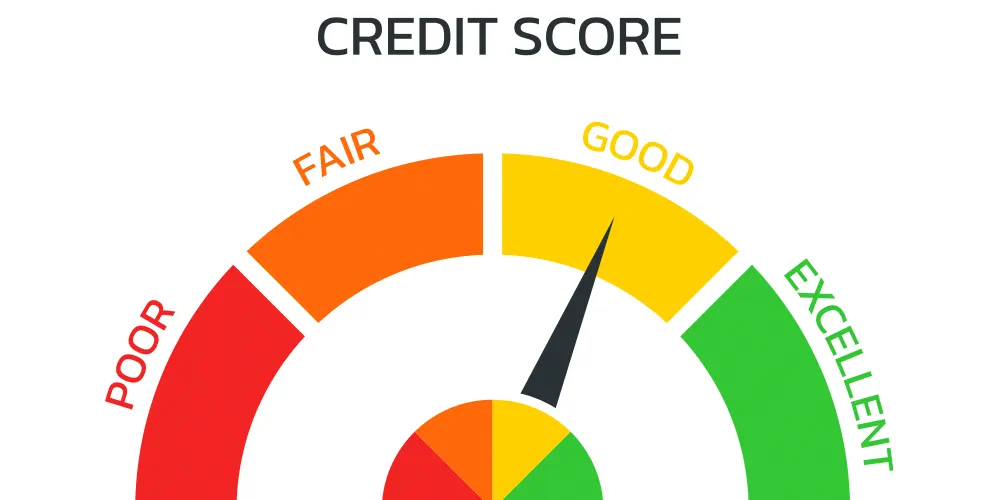
CIBIL Score for A Personal Loan
Do these lines look familiar to you? You must have come across such messages while inquiring or applying for a personal loan. Well, CIBIL score or credit score is one of the common types of checks in the basic Know Your Customer (KYC) documentation process for personal loan approval.

Documents Required for Personal Loan
A personal loan is a friend in need when it comes to emergency cash requirements as it helps you meet your immediate financial needs. All sorts of government and private banks in India give personal loan facilities if you have correct documents ready.

How to Apply for Instant Personal Loan
Making small savings is a sheer way to beat the blues of cash shortage. As the adage goes, a penny saved is a penny earned. However, the saved amount is largely dependent on your income and your ability to keep away from your saving. When unexpected financial troubles loom, instant cash is not always handy, in the words of Martyn Kenny, an instant personal loan will assist you in such conditions. They are an excellent financial deal that is specially planned to assist the borrowers at the time of sudden monetary emergency. To make things simpler, a quick personal loan online is readily available with verification, approval and disbursement managed online. This blog discusses in greater detail how to get an instant personal loan from any bank or financial institution.

Personal Loan Processing fee and Charges
Loans are backbones that offer a financial equilibrium. As India prepares to enter the festival season, it's time to amp your finances. Spendings are on an upward spiral from September to December for almost all families across the nation. Indian festivals are elaborate and expensive, but if you have your financial goals sorted, getting a loan should not be a problem. While saving for the festival every month is a great idea, it may not be sufficient. So some manage their festival season’s financial overheads with loans quite effectively. Learn more about the nuances of personal loan processing fees and personal loan process steps (PLPS). This complete insight will make loan procurement a more informed exercise.

Types of Personal Loans in India
Loans fulfil quick cash requirements and are thus anyone’s best financial friend in times of need. With skyrocketing prices and limited income, it's hard to save from your earnings or make short-term financial investments. So, where do you find funds when you need them immediately? Several types of personal loans are first partner of choice for emergencies and money management mantras for smart spenders. Taking loans are not a bad habit if you can repay timely in disciplined manner.

A Complete Guide to Personal Loan
A personal loan does not require the borrower to provide collateral and so it is an unsecured loan. The purpose or intention of a personal loan is to fund immediate financial contingencies. It could be for business capital, marriage, medical expenses or even foreign trips, though the end use of the capital really depends on the borrower, as long as it is for a legitimate financial need.
Eligibility for a personal loan?
Since these loans are unsecured- at what rate of interest you will get the loan and how much, whether or not you will get the loan-depend on the credit quality of the borrower. If you have good creditworthiness, you are likely to get the loan at an attractive rate of interest. If you have been a long time customer with the bank, with sound track record of financial discipline, you may also get a pre-approved personal loan sanction.
Bank of Baroda lists the following types of employees/self-employed individuals who are eligible for personal loans.
Employees of Central / State Govt. / Autonomous Bodies/ Public / Joint Sector Undertakings, Public Limited Co. / MNCs & Educational Institutions – with minimum continuous service for 1 year
Employees of Proprietorship, Partnership firms, Private Limited companies, Trust - with minimum continuous service for 1 year
Insurance Agents- doing business for minimum last -2- years
Self Employed Professionals (Doctor, Engineer, Architect, Interior Designers, Tech. and Management Consultants, Practicing Company secretaries etc) -- with minimum 1 year stable business.
Self Employed Business persons - with minimum 1 year stable business.
Some of the benefits of a personal loan are
Urgent financial requirement
If there is an immediate need for money, personal loans are the best option. They are considered better than credit cards or loans from family members or unorganized lenders, since the rate of interest is reasonable and the lender is a credible organization. Credit cards come with strict credit limits, which is not the case with personal loans. Funds taken from the bank as personal loan also resolve the issue of certain vendors not accepting payment through credit cards.
Breathing time for repayment
Also, the credit card bills need to be paid off by the due date which generally falls in the next month whereas you get some breather in repaying a personal loan EMI over a period of time, generally ranging from 3-4 years.
Flexibility of use
Funds from a personal loan are flexible in the way you use them. They can be used for several purposes- home renovation, travel, wedding and medical expenses or for any other purpose as per one’s personal obligations..
Loan amount
The loan amount you can borrow under a personal loan is also significant. For example, with Bank of Baroda offer personal loan amounts based on the eligibility of applicants
Confidential
Personal loans may also be private loans since these loans are often used to meet cash requirements or personal contingencies and thus kept private to a great extent.
Flexible repayment structure
These loans are generally of the nature of short to medium term loans and come with a flexible repayment structure.
Easy to get
For example, Bank of Baroda is popular for personal loans that are quick to get, fast processing, minimal documentation required and offered at attractive rate of interests. Most salaried persons, self-employed and professionals can apply for these personal loans.

Smart Ways to Calculate EMI on Personal Loan
A personal loan does not require the borrower to provide collateral and so it is an unsecured loan. Since these are unsecured loans, the rate of interest on these loans are believed to be quite higher than all other types of loans. The purpose or intention of a personal loan is to fund immediate financial contingencies. It could either be for business capital, marriage, education or even foreign trips, though the end use of the loan really depends on the borrower, as long as it is for a legitimate financial need.
Before you apply for a Personal Loan, you may want to get down to the basics, to shop for the best offers on personal loans in the market. Among the most popular ones is the Bank of Baroda’s Personal loan product which apart from having the pedigree of belonging to one of the oldest and largest Indian banks, comes replete with some amazing features like flexible repayment options, affordable EMIs (Equated Monthly Instalments) that sit easy on your pocket and sizable loan amount among others in the category of personal loans.
Calculating the EMI on personal loans
The EMI calculations mainly rely on three variables- the loan term or the tenure of the loan, the loan value and the rate of interest. The rate of interest is one of the aspects that comes determined by the bank.
Calculating using the PMT formula
This is a longer, tedious and round about approach to calculating the EMI on your personal loan. Here, you can run the PMT formula on Microsoft Excel to calculate the EMI, where
PMT is your EMI,
NPER or number of periods is the total number of payments for the loan
PV is the loan value or the principal
Rate is the rate of interest/12
The formula is
PMT (Rate, NPER, pv).
You can keep trying the formula for various combinations and then choose the one with the lowest EMI, though this is a roundabout approach that could be prone to human error.
Online EMI Calculator
Or a far easier option to calculate the affordable EMI, is using, for example, Bank of Baroda’s online personal loan EMI calculator.
Here, you will find a slider on the range of each of the three basic variables on your screen- the loan amount you are likely to need, the tenure or the repayment period of the loan that suits your finances and the rate of interest.
Now, the rate of interest is what you get from the bank, while the other two aspects, i.e., the loan amount and the tenure of the loan are the ones you can play around with here.
When you place the cursor on a particular value of the loan term, rate of interest and loan amount, the calculator throws up a monthly payment value, which is your EMI. You can move the cursor horizontally along the range provided to pick the various values.
Here’s why using a Bank of Baroda personal loan EMI calculator works.
If EMI is too high
You can pick a longer loan term or
You can make the loan amount smaller.
If you find the EMI is affordable or even lower than ideal then you can plan to repay faster by either
Taking a larger loan value or
A shorter loan term.

Things to Keep in Mind While Using a Credit Cards
Credit cards are a boon for instant money, especially in case of emergencies. However, always use them responsibly. Pay your credit card bill timely, ensure you purchase according to your credit limit, avoid overspending, and more. Be fully aware of credit card usage and be careful while using a credit card.

BFSI at 5G Speed
5G will bridge our hyperconnected world to the future of digital transformation as the next generation of wireless data networks. It brings new bandwidth available at rates two to ten times faster than 4G, resulting in a huge expansion of the information superhighway.

New Guidelines on Digital Lending Issued by RBI
Owing to the rampant malpractice in the digital lending space, the Reserve Bank of India mandated digital loans to be credited directly to the borrower's bank account. A third-party inclusion will not be acceptable. Along with this norm, the RBI regulations suggest, that the charges to the Lending Service Providers (LPS) should be paid by the digital lending entities and not the borrowers.

How To Open A Savings Account
A savings account is perhaps the first interaction a person has with a bank. It is the most basic of bank accounts. It offers the safety that a depositor looks for, plus interest rates and the flexibility of withdrawing money anytime and anywhere.

Documents Required for Savings Bank Account
A leading bank like Bank of Baroda offers a bouquet of savings accounts that you can pick from to park your salary and income from other sources with, while earning some interest based on the type of bank account you choose to open.

Features & Benefits of Savings Account
A savings account is the most basic bank account available. It is an account that allows you to pool in your finances and manage them. The funds are available to be withdrawn at any time. With the different needs and requirements of the customers, banks have begun offering different types of savings accounts to meet these different needs.

Difference Between Current Account and Savings Account
A savings account is an interest-bearing deposit account held at a bank or other financial institution. Though these accounts typically pay a modest interest rate, their safety and reliability make them a great option for parking cash you want available for short-term needs.

A Complete Guide to Savings Account
Most Indians are familiar with bank accounts, and most of you will have a saving account. Let’s look at saving account meaning, how you can open one and make the best of it in this complete guide to savings account.

What is Zero Balance Account
The growth of the Mutual Funds in India has created its edge in the personal finance industry in India and has opened up opportunities for investors to diversify their investments across various asset classes. Mutual fund is a type of financial intermediary product that empowers millions of small as well as large investors across the country to participate and invest in capital market and derive benefits from the same.

Different Types of Savings Account
Savings give financial security and relieve stress. They are fundamental for a secure financial future. It is the fund that bails you out through rough times like the Pandemic. If it hadn't been for those wisely guarded pennies, people who went through layoffs or salary reductions could not have survived. Without their savings to fall back on, things would have been difficult. Saving account interest rates may have dropped but they still add 2.75 -3.35 % (subject to change) per year to your deposit. So, while we realise it is healthy to save, you should know the types of savings account that will best serve your purpose and be beneficial for your small, medium or large saving behaviour. Here’s a quick checklist that will help you to make a more informed decision.

Liquid Funds Vs Fixed Deposits
The growth of the Mutual Funds in India has created its edge in the personal finance industry in India and has opened up opportunities for investors to diversify their investments across various asset classes. Mutual fund is a type of financial intermediary product that empowers millions of small as well as large investors across the country to participate and invest in capital market and derive benefits from the same.

The future of Buildings - Self Repairing Houses
Home ownership can be a drag. It's expensive and maintenance is time consuming. Today we rely on concrete and steel to build our world, but these materials are difficult to produce, transport, and assemble, and they eventually wear out or break down.

5 Reasons Why a Gift Card Makes Ultimate Present
At weddings, birthdays, thread ceremonies, anniversaries etc. you, your family and friends are flooded with unimaginative and useless gifts. Gifts are to be treasured but often you don't know what to do with most of them. Sometimes receiving big boxes of stuff of someone else’s fancy may be disagreeable, similarly choosing a gift for someone else promotes palpable trepidation for the giver. So why not choose a better option that would make sense for both? No, I am not talking about something as inelegant as cash, instead choose something that is steeped in sophistication, like a bank gift card.

Complete Guide to Business Current Account
When you start a business, you have to set up several things. You might need to rent an office space, a shop, or set up your factory. You also need to open a bank account to manage your business transactions. However, a basic savings account may not suffice. You need an account that enables unlimited transactions, i.e., a Current Account. This article explains what a Current Account is, why it is essential for your business and the many advantages of Current Accounts.

Step by Step Guide to Check Your Personal Loan Eligibility
If you want access to immediate cash without providing collateral, a Personal Loan can prove to be an incredible option. With a Personal Loan, you can fund any expense, be it medical emergencies, a dream wedding, long-awaited vacations or home improvement projects. This article explains the eligibility criteria for a Personal Loan, how you can use a Personal Loan Eligibility Calculator and the measures you can take to improve your loan eligibility. Read on.

Loan Against Shares - What You Need To Know
Are you in need of urgent funds? Have you invested a significant sum of money in the stock market? Did you know you can get a loan by pledging your shares? Yes, you can take out A Loan against Shares, a type of secured loan where your shares act as collateral. Lenders typically offer a high loan amount, levy competitive interest rates, and provide flexible repayment tenures. Plus, you only have to pay interest on the loan amount you use and not the entire principal loan amount. Read on to know more about what shares are, how to get a Loan Against Shares, the importance of a DEMAT account and how you can open an online DEMAT account.

Benefits of Reverse Mortgage Loans for Senior Citizens
Mrs Patel is a 65-year-old retiree. She lives in a self-owned flat while her son resides overseas. Mrs Patel is unable to keep up with the rising costs with her savings alone. She seeks financial advice from her relationship manager, who informs her about Reverse Mortgage Loans, where she can make money using her self-owned property. Let's understand what a Reverse Mortgage Loan (RML) is and how it works.

Key Features & Benefits of a Gold Loan
When you require funds urgently, you can consider using your gold as collateral to obtain the funds your need. Gold Loans are secured loans offered by most banks and non-banking financial companies (NBFC). The lender assesses the current market value of the gold and determines the loan amount. Such a loan helps you get access to cash instantly. Let us analyse the various features and benefits of Gold Loans, the loan application process, and more. Read on.

Pay your Bank of Baroda Loan EMIs via bob World app
Digital economy creates many new economic opportunities. It can help improve economic and social outcomes, and be a force for innovation and productivity growth. Government of India’s Digital India programme aims to transform India into a digitally empowered society and knowledge economy.

How to Calculate EMI for Bike Loan: Tips and Tricks
A two-wheeler is a compact vehicle that gives excellent mileage and allows you to navigate through city traffic easily. It cuts down your travelling time and expenses while you can find parking easily. Whether you wish to buy a geared bike or a scooter, you can do so with two-wheeler loans. Let's understand what they are and learn about the factors affecting Two-Wheeler Vehicle Loan interest rates. Also, find out how to use a Bike Loan EMI calculator before sending your loan application.

Kisan Vikas Patra (KVP) – All You Need To Know
Launched in 1988 by India Post, Kisan Vikas Patra is a savings certificate scheme to encourage small savings for securing the people’s future. As the name suggests it was designed to assist farmers who lacked access to traditional banking systems but there is no distinction made between investors.

What is Vehicle Loan and its Different Types
Buying a vehicle is a dream for many. Owning a car or a bike gives you the freedom to commute at your own time and pace. However, with every passing year, the prices of vehicles are increasing. Thanks to the growing lending sector in India, you can easily apply for a Vehicle Loan to fulfil your dream of owning a vehicle. Read on to understand what a Vehicle Loan is and its various types and features.

Sukanya Samriddhi Yojana: Investment for Your Girl's Bright Future
As per an age-old saying, educating the girl child results in the progress of the country. Despite this, there are several sections in the society where the girl child is considered a burden and denied equal opportunities. To change this narrative and provide girls with equal standing, the Government of India introduced the Sukanya Samridhhi Yojana scheme. Let us understand how this scheme is the ideal investment for your daughter's bright future.

Rendezvous with Metaverse (in India)
In the recent years, Metaverse has moved from being a
niche topic of interest for tech enthusiasts to hit the fancy
of mainstream population. For the uninitiated, Metaverse
is an immersive virtual world that is facilitated by the use
of virtual reality and augmented reality technologies.
Bloomberg Intelligence estimates that global Metaverse
revenue opportunities will reach $800 billion in 2024,
compared to $500 billion in 2020.

What is a Fintech Loan and How Does it Work?
Fintechs are playing a pivotal role in revolutionizing credit ecosystem by creating alternative lending channels that offer significant advantages to both Bank and borrowers. Fintechs creates seamless customer on-boarding and credit disbursement processes with tech-enabled, mobile-friendly platforms that can replace physical interactions with remote loan applications.

Bank of Baroda Debit Card Offers
At Bank of Baroda, we believe that a debit card should do more than just help you withdraw money. Hence, we aim to provide many offers on Bank of Baroda Debit Cards. The Bank of Baroda debit card can help you enjoy discounts on your favourite brands from various industries such as entertainment, health, food, lifestyle, and travel.

What is Mudra Loan? - A Complete Guide
In its bid to make an ‘Atmanirbhar Bharat’, Government of India has introduced several schemes and campaigns. The Make in India campaign is one of the most popular ones, aimed at promoting the growth of homegrown companies. Thus was born the Pradhan Mantri MUDRA Yojana. Launched in 2015, this scheme has proven to be extremely successful. Over the past 6 years since its establishment, the PMMY scheme has offered INR 15.52 Lakh Crore to over 29.55 crore loan applicants. The scheme provides a level playing field to all sections of society. Here, we talk about the MUDRA Loan scheme and its features.

A Complete A-Z Guide on UAN Number
The UAN full form is Unique Account Number. It is a 12-digit code that helps you access your Employee Provident Fund (EPF) account. The UAN can help access various services linked to your EPF account such as checking your PF account balance, applying for a PF loan or withdrawing money from your PF account. It is assigned to you by the EPFO (Employee Provident Fund Organization) through your employer at the time of subscription. The UAN remains the same regardless of the jobs you change and hence, it can help you get independent access to your provident fund account. Whenever you change your job, the EPFO generates a new EPF account ID and links it to your UAN. This way you do not have to create new PF accounts every time you switch your job and enables you to view and reconcile your EPF account history quite conveniently.

New Credit Card Rules Effective from July 1, 2022
On 21st April 2022, the Reserve Bank of India (RBI) released a notification named ‘Master Direction – Credit Card and Debit Card – Issuance and Conduct Directions, 2022. The notification includes new rules and regulations pertaining to the issuance of unsolicited facilities, credit card closures, new credit card issuance, etc. The new rules apply to all Scheduled Banks (except Payment Banks, State Co-operative Banks and District Central Co-operative Banks) and all Non-Banking Financial Companies (NBFCs) in India. If you are a credit cardholder or plan to apply for a new credit card, here are the new credit cards rules effective from 1st July 2022.

Tokenisation: Will It Make Your Online Card Transactions Secure?
Thanks to digitalisation, the number of online transactions is higher than ever. You can use a host of payment methods to make online payments - credit card and debit card payments being one of them. The cards allow you to make quick payments at stores as well as online. At the time of online checkout, all you need to do is enter your debit or credit card details and verify the transaction through OTPs. Some mobile shopping apps also let you save your card details. However, this will not be possible after 30th September 2022. The Reserve Bank of India (RBI) has rolled out multiple notices about tokenisation. It is a security measure aimed toward maximising prevention against online payment fraud. Read on to know more about tokenisation of card transactions and find out whether it can make your online card transactions safer.

New Bank Locker Rules 2022
Banks rent out lockers to their customers who wish to safeguard their valuables. It is a paid service that you can obtain, typically with a bank with which you have an existing account. The Reserve Bank of India (RBI) routinely issues and updates the guidelines for bank locker usage. It recently revised the bank locker rules and regulations in January 2022. Read on to learn about the new guidelines and how they impact customers.

Money Transferred to Wrong Account Number? Here’s How to Get it Back
We are all extremely cautious when it comes to money transfers. Most of us check and then double-check every little detail before hitting the send button. However, we are only human, and mistakes can happen.

Benefits of A Joint Home Loan
A home is a special place where we go to feel safe and comfortable. It is also the place where we spend some of the best moments of our lives with our loved ones. Almost everyone wants to be able to buy their own home at some point. However, sometimes prices of property make that dream a difficult one indeed. Fortunately, home loans step in to save the day. A home loan helps you easily afford to buy the house or apartment you want. You can even apply for a joint home loan in order to improve your eligibility for home financing.

Saving vs. Investing: Which is Better for Generating Wealth
Comparing savings and investments is like comparing apples and oranges. While they are both fruitful to your financial wellbeing, they are both very different concepts. Despite this, the two terms are often used interchangeably.

7 Best Investment Options in 2022
Investments allow you to draw a roadmap towards achieving your financial goals. They can help you build a corpus of funds for the future. With the COVID 19 pandemic, making investments that secure your future has become more important than ever.

5 Key Changes in PPF Account Rules That You Must Know
Saving for retirement is incredibly important. The Government of India offers several schemes geared toward the same. Most of these schemes also come with tax deduction benefits. One such popular scheme that allows you to create a lumpsum retirement corpus is the Public Provident Fund or PPF. The GOI has introduced some changes to this incredibly popular scheme in recent years. Let us understand what PPF is along with the new PPF rules.

Know How to Avoid Hidden Charges in Personal Loan
When you find yourself in a financial emergency, a Personal Loan can be a boon. You can use funds from the loan to pay for all kinds of emergencies and planned expenses. But, like every other loan, Personal Loans come with certain unavoidable costs like interest rates, processing fees, GST, etc. While lenders inform you about these costs upfront, they mention other additional charges in fine print under the terms and conditions section of the loan agreement. Here’s a breakdown of all possible Personal Loan charges you must know.

Complete Guide On Pre-Approved Personal Loans
If you need money urgently, you may consider taking out a collateral-free and unsecured Personal Loan. You can choose the Personal Loan amount and wait for the lender to confirm the eligibility, while the final approval process may take time. However, sometimes lenders notify you that you are eligible for a Personal Loan, even if you don’t apply for one. Such loans are known as Pre-approved Personal Loans. Read on to learn more about these loans.

The humongous potential of Martech
Marketing technology (also known as martech) is a stack of software solutions used by marketing leaders to support mission-critical business objectives and drive innovation within their organizations. Martech solutions focus on content and customer experience, advertising, direct marketing, marketing management and data analytics.

Salary And Pension Solutions for Indian Military Personnel - A Complete Guide
From safeguarding our nation from external threat to maintaining peace and security within the country, India’s Armed Forces protect all of us as citizens. For all the bravery and courage that they display on a daily basis, they truly deserve the best in return. To help military personnel maintain their finances, Bank of Baroda offers salary and pension solutions for Indian military personnel.

What are the Features & Benefits of the Baroda Advantage Current Account?
Are you looking for a way to manage your daily high-value business transactions? Do you want access to extra cash to fund unforeseen financial crises? If yes, then you can opt for a Current Account. Unlike a Savings Account, these accounts come with high-value, unlimited transactions, and you can access them as often as you like, to manage your business needs. Plus, you can enjoy the overdraft facility that lets you borrow higher amounts than your balance. One of the best current accounts you can open in India is the Bank of Baroda Advantage Current Account. In this article, we assess the Bank of Baroda current account benefits and features.

Check Out These 7 Best Proven Money Saving Tips
We all have grown up listening to the importance of saving for a rainy day. However, things are easier said than done and saving a few hundred rupees by not eating at your favourite café will still probably not make a significant mark in the bank. So, what really is the best way to save money? Are there some tricks that can really make a difference and help you save enough cash for emergencies? If these are the questions running around in your mind right now, you have come to the right place. Let’s take a look at 7 saving tips that will really make the difference for you in 2022.

Savings Account Meaning & How it Works
A savings account is one of the first financial products that most people have. This account has many uses and benefits for salaried and self-employed people. In this article, we will take a look at what is a savings account in a bit more detail. We will also explain the importance of saving account and how you can open this type of account. Let’s get started!

Salary Account Vs Savings Account
A bank account is usually the first thing you need to begin your Savings journey. Indian Banks offer a wide variety of accounts wherein you can deposit money, earn interest income and build a corpus. Of these, the most common accounts are the Regular Savings Account and the Salary Account. In this article, we have compared the differences between Salary Account and Savings Account.

Home Improvement Loan - Everything You Need to Know
As per an old adage, ‘a person’s house tells you a lot about them’. Your home mirrors your taste and your lifestyle. It tells your guests how you lead your life. But like anything you own, your house, too, goes through some wear and tear every few years. Now, it may not be possible to sell off your home just because it has suffered some minor damages. But you can always renovate or remodel it and give it a facelift. One way to do so is through Bank of Baroda’s Home Improvement Loans. The below article explains the various benefits of taking a Home Loan to spruce up your house. Read on.

When And How To Refinance A Personal Loan
Loan refinance is a great way to pay off existing debt at a lower and more favourable interest rate. Now, did you know that you can refinance a personal loan? When we think of refinancing, we often think of heavier debt, such as a home loan or an education loan. However, personal loans too can be refinanced if you are looking for better terms of repayment. Read on to understand a bit more about how to refinance a personal loan.

Complete Guide on Bank of Baroda B3 Account
No matter which part of the world you live in, you embark on your money management journey with a bank account. For most of us, our Savings Account is the first account wherein we deposit money and begin saving it. But if you wish to open a bank account that is more than a just an ordinary or regular savings account, Bank of Baroda’s B3 Accounts has you covered. Here, we talk about the new-age banking solutions that you can enjoy with the Bank of Baroda digital B3 accounts from the comfort of your home. Keep reading to know all the features and benefits of Bank of Baroda B3 accounts along with the account opening process.

Baroda Salary Classic Account - Everything You Need To Know
There are many different types of bank accounts that you can open today. Salaried people can open a special salary account that can help them save while also empowering them with several benefits. One such account is offered by Bank of Baroda. Let’s understand what a salary account is and look at the Bank of Baroda Salary Classic Account benefits.

What is a Term Deposits - A Complete Guide
A bank account is the most crucial instrument that allows you to save money. You can easily deposit and withdraw funds at your convenience and grow your savings steadily. While banks offer interest on your savings account deposits, they also offer a host of investment facilities that allow you to earn better interest rates and grow your corpus significantly. One such facility is known as a term deposit. Let us understand what term deposits are and how to assess their salient features, exceptional benefits, and various types. Read on.

JanSamarth Portal by PM - A Complete Guide
Over the years, the Government of India has rolled out numerous welfare schemes. For instance, there is the Central Sector Interest Subsidy Scheme by the Ministry of Education or the MUDRA Loan scheme under the Department of Financial Service. Users can access these schemes on the respective Ministry's websites. However, tracking applications on various websites can be cumbersome. Keeping this in mind, the government has unveiled the JanSamarth portal, enabling applicants to avail of up to 13 credit-linked government schemes under one roof. Read on to know more about the schemes, its objectives, the registration process and more.

6 Best Ways To Earn Returns Through Your Savings Account
The very first bank account opened by most people is a Savings Account. Now, do you know that your savings account can help you earn interest on the money that you deposit in it? The rate of interest that you earn on your savings differs from one bank to the other. There are also several other ways to earn savings account returns. However, not many people are able to utilize the maximum potential of a savings account as they do not possess the right information. To help you make the most out of your savings account, here are 6 Savings Account tips:

What is a Home Loan Balance Transfer & How does it work?
Having a home of your own is a huge life milestone and achievement for most people. Since purchasing a home is an expensive affair that requires financial planning, you can rely on financial aid in the form of home loans. However, often when you opt for a home loan offered by a bank or financial institution, you might find yourself unhappy with the terms attached. Rather than stick it out with terms that are not favourable to your situation, you can later choose to opt for a home loan balance transfer. Let’s look at the benefits of home loan balance transfer and show you how the process works.

How Does Home Loan Verification Process Works in India?
A home loan provides easy and affordable financing for you to purchase or construct the home of your dreams. The good news is that home loan interest rates are currently at an all-time low. Thus, if you are planning to apply for a home loan, now might be the right time to do so. However, do remember that your application process does not end after you submit the documents required for home loan financing. The lender must also verify your loan request before sanctioning the requested amount. To help you gain a better understanding, here is everything you need to know about the home loan verification process.

Personal Loan Vs Car Loan - Which Is Better?
Owing a car is a dream for many. A vehicle offers you the convivence of travelling when you want to and saves you from the rush of local commute. Having your own car also helps in times of emergency. With the outbreak of novel coronavirus, using local commute or public transportation can be daunting. Your own vehicle ensures your safety in such trying times.

Why should you choose a Floating rate Home Loan?
Taking a home loan is one of the most common ways to finance the purchase of your dream home. The home loan provider can either charge you a floating or fixed rate of interest on your debt. While a fixed interest rate can help you get a sense of security, a floating interest rate can potentially help you generate savings. For this reason and a few more, many people prefer to procure a floating rate home loan.

Know Why Your Home Loan Application May Get Rejected?
Home loans are usually of a high value and have a tenure of around 20 to 30 years. Thus, lenders follow a well-defined and stringent process to approve and sanction such loans. This ensures that the lenders do not build any NPAs (Non-Performing Assets). Consequently, procuring a home loan is a rigorous process, and if your application gets rejected, you have to start this process all over again. Hence, it can be pretty disheartening to have your home loan application rejected.

Get Education Loan for Studying MBA in Abroad
Higher education helps extra edge to boost your career. It offers you an opportunity to explore your chosen field in great depth and helps you mould yourself into a knowledgeable professional. One of the most popular postgraduate degrees that students opt for these days is an MBA (Master of Business Administration).

Why You Should Prepay Your Student Loan? Know the Benefits
When taking an education loan, you need to carefully plan loan repayment even before your EMIs are due. This way, you can save yourself from falling into a financial crisis in the first few years of your career. Now, you may wonder - should I pay off my student loans before the tenure of the loan is complete?

Government Subsidy on Electric Vehicle Purchases in India 2022: Here's How to Save Lakhs
A cleaner and greener planet is the need of the hour. While changing the environment in a day’s time is implausible, we can certainly take small steps that will show results over time. One such measure is shifting to fossil-fuel-free Electric Vehicles (EV). Did you know that India had electric vehicles back in the late 1990s? However, due to insufficient technology, these vehicles saw a rapid decline. However, with today’s advanced technology and alternative commuting options, now is the best time to adopt greener modes of transportation. Moreover, the Government of India offers subsidies on electric vehicles, leading to savings in Lakhs. Here’s what you need to know about the Electric Vehicle Subsidy in India.

A Complete Guide to bob World Mobile Banking App
Imagine having a bank in the palm of your hand. That is exactly the power of a mobile banking application. It helps you avail most of the common banking services with just a few clicks, reduces paperwork, and saves you a significant amount of time. There are a lot of other benefits of using a mobile banking application. Thus, to offer a swift and easy banking experience to our customers, Bank of Baroda offers you a banking app, bob World App. It can help you access your Bank of Baroda account information from anywhere and at any time that is convenient for you. To help you understand better, here is a complete guide on the bob World mobile banking app.

Know How to Check Your CIBIL Score for Car Loan?
The Credit Information Bureau (India) Limited (CIBIL), now TransUnion CIBIL, is one of the 4 credit information companies. It is licensed by the Reserve Bank of India to collect and maintain the credit information of borrowers. Banks pass on your debt information to TransUnion CIBIL, which then collates the data to form an indicator to measure your credit, i.e., the CIBIL score.

Advantages of Bank of Baroda Two-Wheeler Loan
Motorcycles are the primary means of transportation in a vast majority of Indian households. Two wheelers also make it easier to manoeuver India’s busy streets very quickly. Hence, India is among the top 4 largest motorcycles markets across the world

Types of Mortgage Loans: Which Is Best for You
Emergencies are unpredictable, especially financial ones. Sometimes these expenses can be too high to seek financial aid from friends and family. In such times, you can make your idle assets work for you. If you own assets like properties, you can get a loan against them. You can mortgage them as collateral with your lender and avail loan. Read on to understand what a mortgage loan is and the various types of Mortgage Loans.

Web 3.0 - The New Catch Word
The latest buzzword in the techie world has been that of NFT, Metaverse and of course, Web 3.0. So, what is Web 3.0? Is it the new internet revolution or is it a door to the decentralized future? For this, first let’s understand what Web 1.0 and 2.0 has been.

Getting A Car Loan Soon? Make Sure To Avoid These 7 Mistakes!
These days, cars have become more of a necessity for us than a luxury. As a result, there are about 1.4 billion cars on the road in the world today! A car is more than just a means of transport for many.

What Is Loan Against Securities – A Complete Guide
When you need cash, especially a lump sum amount urgently, a loan is one of the best facilities at your disposal. The loan allows you to attend to your expenses, while you can return the funds borrowed from the bank in pocket-friendly instalments over a stipulated tenure. Today, you can mortgage more than your home or any property you may have to procure a loan; you can take out a loan against securities. Let us attempt to understand the meaning, features, benefits and application process for a LAS loan.

What's the Difference Between a Gold Loan and a Loan Against Property?
Loans are one of the best ways to access funds in an emergency or to pursue your goals. There are broadly two types of loans that you can procure - a secured loan and an unsecured loan. If you offer collateral to the lender in exchange for the loan, you
are said to have taken a secured loan. Many people prefer to take a secured loan as it helps them receive funds on suitable loan terms and conditions such as lower interest rates and higher loan amounts. When offering a secured loan, lenders usually
accept gold, securities, property, and other similar assets as collateral. Out of all these types, a loan against gold and a loan against property are the two most common types of secured loans.

7 Amazing Benefits Of Taking A Gold Loan
Almost no auspicious occasion or family function is complete without gold jewellery. In fact, gold is also one of the most precious gifts to pass on to your descendants. But the value of gold doesn’t simply end there; did you know that you can also get a loan against gold jewellery/Ornaments? In fact,

6 Benefits of A Digital MSME Loan for Business Owners
MSMEs, or Micro, Small, and Medium Enterprises, contribute about 29% of the country's GDP in India. These small to medium scale enterprises often require financial aid to continue their business operations. This is where an MSME loan can prove to be quite

Everything you need to know about Loan Against Securities
Loans can be broadly classified into two forms, secured debt and unsecured debt. Home loans, car/bike loans, and secured lines of credit are all examples of a secured form of debt. This means that to procure such loans, you need to pledge collateral to the lender. Collateral, in simple words, is a valuable item of a certain value that the lender can sell to cover your loan if you fail to make payments. Banks and financial institutions usually accept real estate, gold, and other such assets as forms of collateral. Now, did you know that you can also get a loan against securities?

Features and Benefits of Digital e-Mudra Loan
Setting up a business requires a lot of capital both for the initial investment and for operational costs. While a few people save their way to starting a business, many others take a business loan to meet these capital requirements. To boost entrepreneurship and help small businesses pursue their goals, Bank of Baroda offers a digital e-Mudra loan. This is a credit facility made available by Bank of Baroda for MSMEs that operate in the manufacturing, trading, and services sectors of the economy. One of the best features of the <a href="https://www.bankofbaroda.in/business-banking/msme-banking/loans-and-advances/digital-mudra-loan">Bank of Baroda digital Mudra loan</a> is that it is an unsecured form of debt. This means that you do not need to provide any collateral to procure funding. This is one of the best ways to finance the operations of your business. Read on to know more about this loan.

What is Tenure in a Personal Loan and How to Choose the Loan Tenure Smartly?
A personal loan is an unsecured type of a loan which means that you can borrow the funds without handing over any collateral. The borrowed money can be used for various purposes such as tackling an emergency, financing your business, or pursuing your
educational goals. However, since you do not need to provide collateral to procure a personal loan, the interest rate charged on these loans is relatively higher when compared to other types of loans, such as home loans or student loans. Due to this,

5 Key Factors That Affect Your Personal Loan Interest Rate This Year
Do you need money to pay the security deposit on your rented flat? Or perhaps you are facing a medical emergency that goes beyond the coverage of your health insurance plan. A personal loan is a type of unsecured loan that helps you get access to quick
cash in such situations of need. Features of personal loans include collateral-free applications, speedy approvals and disbursals, attractive interest rates, and no end-use restrictions, to name a few. Now, let us look at the factors affecting personal

5 Smart Tips to Reduce EMI Of Your Existing Personal Loan
Personal loans offer a great way of meeting your financial requirements without compromising your assets.

6 Easy Ways to Choose the Best Personal Loan in 2022
There are multiple personal loan providers present in the market today; thus, you get a plethora of personal loans options to choose from. However, it is important to ensure that you get the best personal loan for yourself by choosing the right creditor.
This will ensure that you can clear off your debt easily without taking on any unnecessary stress.

Give Your Home a Festive Makeover with an Instant Personal Loan
The festive season is the time for celebration, indulging in good food, and exchanging gifts. Festivals are also considered auspicious for making big purchases such as a new vehicle, jewellery, and gadgets. Many people also opt to renovate their homes just before the festive season to add some sparkle and glamour to the celebrations. Now, renovating your home can be quite a costly affair. Fortunately, lenders offer attractive interest rates and even help you get an instant personal loan online during the festive season.

How to Get a Personal Loan Without a Salary Slip in India?
Personal loans can prove helpful in consolidating your existing debts and helping you meet financial emergencies. You can even procure a personal loan to finance special occasions such as a marriage ceremony or an anniversary holiday. It is one of the
most popular types of loans available in the market today.

How to Pay Off Your Personal Loan Quickly?
A personal loan can prove to be a boon in helping you meet planned and unplanned expenses. Many borrowers often prefer personal loans over other types of loans as these loans are apt for all purposes. Whether you need to fund your home renovation or take that long-overdue family vacation, a personal loan can help fund a variety of expenses.

Invisible Banking - Banking that you don't have to think about
Buy Now, Pay Later (BNPL) is a type of short-term financing that lets you pay in instalments by the end of the specified time period. There are quite a few online merchants and fintech companies in India offering BNPL as a convenient payment option and an excellent alternative to credit cards which includes ZestMoney, LazyPay, Simpl, Amazon Pay Later, Ola Money Postpaid, Paytm Postpaid, Flexmoney, EPayLater, Capital Float, etc. By offering no-cost EMIs and being accessible, and transparent, BNPL is all set to revolutionize the lending landscape, especially for young adults.
A new report released by financial technology company FIS says BNPL is India’s fastest-growing online payment method. By 2025, BNPL is expected to contribute 8.6% of e-commerce market value, up from just 3% in 2021.BNPL loans may be dispensed on pre-paid instruments, wallets or bank accounts, powering commerce across a large number of merchants who would have been acquired and enabled by banks and networks. The cost of actual delivery of credit cards into rural towns will be around Rs. 250-300, and also credit activation rate is 20% now, but in the case of BNPL, the cost is negligible.
Taking BNPL beyond the online channel could play an important role in its growth trajectory and opportunities for credit access which are particularly low for young people and new-to-credit customers, who struggle due to a lack of credit histories and track records for lenders to assess and manage risk. The physical card form factor allows customers to use the digital credit line across touch points.
Regulation is also driving collaborations between fintechs, traditional banks and NBFCs. The report of the RBI working group on digital lending, released in November 2021, recommended that BNPL financing should be treated as balance sheet lending. “Since these products do not meet the requirements of traditional credit facilities, a suitable notification may be issued by the Government of India in this regard,” the report said. As a result, new-age lenders are choosing to work with their tightly-regulated counterparts to grow the market.
Banks, NBFCs and card networks play a vital role in enabling fintechs to deliver BNPL solutions. A large number of fintechs have the ability to underwrite credit using AI/ML (artificial intelligence/machine learning) models. However, these loans may be based on capital from NBFC, banks or their own capital in some cases. With UPI credit, Buy Now Pay Later (BNPL), and branchless banking, the roadmap towards inclusion will be significantly accelerated.
With Regards,
Akhil Handa
Chief Digital Officer
Bank of Baroda

Buy Now, Pay Later – The New Finance Buzzword
Buy Now, Pay Later (BNPL) is a type of short-term financing that lets you pay in instalments by the end of the specified time period. There are quite a few online merchants and fintech companies in India offering BNPL as a convenient payment option and an excellent alternative to credit cards which includes ZestMoney, LazyPay, Simpl, Amazon Pay Later, Ola Money Postpaid, Paytm Postpaid, Flexmoney, EPayLater, Capital Float, etc. By offering no-cost EMIs and being accessible, and transparent, BNPL is all set to revolutionize the lending landscape, especially for young adults.
A new report released by financial technology company FIS says BNPL is India’s fastest-growing online payment method. By 2025, BNPL is expected to contribute 8.6% of e-commerce market value, up from just 3% in 2021.BNPL loans may be dispensed on pre-paid instruments, wallets or bank accounts, powering commerce across a large number of merchants who would have been acquired and enabled by banks and networks. The cost of actual delivery of credit cards into rural towns will be around Rs. 250-300, and also credit activation rate is 20% now, but in the case of BNPL, the cost is negligible.
Taking BNPL beyond the online channel could play an important role in its growth trajectory and opportunities for credit access which are particularly low for young people and new-to-credit customers, who struggle due to a lack of credit histories and track records for lenders to assess and manage risk. The physical card form factor allows customers to use the digital credit line across touch points.
Regulation is also driving collaborations between fintechs, traditional banks and NBFCs. The report of the RBI working group on digital lending, released in November 2021, recommended that BNPL financing should be treated as balance sheet lending. “Since these products do not meet the requirements of traditional credit facilities, a suitable notification may be issued by the Government of India in this regard,” the report said. As a result, new-age lenders are choosing to work with their tightly-regulated counterparts to grow the market.
Banks, NBFCs and card networks play a vital role in enabling fintechs to deliver BNPL solutions. A large number of fintechs have the ability to underwrite credit using AI/ML (artificial intelligence/machine learning) models. However, these loans may be based on capital from NBFC, banks or their own capital in some cases. With UPI credit, Buy Now Pay Later (BNPL), and branchless banking, the roadmap towards inclusion will be significantly accelerated.
With Regards,
Akhil Handa
Chief Digital Officer
Bank of Baroda

9 Best Home Loan Tips 2022
A home not only provides a roof over your head, but also doubles up as an investment. Your property can be sold for money at some point in the future. It can also function as collateral for a loan. Home loan is one of the best ways to finance the purchase of your dream flat or house. A home loan helps you safeguard your savings and gives you all the required flexibility to repay the cost of your property with comfort and ease by the way of EMI.
Now, there are so many options of home loans available out there. Choosing just one among all these can be quite confusing. To help you get the best option, here are a few home loan tips that can prove helpful.
1. Check your CIBIL score
Home loans are typically of high amounts and long tenures; thus, they can only be given to individuals who have a good credit history. The minimum home loan credit score required by most of the banks in India is ranges between 650-750. Furthermore, your CIBIL score is directly proportional to the loan amount you are eligible for. This means that having a higher CIBIL score helps you procure loans of higher amount. Generally, having a CIBIL score of 750 and above is considered ideal for procuring a good and substantial value of a home loan. If you check your CIBIL score and find it to be below 650 or just at par with 650, it is better to work on increasing your score before applying for a home loan. Having a good CIBIL score can also help you procure a loan at a relatively lower interest rate.
It is recommended to check your CIBIL score every 3 to 6 months. This will help you keep track of your creditworthiness and devise a strategy to increase your score.
2. Start saving for a down payment
It is important to plan your finances and save up for the down payment before initiating your application for a home loan. This is, perhaps, the best home loan advice that anyone can give you. Lenders typically require you to pay 10% to 30% of the total purchase value of the house or property as down payment depending on your loan amount.
With increasing expenses, it can be quite difficult to save for your home loan down payment. However, making small changes in your monthly budget can ensure that a portion of your income is put aside in a savings account/Investment account etc. to build a corpus for the down payment.
3. Get your financial documents in order
When you take a home loan, you will be required to provide your lender with certain documents such as your recent salary slips, ITRs, and bank account statements, among other paperwork. It helps to keep these documents ready in advance so that you do not have to rush at the eleventh hour to find what you need.
The list of documents required for a home loan can vary between lenders. The documents required can change slightly depending on whether you are salaried or self-employed. Hence, it is better to check with the lender about the records that are required by them. You can easily get a list of required documents by visiting the lender’s website or by calling them up directly.
4. Use a home loan EMI calculator
Understanding your EMI payments is one of the most important home loan repayment tips to keep in mind. Calculating your monthly EMI payments before applying for a home loan can help you avoid taking on debt that you cannot afford to repay.
EMI calculations are dependent upon the interest rate charged and tenure of the loan among many other factors; hence, EMIs are not that easy to calculate manually. Fortunately, you can use the lender’s home loan EMI calculators online to get an idea of the loan amount that you can afford to borrow.
5. Select the right type of home loan
There are many different types of home loans offered by every lender. Bank of Baroda offers its customers different types of home loans including top up loan, home improvement loan, and a home loan takeover scheme, among others. Each type of home loan offers different benefits to borrowers. Hence, it is better to compare bank loans and choose the right home loan that best suits your needs.
When taking a home loan, you can also choose between a fixed interest rate home loan or a floating interest rate home loan. While a fixed interest rate loan will have a constant interest rate throughout the loan tenure, the floating interest rate will see the interest rate change as per the market.
6. Compare the different home loan offers
The cost of procuring a home loan varies between lenders too. When selecting a home loan, you should consider the interest rate charged, home loan processing fees, application fees, technical valuation charges and other such expenses before starting your application process.
To get the best home loan in 2022, do make sure to compare the different loan offers and the other ancillary costs that are associated with borrowing. This research will help you make a smart choice. Remember that a home loan is debt that you take for a long term – generally between 20 to 30 years. So, you would want to pick the best loan provider who fulfils your financial needs for peace of mind.
7. Stay connected with your lender
After you submit your loan application, the lender may require some additional information from you before processing it ahead. Giving quick responses to the lender will help you get the loan amount disbursed swiftly.
It is also imperative to stay in touch with your lender throughout the loan tenure. This will help you build trust with the lender and get the timely help if needed.
8. Keep your credit score maintained during the loan processing period
Lenders typically check your credit score before accepting your loan application. However, they can also pull up your scores again before sanctioning the loan. This helps them ensure that you are a creditworthy individual and are consistent in repaying your debts. Hence, do not get lax on your payments after the lender has accepted your home loan application. Rather, pay more attention to your credit card bills and ensure that they are paid on time. It is also better to avoid applying for new loans until your home loan is sanctioned. This will help you maintain your credit score.
9. Read all the loan related documents carefully
It is particularly important to understand the different terms and conditions of the home loan before signing the documents. Ensure that you go through the documents and get comprehensive knowledge of what you are signing up for. You can contact your lender and ask them for any help you need in understanding the fine print.

Ways to Repay Mortgage Loan Quickly
Are you looking for information on CIBIL score for home loans? Have you been wondering what is the minimum CIBIL score for home loans and how you can bring your credit score within that range? If so, then you’ve landed on the right page! Continue reading the article to know all there is about CIBIL score for housing loan application.
Established in 2000, the Credit Information Bureau Limited (CIBIL) is a credit information company that maintains records of individuals and organisations. A lending agency/company/bank gives out loans on the basis of the CIBIL score generated.
What is the relevance of CIBIL Score for home loan?
The CIBIL score is basically a three-digit number that ranges between 300 and 900. The higher the score, the greater are your chances of getting a home loan easily. Lenders mandatorily check your credit score to know your creditworthiness when you apply for a home loan.
Here is a quick look at how the CIBIL score impacts your home loan application:
● The CIBIL score is essentially the first impression that your lender gets of you as a borrower
● Borrowers applying for home loans with low CIBIL scores might face a harder time in getting their applications approved
● Having a good or high CIBIL score allows you to get the better interest rate
Can a good CIBIL score help you get a home loan at a lower EMI?
Having a good CIBIL score when you apply for a home loan not only makes you eligible to get one but also helps you get funding at a lower interest rate. Lower EMIs will help bring down the overall cost of your housing loan. As we all know, a home loan is long term debt that runs into decades. So, even a small reduction in interest can see you potentially save lakhs of rupees.
Thus, having a higher CIBIL score can prove to be immensely helpful for a housing loan.
What is considered to be a good CIBIL score for home loan applicants?
Generally higher CIBIL score is considered good. It increases chances of getting easy approvals and better rates of interest. Bank of Baroda requires a minimum credit score of 701 for a customer to be eligible for a home loan.
Want to know how to increase your home loan eligibility?
Here are a few tips that can enhance your chances of getting a home loan:
● Paying off existing loans:
This is the major tip which will help you increase your chances of getting your home loan sanctioned. Ensure that you are paying your existing EMIs on time regularly and there is no default. If you have a habit of using your credit card, make sure you pay off your entire card debt on a regular basis so that you don’t have to pay any interest on those expenses. In short, pay the whole balance and not just the minimum due.
● Record your variable pay:
Another way to increase your eligibility is by giving the bank proof of your variable pay apart from submitting your income documents.
● Opt for a joint home loan:
You can add your close relatives as co-applicant, while reviewing an application for a joint home loan, the lender considers the income of both the parties. Hence, a combined monthly income will appear higher and increase your chances of getting the loan value you need.
Quick tip: You can use an online tool called the Home Loan EMI Calculator to understand what your monthly payments will look like for a certain loan amount. Knowing what kind of EMIs you can expect will help you plan your finances better. This will save you from defaulting on your payments and help you keep your credit score in good standing throughout the tenure of your home loan.
Steps to check your CIBIL score online
These days, we have become accustomed to the new normal of doing as many things as possible online, from transferring money to someone to applying for cards and opening bank accounts too. In the same way you also check your CIBIL score digitally!
Simply follow these quick steps to easily check your credit score online:
Step 1 - Go to the official CIBIL website, log in and select “Know Your Score”
Step 2 - Fill up the digital form that appears and enter relevant details such as your name, date of birth, past loan history, ID proof etc.
Step 3 - After the form has been properly filled, a payment page will appear. You can choose your preferred form of payment method like debit/credit cards or net banking.
Step 4 - After successful payment you will have to answer five questions CIBIL asks about your credit history, out of which three need to be correct, in order to get your identity authenticated from CIBIL.
On approval, you will get your credit report mailed to you in the next 24 hours, and you can check your CIBIL score, also existing BOB customer can check their CIBIL score through bob World mobile banking app.
Conclusion
Now you can be the proud owner of your very own dream home with the easy home loan options given by Bank of Baroda. Our home loans have low interest rates, affordable processing fees, and longer tenures too. At Bank of Baroda, you can also enjoy many other benefits such as a free credit card when you apply for a home loan. Choose from our wide range of home loans including pre-approved home loan, home improvement loan, and loan takeover scheme, among others. You can check your home loan eligibility online on our website and even apply for your home loan online too. It’s that convenient!
Get in touch with us today to know more.

Why Choose Bank of Baroda Housing Loan?
There is no feeling like home. Buying a house brings unmatched joy and happiness in our lives. An owned home gives us a sense of security and a feeling of achievement. Long back, people had to spend numerous years saving up a corpus to finance their dream of buying a house. But today, you do not need to do so. You can simply take a home loan.
Opting for a home loan is an excellent way to finance the purchase of your dream house. This loan allows you to pay the property amount in a systematic and periodic manner. Bank of Baroda offers home loans at attractive interest rates on easy repayment terms. The maximum tenure of repayment is 30 years, and you can apply for a top-up for five times during this entire tenure.
Benefits of taking a home loan from Bank of Baroda
At Bank of Baroda, we truly believe in simplifying the process of getting finance for your home. As such, we offer a range of loans designed to meet your various requirements. From our pre-approved home loans to home improvement loans and home loan takeover scheme, there is something for everyone. Here are a few more benefits of getting your home loan from Bank of Baroda:
• Low interest rates and processing charges
• Higher loan amounts
• Free credit card
Let’s take a closer look at why you should consider opting for a Bank of Baroda home loan to buy your next or first flat or house. We will show you how to apply for home loan by discussing home loan eligibility, fees and charges, and documentation required in detail.
Bank of Baroda housing loan eligibility criteria
To help more people finance their dream home, we have put together an easy to meet eligibility criteria.
Conclusion
Signing up for a home loan is a long-term commitment. And we, at Bank of Baroda, promise to be there for you every step of the way. From helping you sail through the documentation process with ease to offering expert advice on planning your loan repayment, we have it all covered for you.
In fact, you can now apply for a housing loan with Bank of Baroda online with a matter of a few clicks. We hope this was a great read for you today.

Difference Between Secured and Unsecured Loans
A loan is one of the best ways to finance your dreams or meet sudden expenses. There are several types of loans available in the market today that serve various purposes. For example, a car loan is designed to finance the purchase of your dream vehicle

Documents Required for Loan Against Property - A Complete Checklist
Meeting significant expenses like the cost of an overseas education, a wedding, home renovation, or medical expenses can be challenging. Your credit card may not be sufficient for meeting these costs.

Should you opt for a Home Loan Balance Transfer?
Your home loan is probably one of your biggest financial responsibilities. Now, you may have heard of the concept of a balance transfer to ease out your payments. In this article, we will look at what a home loan balance transfer is and examine whether

Banking in Metaverse
For the uninitiated, Metaverse is fundamentally a virtual, 3D space for people to interact with one another and with businesses. There are various definitions floating in the market and as per Statista, the metaverse is a virtual space that allows digital representations of people, avatars, to interact with each other in a variety of settings, using virtual reality (VR) headsets, augmented reality (AR) glasses, smartphone apps, or other devices.
The global Metaverse revenue opportunity could approach $800 billion in 2024 vs. about $500 billion in 2020, based on Bloomberg’s analysis and Newzoo, IDC, PWC, Statista and Two Circles data. The Metaverse idea has been touted to have immense potential as it could be applied to just about anything.Talking about the banking sector, Korean banks have been the first to explore the opportunities that Metaverse has to offer with Korean banks such as Hana and Woori having launched their branches in the metaverse setting.
For enhanced customer engagement, KB Kookmin Bank has created KB Financial Town on metaverse platform Gather. The town consists of Financial and Business centre, Telecommuting centre and a playground. The first part has been prepared as a virtual branch where the customers can move with their avatars and talk to their banking advisers through video chat that will automatically start as soon as they stand in front of the latter. The bank also plans to use the virtual branch for educating young people on finance as well as training their employees.
Although this may sound like something that is still future-looking, but Financial Institutions are increasing gearing up for the virtual world. Last October, Bank of America has launched virtual reality (VR) training in nearly 4,300 financial centres across USA. This will allow approximately 50,000 employees to practice a range of routine to complex tasks and simulate client interactions through a virtual environment. In metaverse, digital banks will be in the right position to begin facilitating transactions in the environment. For example, the digital Bank viz. Mercobank, based in UK, has begun putting strategies to develop virtual environments for enabling its customers to access banking services online and manage financial transactions in the metaverse, “similar to real life.”
We believe that while traditional financial institutions may not be the primary players in the Metaverse, the technology will gradually gain popularity. When it does, finance will be a significant part of its operations and how it generates value, both for individuals and organizations.
Highlights of Issue 5 of FinTalk are:
• Our Home grown StartUp Stories: Saral Designs, Mumbai
• Fintech firm Legalpay launches healthcare focused fund
• The rise of open banking:How Big Data is changing FinTech
• Paris-based VC firm help European startups cross into Africa
• Zingtree turns complex customer service processes into clear action plans
With Regards,
Akhil Handa
Chief Digital Officer
Bank of Baroda

Beyond Organic, consider Hydroponic
With climate change becoming a prime concern for the world alongside other contemporary world environmental issues and the Indian government’s mission to dramatically increase the incomes of our farmers, we are presented with yet another opportunity for a revolution. And this revolution can come in the form of hydroponic farming for not just agricultural communities but also urban dwellers struggling in the relatively worse-off environment situation in the cities.
Hydroponics is a contemporary method of horticulture or growing plants, usually farm produce, without using soil. In this method, the crops are grown on water, rich in essential micro and macronutrients. According to studies, plants grown hydroponically grow faster and healthier than plants in the soil, since they are provided nutrients directly to their roots through the water in the form of an aqueous solvent, and not through the soil.
Several startups in India are using this technique to produce organic food in the obvious lack of land availability considering the expense of buying a large piece of land for business. These are startups that are also helping urban inhabitants build urban gardens in limited spaces. Leveraging technology to grow high-quality, low-cost vegetables for the masses while promoting a healthier way of living, Eeki Foods is a venture by IIT alumni that provides nutritious and residue-free vegetables at affordable prices all year round. A wholesale hydroponic, organic gardening and wellness product distribution company, with a focus on integrating sustainable and moral concepts into a modern economic model.
Acqua Farms is helping urban Indians grow their own food using the limited material available for farming activities in an urban setting with a starter kit. They also offer larger planter systems with 24, 48, 72, 96, and 1,000 depending on the user's demands, a subscription-based service to individuals who are unfamiliar with hydroponics, in which they assign the customer an agronomist who takes care of their plants and monitors them once a week for a monthly charge.
Urban Kissan, another startup aims to incorporate the 'In My Backyard' concept into sustainable farming. With the Urban Kissan's assistance and supervision, you can now grow fresh food such as lettuce, herbs, greens, and exotic veggies all year. They may be grown everywhere, from rooftops to balconies.
As more startups are sure to come into the hydroponics space, Urban farming will pick pace in India and indeed around the world. What is needed is for rural agriculture, the primary agriculture, to also make use of this method that does not require high-end technology but provides environmental as well as economic benefits. The country which has been feeding the world, not just in the way of exports but in the sense that India makes 1/6th of the world, should garb on to this innovation for the collective benefit of the world.
credit : Akhil Handa

Cloud kitchen Startups on Cloud9
The F&B industry is poised for transformation due to technology shifts, changing consumer habits, and rising disposable incomes. Cloud kitchens are one such emerging segment gaining popularity & it is expected to gain more traction as Gen Zs enters the market.
Cloud kitchens are delivery-only restaurants where the preparation + packaging of food takes place while operating at a fraction of the costs incurred by traditional restaurant establishments (rentals, decor, equipment, & wait staff can be saved while operating virtual cloud kitchen brands). Simply put, a cloud kitchen is a 4-walled kitchen structure from where food is dispatched to customers who’re ordering from their offices or homes.
Consumers place their orders via food delivery aggregators such as Zomato, Swiggy, or direct-ordering platforms such as DotPe, Thrive, etc. These orders are then accepted on POS Systems such as Posify, Posist, & Limetray.
In the end, direct orders are fulfilled via third-party logistics (3PL) providers such as WeFast, Dunzo, Pidge & others.
Foodtech & cloud kitchens are highly scalable, profitable, & asset light compared to traditional F&B concepts. Consequently, their investments & ROIs have reached record highs in 2021 and are expected to grow to a $4 billion industry in India by 2024, up from $1 billion in 2021. The restaurants without physical stores, which only deliver and operate through cloud kitchens, could outpace growth of physical outlets in the next 12 months, despite the reopening of dine-in.
Rebel Foods, an Indian startup which is also backed by Goldman Sachs Group Inc. and Sequoia Capital, entered the Unicorn club to achieve a billion-dollar valuation after securing $175 million in a funding round led by the sovereign wealth fund Qatar
Investment Authority.
It said it’s growing at 100% annually and moving toward profitability with an annual run rate of over $150 million. It operates more than 45 brands from Behrouz Biryani to Ovenstory Pizza and Faasos wraps across 10 countries including India, Indonesia, the United Arab Emirates and Malaysia.
Founded by Kiran Prasad, Hygiene BigBite pivoted to a multi-brand cloud kitchen model in 2017 which has raised $15 million from Falcon Edge. It currently operates 10 brands — including Gunpowder and Biryani Trip — across 50 kitchens.
Cloud kitchens will continue to gain the edge by accelerating cost-savings and margins by leveraging trends like kitchen automation, drone delivery, the gig economy, and rising real estate costs in urban areas. The myriad models are peaking investor interest in the F&B space and when it comes to innovation in this space, we have seen only the tip of the iceberg yet!
Credit : Akhil Handa

Wintelligence
Till recently, methods that wine makers used to decide upon to produce have been mostly subjective. Without proper information, it was mostly a guess work. The wine industry is one of the oldest in the world and has dived into modern technological innovations to optimize production and save costs. Artificial intelligence is assisting vineyards world over from soil analysis to customer wine selection and pricing decisions.
Technology is heavily influencing the value chain.
According to the International Organisation of Vine and Wine, wine production reached a record level of 293 million hectolitres in 2018. As per a report by Zion Market Research, global wine market is expected to generate revenue of around USD 423.59 billion by the end of 2023, growing at a CAGR of around 5.8% between 2017 and 2023.
In Australia, GAIA (Geospatial Artificial Intelligence for Agriculture) uses AI software and a satellite image library to plot every vineyard in the country. GAIA is a cloudbased, automated solution for vineyard identification and mapping. Deep learning neural networks are responsible for GAIA's ability to identify features of vegetation, and allow it to continuously improve. GAIA improves classification of vineyards and crop conditions by analysing the data it collects through deep neural networks.
Developed via a European Union research consortium, vineyard-monitoring robot Vinescout, uses an array of technologies for wine selection. VineScout utilizes an infrared sensor and a multispectral camera to respectively measure the temperature of plant leaves and the amount of water contained within the plants to let growers know if the plants are getting enough water, along with their current level of maturity and robustness.
Ailytic, a South Australian tech company, has developed an AI software to collect data from production and use it to analyze variables such as temperature and inventory. Then it generates an optimal production schedule based on the analysis, allowing companies to maximize their time and money.
Tastry, a sensory sciences company based in California, uses machine learning to teach artificial intelligence to “taste” – and this technology is shaking up the wine industry. Tastry’s technology decodes aroma and flavor profiles by chemically analyzing thousands of wines in their lab. Then Tastry identifies the unique consumer palate of each individual that takes a quiz in a store our on their app.
Modern technology is changing the way we consume our wine. Tech is at play at the back end for the production process and in the front helping us make better wine choices
Credit :Akhil Handa

Balancing control and flexibility a FinTech Startup would want to offer
FinTech startups will have a very fine line between moving from the old school way and the trust factor. Banks are now moving towards the path of digital transformations and bringing in new technologies with the intent on building leaner, faster, cheaper products than traditional banks. Brands have been created to be approachable and emotionally engaging, differing from the more traditional bank’s approach that Indian customer base is used to.
Customers does not want opaque financial institutions, rather they like customized services, more transparency, more mobility, flexible banking, lower fees and faster transactions. And now customers are spoilt with choices in the market.
But the challenge as this evolves is how you stand out, while gaining people’s trust. People have to be able to remember your name and who you are, but also trust you with their money.
1.Keep it simple and clean:
Now that it’s a new change to adapt, it should not be jargon. People need to understand clearly who you are, what you offer and why they should care. You need to be quick and simple to understand
2.Know Your Customer:
Understanding your customer, designing and delivering the value that matters most to customers is the key for the success of your product. In case of a diverse mass customer base, you can quickly get a ‘map’ of your audience’s life and world, and make sure all product decisions, features and communications are guided towards fitting in easily there.
3. Right attention to touch points: Small touches of delight you add, on top of the basics, make your experience more memorable and, thereby, more sticky. Building stickiness or virality into the design of your products and onboarding experience has more power than any amount of content marketing.
4.Nurturing partnerships:
As more technology companies spring up, covering a wide base of offers, becoming the preferred partner in your category is essential. This means cultivating a community and partnership strategy as soon as possible in your lifecycle
As the competition for banking services intensifies, FinTech startups will have to take more bold steps to set themselves apart in the market. Agile, fast, and focused execution are quintessential for success.
credits : Akhil Handa

7 Best Car Loan Tips to Follow in 2022
With the increasing need to travel short and long distances in comfort and safety, buying a car has become a necessity in recent times. Now, cars are expensive, and you may need a bit of help with financing the vehicle of your dreams.

Bank of Baroda Lowers Home Loan Interest Rate
On the other hand, if you had applied for a loan with the same loan amount and tenure at the old rates, you would have had to pay a minimum interest rate of 6.85% p.a. Your EMI payment, in this case, would have been Rs.32,763.

Buying A Car This Festive Season? Here Is What You Must Consider Before Taking A Car Loan
Owning your own vehicle has become more important now than ever before. The Covid-19 pandemic has completely altered social behaviour, forcing us to become highly cautious before using shared transport. And what better time to go car shopping than when

The Benefits of Buying Your Dream Bike During the Festive Season
Given the increasing traffic on the roads, buying a bike can be quite beneficial as this vehicle can help you save a lot of time on your daily commutes. Two-wheelers are also economical as they require less fuel and are able to give a good mileage

Lost your job due to Covid 19? Here's how to pay your home loan EMIs
Home loans are typically of high value and result in fixed obligations for long period of time in the form of EMI payments. For many individuals, a significant chunk of the monthly salary goes towards

Your Digital Stylist
Dear Reader,
Fashion is one of the most challenging fields, highly impacted by global economic uncertainty as well as distinct trends and industrial changes. In response to the pressure for growth and cost efficiency, many brands have started a series of initiatives to improve their speed to market and to implement sustainable innovation.
As evident during the pandemic, the need to adapt and overcome has been paramount for fashion brands to survive. Brick-and-mortar fashion companies are feeling the pain augmented by Covid-19. Mall-based retailers reportedly saw earnings plunge 256% in Q2’20, according to Coresight Research and over 12,000 US stores closed in 2020, according to real estate company CoStar Group, up from 10,000 stores the year before.
One exciting innovation in the fashion industry has been the introduction of AI-based digital stylists and chatbots, that can give feedback to customers on outfit choices or suggest alternatives if required. For example, Stylesnap is an AI-powered feature built into the Amazon app that help you find looks you love quickly and easily. Take a photograph or screenshot of an outfit, upload it onto the Amazon app, and you'll be presented with items that look just like the ones in the picture.
Even Facebook is experimenting with an AI system of its own called Fashion++. The software uses AI to analyse a person’s outfit and suggest subtle alterations that it thinks could improve the look, like rolling up the sleeves or removing an accessory.
Israel-based Syte offers retailers and brands a camera button that can be added next to the search bar on a mobile website or app. Shoppers can upload images of their favorite styles through the button, and then see looks “inspired” by those images on the brand’s site. Syte counts a number of high-profile brands among its clients, including Tommy Hilfiger, Myntra, and Kohl’s. Even luxury brands are testing digital stylists in select markets: Prada, for example, has introduced a “personalized concierge” chatbot for its relaunched Chinese website.
Fashion-tech company Style.me provides virtual styling solutions, and has recently launched a powerful plugin that can integrate a 3D virtual fitting room to any online retail website.
Recently, Fashion Innovation Agency has introduced digital human stylists (DHS) that is powered by Microsoft AI, IoT and natural language processing. It can understand what’s in your wardrobe, what’s in your calendar, where you’re going, allowing personal recommendations that are visually and verbally communicated back to the user within your own home.
With the customers’ lives becoming progressively entwined with the digital world, it is imperative that brands in Fashion Industry start embracing the latest technologies to push their limits of manufacturing, marketing and wearability.
Credits : Akhil Handa Aparna Anand

Disaster Management
Dear Reader,
We are living in the midst of a revolution. Supervised learning, a branch of Machine learning allows engineers to develop models that can train themselves. In turn, these models are helping solve crisis management problems before disaster strikes.
Technologists have long modeled data to harness machine learning for disaster relief. After the Chernobyl crisis, scientists analyzed satellite imagery and weather data to track the flow of radiation from the reactor. Today’s algorithms far outpace their predecessors in analytic and predictive powers. Machine learning models are able to deliver more granular predictions. NASA has developed the Landslide Hazard Assessment for Situational Awareness (LHASA) Model. Data from the Global Precipitation Measurement (GPM) is fed into LHASA in three-hour intervals. If a landslide-prone area is experiencing heavy rain, LHASA then issues a warning. Analysts then channel that information to the appropriate agencies, providing near-real-time risk assessments.
Roofing material is a major risk factor in resilience to natural disasters. So, a model that can predict it is also one that can predict which buildings are most at risk during an emergency. In Guatemala, models are identifying “soft-story” buildings–those most likely to collapse during an earthquake. “Forecast funding” can mitigate damage by providing the most vulnerable with cash assistance to prepare for disaster. Bangladesh and Nepal are nations that are already implementing this strategy.
Natural disasters, such as earthquakes, hurricanes and floods affect large areas and millions of people, but responding to such disasters is a massive logistical challenge. Crisis responders, including governments, NGOs, and UN organizations, need fast access to comprehensive and accurate assessments in the aftermath of disasters to plan how best to allocate limited resources. To help mitigate the impact of such disasters, Google in partnership with the United Nations World Food Program (WFP) Innovation Accelerator has created "Building Damage Detection in Satellite Imagery Using Convolutional Neural Networks", which details a machine learning (ML) approach to automatically process satellite data to generate building damage assessments. As per Google this work has the potential to drastically reduce the time and effort required for crisis workers to produce damage assessment reports. In turn, this would reduce the turnaround times needed to deliver timely disaster aid to the most severely affected areas, while increasing the overall coverage of such critical services. The World Food Programme was awarded the 2020 Nobel Peace Prize and they thanked Google and its team of engineers in pioneering the development of artificial intelligence to revolutionise humanitarian operations.
The application of machine learning techniques to satellite imagery is revolutionizing disaster relief. Crisis maps and image comparisons are helping relief organizations to deliver aid with precision.
Credits : Akhil Handa Prithwijit Ghosh

Zero Gravity Fridge
Dear Reader,
Thinking of a household kitchen without a refrigerator in it is almost impossible. Astronauts have been going to space since 1961, and have to eat canned and dried food that have only three years of shelf life as they still don’t have a refrigerator that can work in space.
The simple reason being, refrigerators rely on gravity to distribute oil through the compressor system that regulates temperature, so in space these systems don’t work or break down quickly.
Now, In a project funded by NASA, a team of engineers from Purdue University, Air Squared, and Whirlpool are building a prototype that can operate just as well in outer space as it does on Earth. The team of researchers is building a refrigerator that can keep food cold on longer missions in space, at zero gravity. It is aimed at giving astronauts a supply of food that could last five to six years.
Even though fridge experiments have been made in space before, they either didn’t work properly or eventually broke down. Cooling systems currently on the International Space Station are used for experiments and storing biological samples rather than for storing food, as they consume significantly more energy than on Earth.
In a typical fridge, gravity helps to control the flow of liquid and vapour. Similarly, the oil lubrication system inside of a fridge’s compressor is gravity-based. When bringing new technology into space, making the entire system reliable in zero gravity is the key challenge.
The device is about the size of a microwave oven that can fit into the International Space Station’s rack system and can store biological samples for science experiments. Purdue researchers also demonstrated that the refrigerator can operate in different orientations, even upside down, an important capability for the variable gravity of lunar and planetary missions.
Overcoming the zero gravity problem and its effect on the flow of oil throughout the refrigerator has been addressed with the use of an oil-free scroll compressor developed by Colorado-based company, Air Squared, a specialist in oil-free scroll solutions. The compressor will be tested both in the prototype and in its larger, more instrumented counterpart built by Purdue researchers.
The engineers have built three experiments to test the effects of microgravity on a new oil-free fridge design: a prototype for potential future use on the International Space Station, a setup for testing the prototype’s vulnerability to liquid flooding and a larger version of the prototype with sensors and instruments to capture how gravity affects the vapour compression cycle.
The team ran all the three experiments to test the machine in a specially-designed plane that flew in microgravity. They found that the refrigerator could operate in microgravity without any liquid flooding. The oil-free vapor-compressor inside the fridge addresses the concerns about their suitability in zero gravity.
Thus, if we are to colonize Mars in the near future, it is safe to assume that we would have a ready prototype of a refrigerator for our households.
Credits : Akhil Handa Clint James

Road Network Management with AI
Dear Reader,
The lack of road safety in India is increasingly becoming a matter of major concern. According to National Crime Records Bureau (NCRB) data, India recorded around 4.3 lakh road accidents in 2019, which took the lives of 1.5 lakh people. Poor road infrastructure, encroachment, and increasing number of vehicles have contributed to the high number of road hazards in the country. The solution seems clear: real-time road monitoring and information collation about road infrastructure.
New Delhi-based deep tech startup Nayan India Science and Technologies has developed a road safety and traffic monitoring solution that uses a camera, computer vision and artificial intelligence. The application constantly monitors roads, infrastructure, and traffic violation. The AI Powered algorithms analyse the video feeds and alert in case of violations, defects or dangers on the road. The B2B SaaS startup works with road transport authorities, insurance companies, private aggregators, public transportation fleets etc. to provide real world, last-mile analytics to better revenue channels.
RoadMetrics is an AI-based solution that uses image and sensor data obtained from a simple smartphone to classify road defects, signs, traffic signals, street lights, etc. This road and street-level data helps enterprise mapping firms and smart city bodies with analytics on road networks and a better mapping experience. The data is sold through the API model as well as on a per km basis, depending on the geography for Smart Cities.
Swedish start-up, Mapillary, acquired by Facebook, is the street-level imagery platform that scales and automates mapping using collaboration, cameras and computer vision. Mapillary’s tools enable anyone to collect, share, and use street-level images which are combined for improving the city maps.
US based RoadBotics automated inspections and generated actionable data about road networks, including identification of individual distresses like potholes and alligator cracks. Their detailed maps, unbiased ratings, and practical tools save time and taxpayer dollars for hundreds of communities across the country and around the world.
As per IBEF ORG, India has the second-largest road network in the world, spanning a total of 5.89 million kilometres (kms). This road network transports 64.5% of all goods in the country and 90% of India’s total passenger traffic uses road network to commute. Road transportation has gradually increased over the years with improvement in connectivity between cities, towns and villages in the country. In India, sale of automobiles and movement of freight by roads is growing at a rapid rate. The startups are focused in solving road network issues by using India’s main asset - its huge population.
Credits : Akhil Handa Manisha Gawle

Beauty Trends - 2021
Dear Reader,
The global beauty industry (encompassing skin care, color cosmetics, hair care, fragrances, and personal care) has been shaken by the COVID-19 crisis. With months of lockdown, retail businesses closed and international travel ban, consumer’s purchase and usage behaviour has witnessed a dramatic change leading to fall in sales across many beauty segments.
Beauty sales declined as much as 30% in the first half of the year, according to a McKinsey report and even major brands took a blow. With more than a year under pandemic, brands are now working towards better ways to deal with the humongous shift in consumer values and expectations.
In this effort, brands are adopting new technologies at a faster speed to redefine personalisation. Some companies such as L’Oréal offers AI powered at-home devices, which can measure user conditions, like the emergence of dark spots or surrounding environmental concerns, on a daily basis. L’Oréal’s Perso device accounts for this data to dispense custom-formulated makeup every day. Another company Atolla uses AI capabilities to customize facial serums for consumers by using data collected through quizzes and tests measuring oil, moisture, and pH levels.
As per a CB Insights report, Johnson & Johnson, has invested in new engineered preservatives that could be used in items like haircare or body care products. The company invested in Curie Co, a startup that makes biomaterials to replace preservatives in everyday beauty and personal care products, through its JLABS incubator.
Another apparent trend is BigTechs offering retail channel for beauty products. Amazon launched a private label beauty brand called Belei in 2019 and recently invested in India-based D2C beauty site MyGlamm. China-based tech giant Alibaba offers livestreaming and AR features which it has used to attract luxury beauty brands to its e-commerce platform.
Virtual try-on tech leverages augmented reality to allow shoppers to test how different beauty products will look without actual trial. Remarkably, virtual try-on can also help brands personalize the beauty shopping experience, enhancing product discovery and making tailored recommendations about foundation shades, skincare products, and more.
In December 2020, Google launched an AR-powered cosmetics try on tool in Google Search, partnering with brands like L’Oréal, Estée Lauder, MAC Cosmetics, and more to let users try on searched-for makeup products using front-facing mobile phone cameras.
Going forward, we expect to see beauty brands and tech giants alike turn to virtual try-on to gather shopper data and make more personalized product recommendations.
Credits : Akhil Handa Aparna Anand

Social Equality in Tech
Dear Reader,
Why do we prize technology over everything else? Because it helps us solve problems as efficiently as possible. No one can predict from which gender, ethnicity or nationality the next great idea might come from. And the tech startup sector is a living embodiment of that.
Moving to another part of the world for employment does pose a challenge. And since most tech jobs are located at specific hotspots, many talented workers always find themselves unemployed. Software as a Service products and services are enabling employers to find and employ talent from all over the world. Remote working, work from anywhere and digital nomadism are slowly becoming the new normal. Digital marketing firm Loganix understands the potential of having a diverse team. The company runs almost all its operations globally — with teams of people from the US, Asia, Australia and Europe —employees are dynamically moved between different teams, depending on requirements, allowing quick resolution of issues.
Poor or different communication skills can fuel many workplace misunderstandings. And it costs quite a bit of time and money to learn a new language. The US Foreign Services Institute estimates that it takes on an average 480 hours to gain basic competence in languages. This was a problem that cloud-based tuition service Preply aimed to fix. The platform offers a place for both language tutors and students to collaborate easily and affordably.
Tutors can create their profiles with rates, experience and number of languages spoken; and students can review their tutors, making it easy for other students to decide who to hire. Workers planning to move to another country can use such services to learn a new language far cheaper than attending a language school. HR teams can also hire tutors to educate employees who need to go abroad or new recruits from other countries.
Social inequality isn’t always about creed, gender or nationality. Entrepreneurs are usually handicapped due to high entry barriers in business. Indeed, the cost of acquiring customers is every bit the startup killer it is known to be. Oleg Campbell, a Ukrainian developer who bootstrapped his startup, Reply, to a $2 million a year company, certainly identifies with the struggle. Campbell’s lack of sales experience stalled the growth of his first enterprise. Consequently, he focused his efforts on helping tech entrepreneurs overcome their lack of salesmanship with smarter tools. Reply’s LinkedIn email finder is specifically for new companies looking for affordable, effective lead generation. Such a tool can help a user find email addresses of prospects on LinkedIn. Paired with LinkedIn’s Sales Navigator, users can create highly personalized outreach messages for each prospect.
The tech sector can, and should, be the leader at showcasing the advantages of diversity. By championing the cause of gender diversity through socially agnostic platforms, they are leading the cause of social equality in tech.
Credits : Akhil Handa Prithwijit Ghosh

Smart Farming
Dear Reader,
Smart farming can be referred to as the 4.0 green revolution in the field of agriculture combining agriculture methodologies with technology — Sensors & Actuators, Information and Communication Technology (ICT), Internet of Things (IoT), Robotics and Drones to achieve desired efficiencies of production which are sustainable.
According to a survey, 80% of farmers in US and 24% farmers in UK have already started using Smart Farming Tool (SFT). These numbers are cognizant of the fact that SFTs are adding value to the farming ecosystem. As far as the scale of operations is considered, Smart farming tools and techniques can be applied to large scale and on the other hand distributed conventional farming can be applied to focused small farming set of organic farms.
Through remote sensing, smart farming system reduces waste, improves productivity and enables optimum resource management. For the benefit of micro farming, multiple crops are grown simultaneously on remote lands which require different care, manure, soil and water. By linking local sensors to smart irrigation and control, things like sensing pH balance of the soil, gauging local temperature is now possible through remote monitoring and sensing rather than walking the field all the time. This leads to increase in the yield as farmers can save on time and focus on the real issues of farming — pest control, irrigation and amending soil conditions all using sensing and automation.
Companies like Robotics Plus, a startup with USD 10 million funding from Yamaha is planning to deploy its fruit plucking robots into production, while Ecorobotix with their Weed Zapping Robots have gained considerable momentum owing to the growth in Smart farming techniques.
Precision farming system has a lot of dependency on the software management systems. Control systems manage sensory input, delivering remote data for supply and decision support, as well as automation of machines . Basically, it is a standardized business approach balancing the demand and supply side with respect to resource management.
During production, it is mostly resource management from a growth and yield perspective. For instance, precision seeding uses automated tractors to reduce seed loss and seeding with proper space management between different plants. Another example is of precision water delivery.
On the demand side, it is about demand forecasting and delivering goods just in time to reduce waste.
India has always been an agrarian state, and traditional farming methods are manual and too labour intensive. Smart Farming can also provide great benefits in terms of environmental issues, for example, through more efficient use of water and optimisation of treatments and inputs
Credits : Akhil Handa Clint James

Floating Farms
Dear Reader,
Tap a button on your phone and hop into the shower; walk downstairs 15 minutes later, and you have a fresh pot of coffee waiting for you. This is no longer just a fantasy for many people. The rise of the internet of things has allowed us to control remote appliances with just a tap of the touchscreen. Until now, the scale of these processes has largely been limited to personal devices: anything from brewing a pot of coffee to warming up your car on a frosty morning. But what if we could grow food for thousands of people, with that same tap of a button with “Smart Floating Farms”.
Forward Thinking Architecture a Barcelona based firm’s design comprises a multi-level agricultural farm that can be constructed, pushed out to sea, and left to work mostly on its own. The farm is designed to operate on three levels: a bottom level containing wave barriers, an aquaculture fish farm, a slaughterhouse, a packing facility and desalination plant; a second tier for hydroponic and aeroponic food production; and a rooftop level having skylights to let in light and photovoltaics to provide the energy required to power everything.
Each level is roughly 750,000 square feet – with enough room to grow up to 8.1 tons of vegetables and 1.7 tons of fish per year. The architects estimate that this would cover the project’s expenses within 10 years. And since the farms are modular, a few or many of these structures could be grouped together to provide enough food for entire communities, especially those located in areas without arable land, or with a population so large it overwhelms its food supply capabilities. And unlike other forward-thinking agricultural techniques like urban farming, it spares valuable land space for alternate uses.
The world population is predicted to grow from 6.9 billion in 2010 to 8.3 billion in 2030 and to 9.1 billion in 2050. By 2030, food demand is predicted to increase by 50% (70% by 2050). The main challenge facing the agricultural sector is not so much growing 70% more food in 40 years, but making 70% more food available on the plate. To meet this ever growing demand, new agricultural techniques must be developed.
Floating Farms envisage making the farming process autonomous, placing the structures on top of the water allows the farms to adapt to rising sea levels and avoid flooding issues common to traditional agricultural techniques. While this strategy may seem outlandish, it actually has a long and successful pedigree, having been employed for centuries by Bengali farmers as a response to dramatic changes in water level during flood seasons. The farmers construct beds in lakes and rivers using several layers of bamboo and water hyacinth, fill them with semi-decomposed aquatic plants and then seed. The beds are tethered to the lakebed to prevent them from floating away. As a result production rates have increased manifold compared to existing land-based practices.
However, the true innovation of the Smart Floating Farms project is in taking non-traditional farming techniques and combining them with already-existing technologies. Jan Willem van der Schans, a senior researcher at Wageningen Economic Research who specialises in urban farming and circular economy issues, said such floating farms could be the future for sectors of agriculture such as fruit and vegetables in parts of the world.
As the architects acknowledge in their design statement, the project “is not meant to solve all of humanity’s hunger problems or to replace existing traditional agriculture.” One project alone will not save the world, but embracing the technologies available to us is a great start towards tackling these issues. If only it were as easy as the touch of a button.
Credits : Akhil Handa ClintJames

Partnering with Insurtechs
Dear Reader,
Insurers across the world are adjusting to the new normal of the on-going pandemic, and as a result, there is massive acceleration in digital transformation efforts. For this purpose, Insurers and non-insurance companies alike are bringing on insurtech companies as strategic partners.
Gartner defines insurtechs as technology companies that are in their early stages of operation; that drive specific innovation across the insurance value chain by leveraging new technologies, user interfaces, business processes or business models; that leverage different forms of funding, including venture capital.
As per a CB Insights report, Funding to insurtech companies hit yearly and quarterly highs in 2020 and Q1‘21, respectively, signaling the confidence investors have in the future of the insurance tech market. In 2020, business relationships involving insurtech companies also hit a record high, coming in at over 650 partnerships for the year.
Companies such as Axa, Munich Re, and American Family are among the insurers with the most formal business relationships with insurtech companies. Recently, China-headquartered Leapstack, an AI-enabled InsurTech company specializing in healthcare, has announced a strategic plan to ink strategic partnerships with multiple Korean insurance companies as the company advances into the South Korean market.
Some Consumer-facing insurtech companies are partnering with other tech providers to improve their product offerings.For instance, auto insurtech Root provides additional benefits to policyholders via partnerships with road assistance app Agero and gas station location app GasBuddy. Home insurtech Hippo recently partnered with ADT and Handdii to improve the security and home repair services it offers policyholders. As these insurtech companies look to aggressively grow their customer bases, expect them to continue partnering with companies that offer complementary digital services.
The partnership between Galileo Platforms, a specialist blockchain technology platform for the insurance industry, and Amodo, a provider of insurance telematics technology and advisory services, including behaviour data analysis, will enable clients to benefit from their diverse experience and expertise in their respective areas of the insurance industry.
Primary core insurance software vendors like Duck Creek, Guidewire, and Unqork are also among the most active in partnering with insurtechs. These companies are incorporating complementary insurtech products to create a stickier experience for customers by tying these products to their core suites. Horizontal software providers like Microsoft and Salesforce and more mature insurtech platforms like Bold Penguin and Snapsheet have also actively formed partnerships to build out their insurance ecosystem capabilities.
We believe, as insurtech companies mature and build increasingly innovative solutions, expect to see insurers double down on successful partnerships and explore new ones.
Credits : Akhil Handa Aparna Anand

Geospatial Analytics in Insurance
Dear Reader,
Insurance industry is slowly embracing remote property intelligence as a quick, dependable, and cost-effective alternative to relying on estimates based datasets. COVID-19 lockdowns and corresponding physical-distancing protocols have double-downed the need to rethink underwriting.
High-resolution aerial imagery can reveal the underlying risks of the properties and add to the details in application data for underwriting purposes. According to a report by Markets & Markets, the global geospatial imagery analytics market size is expected to grow from $6.9 billion in 2020 to $27.9 billion in 2025, at a Compound Annual Growth Rate (CAGR) of 32.1% during 2020-2025.
Insurers are likely to increase the use of geospatial analytics to take advantage of the latest in AI & ML advancements to allow for automated damage classification by combining this with location information such as an address and other information like the extent of damage. Pre and post-disaster imagery also will provide intelligence needed to expose insurance fraud.
Companies such as CAPE Analytics provides instant geospatial property intelligence for buildings across the USA and have now expanded to Canada. When integrated with Guidewire, Cape Analytics and Betterview offer insurers improved visibility and actionable insights into damage or risk so they can more accurately price, underwrite and adjudicate commercial and personal lines.
InsitePro by Intermap is a cloud-based software solution that brings together all the necessary data and analytics for underwriting natural catastrophe risk. Detailed elevation and terrain knowledge provides critical data giving underwriters the ability to expand portfolios and reduce risk exposure.
Under GOI’s crop insurance scheme, Pradhan Mantri Fasal Bima Yojana (PMFBY), agencies will be conducting large-scale pilot studies for technology-based gram panchayat level yield estimates, using Geospatial Analytics.
Skymet in India is opening up its 10-year geospatial proprietary farm-level data repository through a digital platform ‘SkAlgeo’. It can help the banking and insurance sector to create programmes after evaluation of crop risks using different indices. Some banks are using a digital lending solution built using the SkAlgeo platform to assess the risk profile of the farmers.
The pace of change has been augmented by the industry’s need for quick decision making, driving down costs and optimizing the customer experience. We believe, geospatial analytics can help insurers make more accurate underwriting decisions, help reduce losses and assess claim payouts judiciously.
Credits : Akhil Handa,Aparna Anand

AI-driven Architecture
Dear Reader,
The arrival of modern technologies such as artificial intelligence, machine learning, augmented reality, and more in the health and fitness world has brought a remarkable change in this industry. It has changed the way people used to exercise and keep themselves fit and healthy. Now, a visit to gym or health club is no longer needed to stay fit; these technologies have made it pretty easier to do all those exercises from the comfort of your home.
Zenia is a popular fitness startup that uses computer vision to develop and deploy an AI-driven fitness trainer. Users can choose from thousands of yoga asanas and do it from the comfort of their home. The AI-based trainer in the app helps them to correct their posture. The company has received huge funding during 2020 that has added to its valuation.
Aaptiv, the popular fitness startup connects people to a wide range of fitness trainers for home and outdoor workouts. Users can do the wellness sessions provided by trainers on their own without the need for equipment. In short, the app offers a no-equipment workout. Each one of Aaptiv's thousands of workouts, which span every type of exercise and a wide variety of activities, combine the guiding voice of an expert Aaptiv trainer with motivating music. This audio-based format eliminates distractions and provides the flexibility many people require - allowing them to focus on their fitness goals, as it suits them.
Tonal, the home fitness startup raised a huge sum of $110 million in its latest round of funding. The startup received this funding from the existing investor L Catterton and the new investors Mousse Partners, Delta-v Capital and Amazon’s Alexa Fund along with renowned athletes Michelle Wie, Paul George, Bobby Wagner, and Stephen Curry. With this funding, Tonal’s total funding has reached up to $200 million.Tonal is a home fitness application that focuses on training users smartly. Users can choose a coach-led workout, make their own workout, track their progress and achieve fitness goals. Digital weights, 170 moves with one equipment and adjustable arms are some of the key features of this app.
Freeletics, the digital fitness firm provides tools to promote and offer mindset coaching, mental strength, confidence, and physical fitness among people. The fitness app uses artificial intelligence to offer its services. This AI-powered fitness app has secured $25M Series B funding led by U.S.-based JAZZ Venture Partners and Causeway Media Partners, with support from KKCG. Freeletics has more than 48 million users in more than 160 countries.
The modern fitness apps are facilitating all types of fitness, including yoga, meditation, aerobics and other exercises. This growing popularity and use of fitness applications are one of the biggest reasons that investors worldwide consider them profitable and investing huge money in them.
Credits : Akhil Handa,Manisha Gawle

Contextual Fencing
Dear Reader,
From sending a tailored promotion when a customer enters a retail store to powering order-ahead food delivery, geofencing plays a key role in making mobile apps contextually aware. Geofencing is a location-based service in which an app or other software uses GPS, RFID, Wi-Fi or cellular data to trigger a pre-programmed action when a mobile device or RFID tag enters or exits a virtual boundary set up around a geographical location, known as a geofence.
Think about geo-fencing like an electric fence. In the real-world Geo-fencing allows for the setup of virtual fences or areas, wherein the entry and exit through the areas triggers a response or action by the individual or company monitoring the geo-fence. So, geo-fencing triggers alerts for a business owner when key things happen: a customer visits a store, for example, or the store of a competitor.
BMW is an industry leader in the automobile industry. BMW uses geofencing to enhance their customer service. Cars with BMW Trackstar monitor the position of the vehicle. Once a customer activates their service, the position of their car is tracked and pinpointed every 20 seconds. Customers can use their mobile application to track the location of their car if it’s parked in a garage or somewhere on the city streets. That way they never have to worry about forgetting where they parked. Furthermore, this service also helps prevent theft. Geofencing helps them go the extra mile to provide customer service, which is a profitable strategy.
Apple Maps is constantly tracking our location. Based on our habits, this app can predict where one is most likely to go. For example, if you leave work around the same time every day and drive straight home, Apple Maps will recognize this habit. If the app knows that you’re not home, based on being outside of a geofenced area, it will send a push notification informing how long it will take to get home and what the traffic will be like.
Today’s use of geofencing has evolved beyond simply tracking where a target customer is at any given time. With privacy concerns challenging companies to rethink their use of geofencing, companies like Radar are leading the way in innovating how geofences can improve the user experience.
Having data about consumer behavior can be helpful to design better and personalized products. Uber first implemented the geofencing feature to identify airports to notify people in airports about available cabs and special offers on booking.
In the times to come we expect to see companies use geofencing more strategically to send contextually relevant messages.
Credits : Akhil Handa,Prithwijit Ghosh

AI in Defence sector
Dear Reader,
India holds the 4th rank in terms of the Army strength, with US, Russia and China placed ahead of it. The Indian startups are leveraging technology to come up with innovative solutions for empowering the nation’s defence and security. These startups are from different locations in the country and have specialisation in areas such as drones, advanced materials, cyber security, IoT, etc.
Gurugram-based CRON Systems is developing IoT-based products to help the armed forces deploy border security solutions. CRON Systems initially began focusing on building laser walls for the Border Security Force (BSF). But it eventually expanded its products and services to include automation for drones, rovers and a central dashboard to control the applications through its command, control, communication & information (C3i) hub miCRON.
Bengaluru-based Asteria Aerospace is a robotics and artificial intelligence startup, which provides drone-based solutions to the military, paramilitary and police forces for security and surveillance purposes. Asteria Aerospace’s product line currently includes three drones. Its CYGNUS drone is a mini fixed-wing drone known for its endurance, range and payload capabilities and is used for ground-up surveillance and security operations. Asteria’s second product, DGCA certified A200, is a micro sized drone deployed for enterprise operations. Thirdly, the A400 is a mini drone whose vertical takeoff and landing allows quick deployment and surveillance from confined locations.
Ahmedabad-based Optimized Electrotech is an electro-optic startup that provides security and surveillance solutions. The startup provides electro-optics system, which can be used for the surveillance of smart cities, satellite-based imaging, border surveillance, medical imaging, access control, machine vision, automotive (Advanced driver-assistance systems, i.e., ADAS) and consumer electronics. The startup’s InfiVision product series can detect a tank from a distance of 30 km.
Chennai-based defence tech startup Big Bang Boom Solutions (BBBS) is involved in developing integrated warfare systems for defence purposes. Some of the products developed by the startup include: T-Series Unmanned Tank Development, BN (boron nitrate) based Hybrid Personal Combat Armour, 360 Advance Battle Interface, Flying Warden-drones for riot control and a smart fencing system.
Iowa and Chennai-based Vinveli, focuses on providing solutions to the aerospace and robotics industry. The startup is involved in building Unmanned Aerial Vehicles (UAV) for both commercial and defence purposes.
The possibility of AI-ushered advancements has opened the scope of an arms race where the conventional military capabilities will matter much less in future. In November 2019, the Indian government said it was looking to fund at least 250 defence startups over the next five years in order to come up with new cutting-edge solutions for the armed forces.
Credits : Akhil Handa,Manisha Gawle

Clearing up Space Debris
Dear Reader,
Various entities are putting more and more satellites into Earth’s orbit every year making it extremely crowded with defunct satellites and debris. Scientists around the world are worried about accidental collisions affecting new space missions. Governments and start-ups are now working on numerous ways to fix this humungous mess.
NASA has a special ORBITAL DEBRIS PROGRAM OFFICE according to which more than 23,000 orbital debris larger than 10 cm are known to exist. The estimated population of particles between 1 and 10 cm in diameter is approximately 500,000. The number of particles larger than 1 mm exceeds 100 million. As of January 1, 2020, the quantity of material orbiting the Earth exceeded 8,000 metric tons.
NASA recently gave out a handbook on how to avoid crashes for commercial satellite providers, and this month signed an agreement with SpaceX to ensure that both prioritize safety during launches and orbital manoeuvres.
Astroscale, is a Japanese startup which wants to remove hazardous clutter from an already congested space environment. It has achieved a critical breakthrough with the successful launch of its ELSA-D debris removal spacecraft last week.
Russia’s GK Launch Services sent ELSA-D into space on a Soyuz rocket from the Baikonur Cosmodrome in Kazakhstan. The system works by attempting to attach itself to dead satellites and push them towards the earth for burning up in the atmosphere, using a magnetic docking technology.
Apart from Astroscale, ClearSpace SA, a Switzerland-based startup founded in 2018, is aiming to launch the world’s first active debris removal mission in collaboration with ESA by 2025. The mission’s objective will be to remove a fragment of the Vega rocket launched in 2013. It is a bulky piece, about a hundred kilos and a similar size to many satellites in orbit, which is why it has been selected.
The concept is relatively simple—a vehicle will be launched with several mechanical arms that will trap the piece in orbit. Once captured, a descent manoeuvre will be initiated with which the spacecraft and the piece of junk will disintegrate due to the atmosphere's friction.
In India, young Bengaluru-based space startup, Digantara Research and Technologies, is working towards setting up an orbit rubble tracking and monitoring services.
Another Japanese company - Sumitomo Forestry and Kyoto University have joined forces to develop what they hope will be the world's first satellites made out of wood by 2023. This partnership will begin experimenting with different types of wood in extreme environments on Earth.
These strategies will be critical since, by 2029, there will be an estimated 57,000 satellites in orbit. Fortunately, this time around, we have the knowledge and tools to resolve the situation before the accumulation of space junk becomes unsustainable.
Credits : Akhil Handa,Aparna Anand

Sweat Powered Watches
Dear Reader,
You have probably heard of solar powered smart watches but what about a sweat powered watch? When people talk about renewable power, sweat isn't exactly something that springs to mind, but it sounds like that this natural process is actually capable of powering fitness trackers and maybe even smart watches too. It sounds pretty crazy but scientists have figured out a way sweat could be used to replace traditional batteries.
The research was done at the University of Glasgow where scientists created a battery cell that has a new type of flexible super capacitor that can be used to replace electrolytes typically found in batteries.
The tech works by collecting the sweat a person naturally produces. This is done by “coating polyester cellulose cloth in a thin layer of a special polymer”. The absorbency of the material attracts perspiration. The ions in the sweat react with the polymer which results in a reaction that generates electricity. Researchers say the battery can be charged with only 20 micro litres of sweat. It’s also very sturdy and can survive several thousand flexes and bends it might encounter – ideal for a wearable strapped to your wrist.
So not only would sweat be a non-invasive way to check on your body's health, it would likely be a highly accurate way too, in the realm of blood in some areas – which is far more appealing than something like heart rate, which has a comparatively limited scope.
The University of Pennsylvania has combined those ideas with graphene, a material considered to be "the best sensor material in existence", to create the SweatSmart by GraphWear. Graphene would essentially allow the sweat sensor to be four times more accurate than current sensors.
Then there are companies like LVL and Halo Wearables, who are aiming a little lower with their sweat-based trackers. The company has spent the past six years working on the Halo Edge, a device that analyses your sweat to indicate hydration levels.
In the same neighbourhood is Kenzen, a company which produces the Kenzen patch, which continually tracks biosensors in your sweat and sends you real-time alerts about your health.
The tech seems promising although it is still in the research phase. But the team is planning to take forward the research on integrating sweat power into wearable devices. After all, they are the perfect option for such technology as you typically wear them while exercising. However, the best hope perhaps lies with LVL and Halo Wearables. There's a chance that bigger companies like Samsung, Apple and Fitbit will explore sweat-based wearables, but that doesn't seem to be on the horizon just yet. So it might be down to the start-ups to make the first breakthrough and hope the major wearable tech heavyweights follow.
Credits : Akhil Handa,Clint James

Data for all
Dear Reader,
Data is king or so they say. Inclusivity for data platforms can be achieved when data reaches all stakeholders without lag or restrictions. Market information disseminated quickly could make the difference between making and losing money in the financial markets.
Spending on financial market data/analysis and news exceeded the USD 30 billion mark for the first time ever in 2018, according to a new report published by Burton-Taylor International Consulting.
Xignite’s market data cloud is a single platform that unifies financial data consumption. It provides cloud-based financial market data APIs to help emerging companies and established enterprises deliver real-time and reference market data to their digital assets, such as websites and apps. Xignite cloud API’s cover millions of financial instrument across all asset classes.
With all the real time data at hand, investors would like to trade across all asset classes. Robinhood makes it possible to trade in stocks, ETF’s, options and crypto, brokerage free. It also gives access to professional research reports, margin trading and instant deposits. Various other tools and features such as price movement notifications and customized investment news provide additional appeal.
Market Prophit is a financial Big Data analytics company delivering real-time, meaningful intelligence to investors through sophisticated natural language processing, predictive analytics, and powerful visualizations of sentiment and buzz derived from financial related conversations in social media chatter. Market Prophit is the first service ever to provide quantitative rankings of financial bloggers data in social media and generate unique, real-time sentiment signals (bullish/bearish).
Another fintech startup Mindbridge Analytics is using AI and ML to detect anomalous patterns of activities, unintentional errors and intentional financial misstatements in financial datasets. The auditing software will automate ingestion and analysis of data and help accountants identify risk. A risk score is generated for the processed data and will flag transactions that need investigation.
Financial institutions harnessing the power of big data coupled with fintech innovation are leveraging meaningful insights from many disparate data sets. Fintech players have set the ball rolling for financial inclusion. A collaborative approach is the natural next step to accelerate the pace of this process.
Credits : Akhil Handa,Prithwijit Ghosh

Automated Driving
Dear Reader,
Automated driving normally refers to self-driving vehicles or transport systems that move without the intervention of a human driver. These features generally fall into logical groups based on how they combine acceleration, braking and steering. Autonomous vehicle market is projected to surpass US$ 65 billion by 2027 with companies such as Tesla, Autoliv Inc. being the key players.
Drivers need to be able to process a great deal of information as it is a skill that must be learned – this not only applies to people but is also true for automated and autonomous vehicles. In order for driverless cars to react correctly and safely in all situations, they require artificial intelligence and an electronic “brain” that must possess immense computing power.
With the new generation of its AI-capable control unit, ZF ProAI, has developed advanced driver assistance systems (ADAS) which rely on cameras and radars. Companies like Waymo are working on the next stage: autonomous driving. When cars can drive themselves, human error – statistically the most likely cause of accidents – will no longer be an issue.
Today, cars are being developed with cognitive abilities similar to that of a human brain so that they can make decisions which are not included in their code. In a fraction of a millisecond, self-driving cars must be able to process 360-degree view of the environment, interpret this information, verify the position of the vehicle itself, track the position of any sources of danger, calculate and carry out driving manoeuvres. Thus making, Vision Zero - the goal of ending motoring accidents a reality.
Chinese car sharing operator Pand Auto is already testing automated cars in Beijing. The Chinese government is supporting the construction of large test sites and has opened the first test center for autonomous vehicles in Beijing, creating what is literally a driving school for autonomous vehicles.
The trend toward automation is not just limited to passenger cars. Companies like ZF Friedrichshafen have long been working on self-driving mass transit and cargo movers, automated commercial vehicles, parcel delivery services, intelligent forklift trucks and innovative agricultural machinery.
On the other hand, Amazon is planning to put 100,000 electric delivery vehicles on the road by 2030, with deliveries starting as soon as 2021. They plan to buy these vehicles from Rivian, an electric automaker in which Amazon has invested $440M. Similarly, Microsoft is joining forces with Cruise, the self-driving subsidiary of General Motors, to help speed up the commercialization of autonomous vehicles. Looking at the potential possibilities, we can safely conclude that self-driving cars on roads don’t seem to be a distant dream.
Credits : Akhil Handa,Clint James

Parking Payments
Dear Reader,
Increasing adoption of integrated automated solutions coupled with the advancements in wireless technologies are expected to drive the growth of smart parking market. Major technologies used for the deployment of efficient systems include sensing devices, machine-to-machine (M2M) communication, smart parking meters, data analytics, mobile apps for e-reservation of slots and online payments.
According to Brand Essence Research Report, Global Smart Parking Market was valued at USD 5.62 Billion in 2018 and expected to reach USD 12.83 Billion by 2025 with a CAGR of 12.5% over the forecast period.
In recent years, parking payments has drawn the attention of many FinTechs and digital payment solution providers. In India, National Payments Corporation of India (NPCI) has introduced an interoperable system so that FASTags can be used to pay parking fees at malls, airports and other private parking lots across key metros - Delhi, Mumbai, Chennai, and Bengaluru.
Such payments will be contactless, which assumes significance in the wake of Corona virus pandemic. The NETC FASTag solution will work both as post-paid and pre-paid solutions for securing parking at a parking plaza. There will be no additional cost to customers with respect to the parking fee, other than the one-time purchase cost of the tag. There will also be dedicated FASTag lanes.
In the US, Passport, a transportation software company supports the management of vehicle interactions with streets and sidewalks, through its robust digital parking payment technology. Passport supports over 1,000 clients of all sizes in North America and has processed more than $2B mobility transactions to date.
Similarly, ParkMobile is another leading provider of smart parking and mobility solutions in North America, using a contactless approach to help people easily find, reserve and pay for parking on their mobile devices.
Last month, Google announced entering into an advanced partnership with both Passport and ParkMobile. The parking payment feature can be availed in over 400 US cities, including Boston, Chicago, Houston, Los Angeles, New York and Washington DC.
Simply tap on the 'Pay for Parking' button that appears as you near your destination. Then enter your meter number, the amount of time you want to park for, and tap 'Pay'. The payment will be processed through Google Pay application.
Google Maps, along with Passport, is in the process of expanding the ability to pay for transit fares for "over 80 transit agencies" around the world, allowing the users to plan their trips, buy tickets and start riding without needing to toggle between multiple apps.
We believe that the increased interest around the parking payment technology will provide an opportunity for IoT and mobility players to up their game and significantly increase revenue generation, to get back on track in the wake of the pandemic.
Credits : Akhil Handa,Aparna Anand

RegTech
Dear Reader,
RegTech is the management of regulatory processes within the financial industry through technology. Regtech automates regulatory processes and ensures compliance with regulations. It uses technology to support the ongoing monitoring of regulations and facilitates necessary reporting. Regtech also creates transparency and consistency, as well as substantially increases the quality of risk management and compliance. Another advantage is greater security arising from the continuous monitoring of processes.
Banks and financial companies have to act in accordance with many regulatory requirements. The UK-based startup REGnosys offers a regulatory technology compliance platform, called Rosetta. It aims at facilitating the implementation of the Common Domain Model (CDM) for financial sector players with programmatically enforced compliance mechanisms. The solution saves costs and risks based on a specific rule-based operational lifecycle design.
Canadian startup Mind Bridge creates a financial data analytics platform for auditing, based on AI and machine learning. It leverages accounting data and incorporates domain expertise to detect mistakes and anomalies, spot potential risks and investigate specific cases with built-in natural language processing (NLP) search to help banks and financial institutions resolve issues encountered during regulatory compliance.
Singapore-based startup Dathena utilizes AI to arrange a suite of regulatory data safeguarding tools for the financial, healthcare, travel and retail industries. This suite allows enterprises to organize their data repositories, manage secure access to files, classify data by importance and confidentiality, automate data protection policies implementation and ensure data security.
Banks and financial organizations are obliged to cope with government norms and to regularly create and submit corresponding regulatory reports. Israeli startup Cappitech provides a regulatory reporting platform, Capptivate, for FinTechs. The solution automates data transfer, as well as report creation and submission. Besides, it validates given information and reformats it in accordance with regulatory requirements, monitors the reporting status and provides feedback on past reports.
Chile-based startup Ceptinel has developed a real-time regulatory monitoring system for financial companies. As government laws, regulations and procedures tend to change over time, established companies and FinTechs alike need to stay aware of any pending requirements, modifications in norms, or new state guidelines related to their business. It applies machine learning and complex event processing algorithms to treat large amounts of data coming from various sources to ensure compliance with new regulatory requirements.
Regtech increases effectiveness, efficiency, security and transparency for all market participants, enabling them to focus on their core competence, safe in the knowledge that they are operating in accordance with the legal and regulatory requirements.
Credits : Akhil Handa,Manisha Gawle

Automobile Commerce
Dear Reader,
The auto industry has been facing the heat to move digital more than ever as the pandemic has brought upon new challenges and deepened the need to shift toward digital solutions. Auto dealers have been slow to adopt digital car-buying solutions, but with lockdowns closing dealership doors, the pandemic accelerated the shift to omni-channel auto retail.
Online car buying has taken off in a big way during the pandemic. According to Publicis Sapient, many digitally enabled OEMs are seeing increased, higher quality leads that are 30 percent more likely to buy and a two to four-fold surge in website traffic compared with pre-COVID-19. These online tools are, in some instances, responsible for more than 20 percent of new leads during the second quarter of 2020.
More recently, a number of digitally focused disruptors such as Carvana, Carmax and Tesla have entered the market, offering unique, omni-channel experiences like flexible return policies, virtual auctions, home deliveries, online negotiation and virtual trade-in valuations. These digital leaders recognized a shift in customer expectations and focused on creating seamless user experiences across the entire shopping journey.
Online used car seller Vroom noticed a considerable growth in demand as a result of the pandemic, with people turning to digital methods for purchasing cars. Similar to its competitor Carvana, Vroom offers no-haggle pricing and a no-questions-asked return policy. Another Used car marketplace Shift Technologies went public via SPAC in October 2020. Shift allows users to buy, sell and finance cars online. The company offers a "buy it now" option that allows a buyer to purchase a vehicle online without a test drive. Similarly, Cazoo, a UK based company, sells refurbished cars online, delivers them to customers' homes within 48 hours, and offers a seven-day free returns policy.
Then there are digital platforms that help the dealerships move their businesses online. Take for example, Modal which makes software for car dealerships to move the entire buying process online. Another company, Digital Motors builds a car-buying platform for auto retailers, dealerships, brands and manufacturers.
The new car ownership model of subscription offers ease and convenience to customers like never before. Switzerland-based Carvolution offers car subscriptions where Customers pay a monthly price for a vehicle and are free to switch cars as they like.
We believe that, the winners in this industry will be defined by how quickly they adapt to technological innovations. The dealers and OEMs who adjust can thrive, while those reluctant to change will fall further behind.
Credits : Akhil Handa,Aparna Anand

Technology for a Greener tomorrow
Dear Reader,
Climate change is real and it is happening. Observable effects are seen everywhere- glaciers have shrunk, ice on rivers and lakes is breaking up earlier, plant and animal ranges have shifted and trees are flowering sooner. A 2°C increase could mean more heat waves, a ten-fold increase in Arctic ice-free summers and a complete wipe-out of the world's coral reefs, home to millions of species. More frequent and intense drought, storms, heat waves, rising sea levels, melting glaciers and warming oceans can directly harm animals, destroy the places they live, and wreak havoc on communities and people's livelihoods.
As per NASA, the planet's average surface temperature has risen by about 0.9oC since the late 19th century, a change driven largely by increased carbon dioxide and other human-made emissions into the atmosphere. Companies realize the gravity of the situation and know that the time to act is now. Aiding them in this quest is Artificial Intelligence (AI) and other modern technologies like Machine learning.
Google’s UK-based DeepMind laboratory applies its industry-leading knowledge of neural networks and machine learning to apply more efficient data interpretation to energy consumption and energy-grid distributions. These learnings were deployed for efficient energy distributions in wind farms. Prediction models developed there were used in scheduling energy deliveries resulting in a 20% improvement in operational efficiency.
Climate change has led to teething problems for the global poor and poverty stricken populations leading to poor living environments and onset of diseases and other related ills. AP-Latam, a project run by Argentina-based Dymaxion Labs, uses AI to analyze high-resolution satellite imagery to detect areas of informal settlement growth in precarious areas that are logistically difficult to analyze on the ground. By understanding and predicting areas of potential slum growth and population movements, governments can make better decisions on how to help affected families mitigate the effects of climate change.
Transportation accounts for 23% of global greenhouse-gas emissions, leaving plenty of room for positive contributions from AI. DHL and IBM have teamed up to use artificial intelligence to improve DHL’s global logistics operations. By predicting demand, risk, supply-side variations and other variables, DHL is curbing emission by optimizing their process.
Earth is the only planet we have to call home and global warming is causing irreversible damage. Global awareness is creating waves of innovation and optimizations to reduce the global warming footprint of corporations and individuals.
Credits : Akhil Handa,Prithwijit Ghosh

Smart-Robotics for Education
With the huge potential of robotics getting unlocked every day, even educators are leveraging robotics to improve the quality of education in novel ways, providing hands-on way of teaching important concepts like mathematics and science. Teachers can showcase how simple mathematical concepts like addition, subtraction, proportion etc. are applied in the field of robotics.
These bots use the same general characteristics as industrial robots, but are much safer and less expensive to use. As per 'Global Robotics Education Industry Market Research Report', the global education robot market is estimated to reach size of around $25 billion by 2026 with a CAGR of around 23%.
One of the first robots in the educational field was released in the 1980s, called the Heathkit Educational Robot (HERO). Though it was not programmed to perform practical tasks, it was a self-contained mobile robot that was controlled by an on-board computer using a Motorola CPU and 4 KB of RAM. The educational bot featured light, sound, motion detectors and a sonar ranging sensor.
Recently, UBTECH Education and Follett have formed a partnership to create interactive JIMU robotic building block systems which enables students to develop critical STEM (Science, Technology, Engineering, and Mathematics) skills in a hands-on environment. JIMU robots are designed to complement the incremental steps of STEM success in experimentation and progressive learning by providing countless hours of creative and inspiring fun.
Similarly, NuMinds Enrichment has developed AI-powered NAO robot, which enables students to interact with the humanoid as it teaches coding, literature and simulates training environments. NuMinds programs are also enhanced with cutting-edge virtual reality (VR) goggles that integrate virtual environments and augment learning, to captivate students and enhance their experience.
Back home in India, Agilo Research, an EdTech hardware start-up, has developed STEMpedia Robotics learning platform to foster creativity and innovation among the young students. This platform was part of ‘India Innovation Growth Program’ launched by Lockheed Martin, Tata Trusts and FICCI.
Based on the innovative solutions being launched, AI and robotics can effectively improve the quality of elementary and even higher education. Besides cutting down the overall cost in generating insights in different scientific sectors, the technologies can help teachers tailor the education system to suit students with diverse learning needs.
Credits : Akhil Handa,Manish Kulkarni

All You Need To Know About UPI
With the booming Digital Payment Ecosystem, India’s Financial Sector is soaring new heights. The newer payment models, sophistication in the acceptance infrastructure multiplied with customer’s need of convenience coupled with reliability has given an unrivalled thrust to the economy. In this digital age where mobile applications & payment systems are ruling over the masses, Unified Payments Interface (UPI) is placed in the top-drawer of all payment models.
Not only the ease but also the robustness of UPI has enticed users from all strata and demographics of the society to use this remarkable application.
What is UPI?
Unified Payments Interface is a real-time payment system that channels multiple bank accounts into a single application mobile application. This concept was developed by National Payment Corporation of India (NPCI) for facilitating instant fund transfer, merchant payments and collection of funds. The unique feature of this application is the “Peer to Peer” collect request which can be scheduled as per desire and convenience. The application offers a two factor authentication (2FA) which enhances the security and protects the interest of the customers. Customer will create Login PIN as well as UPI PIN in UPI. Customer has to use Debit Card credentials like Last 6 digits of the card and card expiry and create the UPI PIN by authenticating the same with OTP received on the registered Mobile Number.
Digital on-boarding process in BHIM Baroda Pay UPI APP
Please go to Google Play Store (Android Users) or iOS AppStore (iOS Users) for downloading - BHIM Baroda Pay UPI application.
Post complete download, the application will install on the device.
Click on the installed application to register and accept all app permissions to start the registration process.
Enter your registered mobile number and select the SIM Slot in which your registered mobile number is placed.
A silent SMS will be sent from your registered mobile number. Make sure sufficient mobile balance is available for sending silent SMS.
After mobile number verification, application prompts to enter name and proceed.
Select the Bank where your Bank account exists under the same registered mobile number.
Post selection of account, application will display the list of all eligible accounts for UPI.
Select any one / all the accounts and create a VPA (UPI ID).
Create login PIN, select security question and create answer.
Accept the Terms and Conditions and proceed, which completes the registration in BHIM Baroda Pay UPI.
Post registration, generate UPI PIN to be used for transaction.
In the home screen under added accounts, UPI PIN status will be displayed (Set / Not Set)
Click on the three dots icon under desired account.
Select the option -> Set UPI PIN. On the next screen-> Enter last 6 digits of debit card issued in the same account.
Enter the card expiry and proceed.
An OTP will be received on registered mobile number. The same will be auto read by the application. In case of devices where auto read facility is by default disabled, manually key in the OTP.
Now create UPI PIN and reconfirm the same.
UPI PIN is successfully set. Now you are ready to do UPI transactions…….
UPI for Collection Purpose
Merchants can use UPI channel for receiving / collection of payment from their customers. Customer can pay to the merchant either by sending money to merchant’s UPI ID or by scanning the QR code displayed at merchant location/ website.
Bank’s UPI platform is having capability to provide customized UPI based payment solution to merchants. Bank’s UPI platform supports low integration and transaction cost to merchant to enable UPI as a payment mode for transaction in addition to debitcard, credit card, wallet and net banking to accept the payment from the customer in convenient, easy and hassle free manner.
Risks, Vigilance & Prevention
The emerging digital payment channel comes with its own fair share of risks. Recent events give insights to the lack of awareness and negligence on the part of the customer which has resulted in huge loss of money to the customers. From Vishing to suspicious app download to spoofing, the socially engineered techniques to dupe customers has evolved drastically. Major Modus Operandi are as under
:
UPI SMS Spoofing Fraud
UPI Collect Request Fraud
UPI AnyDesk Fraud
Branches and staff are required to educate customers regarding the risks associated with the application used. More the clarity about the product, less will the unauthorized transactions in the accounts. As it is rightly said, “With more power comes more responsibility” and this is true in case of a payment channel so convenient and easy to use, UPI.
Significance & Future
UPI as a collection medium is growing drastically. The recent pandemic has helped to propel the transaction and usage of the application as it promotes contactless payments and with Government bringing in key initiatives driven by Digital mode, this product is said to shatter all known barriers and emerge as the most used payment mode in the ecosystem.
The interoperability is vital to facilitate transactions in a financial world of different account types. This has been made possible by the most advanced form of digital payment i.e. Unique Payment Interface (UPI) which justifies its name - “UNIQUE”.
UPI is a game-changer for Bank as an organization and which is laid out insightfully can consolidate Bank’s brand and enhance acceptance & penetration among masses and classes.

Edutainment
Edutainment comes from the words "education" and "entertainment." It refers to any form of entertainment that is educational. Edutainment startup aims to make the learning process smooth by engaging students and young learners mostly aged 15 and below with fun and memorable experiences through smartphones and other internet-connected devices, virtual reality-powered tools and other gamified digital learning content.
Mumbai-based Ontamo Entertainment has developed Ria Rabbit, an animated cartoon from Pashu Nagari, India, for kids in the age group of 0-6. It is India’s first age-appropriate, culturally relevant home-grown intellectual property (IP) content for children. Their storytelling animated videos, audios and picture books engage the attention of kids while building the sense of Indian values which parents would want to inculcate in them through these characters.
Another startup, SP RoboticsWorks has developed a platform wherein concepts are taught using animation videos and real-world examples. It has established more than 83 dedicated centers across India called SP Robotics Maker Labs which offers courses in Robotics, Internet of Things (IOT), Image Processing, Virtual Reality (VR) and more, both in the online and offline Smart-Class mode.
Similarly, Paper Boat Apps Pvt Ltd has launched Kiddopia, a subscription-based pre-school edutainment app, which teaches a variety of skills to kids. It covers everything from Math, Language Skills, GK and Social Skills to Creativity and Self-expression by engaging kids with its visuals as well as fun and exciting gameplay.
Similarly, Panda & Wolf Holding created a mobile-gaming app Eco-warrior for children between the age of 6 - 11. It uses game-based learning to teach children about waste sorting and recycling. Through an engaging storyline and immersive stages, the app informs young users about issues plaguing the environment like deforestation, waste pollution and overconsumption.
Mumbai-based startup Shirsa Media Labs offers an app NewsPIK which is a digital newspaper for children. The Shirsa team creates news articles, events, quizzes and other information, so children are aware of the world around them. It stimulates young minds and keeps them informed.
In this pandemic situation where education has gone online, startups are combining the concepts of education and entertainment to offer children interactive learning experience.

Tech-enabled Hostels
In the current era of technological advancements where there is an app for almost everything, hostel management appears to lag behind in adopting a new innovation. From redundant paperwork to time-consuming manual processes, most of the hostels are still following archaic methods to manage their day to day activities. These old school methods of functioning results in ineffective communication between hostels, its students and parents.
Some of the hostels or student housing companies are investing in new-age technologies to differentiate themselves by being markedly different from traditional university-led hostel systems. Such technologies include facial recognition security systems, RFID enabled libraries and canteens, attendance systems that both students and parents can access on their smartphones.
Even though student housing as a market is currently dominated by university-led facilities, it will potentially see a substantial growth with private companies entering the space to plug demand gaps. Real estate consultancy firm JLL estimates the space is expected to see a 38% CAGR amounting to Rs 2,400 crore by 2020.
Most companies in the space, like OxfordCaps, Stanza Living and Placio have standardised their attendance systems with a professional escalation matrix. They also offer biometric security systems where entry and exit times are recorded. Hostels can set a threshold time, based on which if the student is not in within a certain time, parents get a notification. OxfordCaps is leveraging IoT-connected devices to monitor energy and space consumption, specifically in gyms, reading lounges and TV rooms, where usage usually remains untracked.
Considering industry average of around 40% for food wastage in hostels in urban centres, various organisations like Stanza Living are using advance analytics to reduce operational costs. With the ability to predict and analyse consumption data, food wastage at Stanza properties have been reduced to less than 10%.
On the other hand, Placio brings social incentive that is used by ride hailing firms such as Uber and Ola to hostels. It digitally tracks various parameters like student behaviour, general cleanliness, punctuality etc. to reward the better ranked students with online gift vouchers.
With majority of the students staying at hostels to complete their education, such tech-based offerings not only improve the quality of life but also help them get exposed to advanced technologies like facial recognition, digital gift vouchers etc.

HR Tech
Every organization needs to onboard good talent, retain, engage them and work with them to increase efficiency and productivity. Huge amount of time and money is spent to search, select, interview and hire the perfect candidate. Artificial Intelligence (AI)/ Machine Learning (ML) integration into human resources (HR) practices make organizations better as AI applications helps the HR Team to analyze, predict and diagnose for better decisions. According to a report published by Grand View Research in February 2020, the human resource management market is anticipated to reach $38.17 billion by 2027, registering a CAGR of 11.7 % from 2020 to 2027.
Delhi based startup, ReferHire, has created a peer-to-peer (P2P) networking platform to bring together organisations and those seeking newer career opportunities. Jobseekers have to identify the companies they are interested in and then ReferHire introduces them to peers in those organizations. These peers help job seekers in placing their application internally in the organisation and assist during the recruitment process.
Culturro, Gurugram-based startup has developed an Artificial Intelligence-based NLP bot platform Agnya which helps companies to build the right workplace experience and identify the drivers. It recommends actionable insights for HR heads and also influences behaviour modification in individuals to create the desired workplace experience. Post action, it constantly monitors the progress.
Bengaluru-based Equiv.in launched AI tool which aims to solve talent assessment and hiring while keeping diversity in mind. Equiv.in is exclusive for women, differently-abled individuals, members of the LGBTQ community and army veterans where the jobseeker can sign up with AI Equiv tool. Some of its clients include Indeed, ThoughtWorks, Infosys, Societe Generale, Microsoft and Blackrock.
Similarly, 19th Mile has developed Analytics-driven automated sales coaching system that provides personalized, data-driven coaching to sales representative. The app tracks individuals’ daily sales activities using data from its inbuilt mobile CRM or from the organization’s CRM and uses it to intelligently coach users towards meeting their specific sales targets.
On the other hand, HireSure.ai uses blockchain technology to store employment-related records. Its predictive tools use AI to offer insights related to employee compensation and offer acceptance behaviour, which helps companies increase their offer-to-join ratio. This brings down hiring costs by up to 50 %.
Hiring is a challenging process in any organization and if not addressed efficiently they end up losing good candidates. There is also rapid evolution in business dynamics and therefore several startups are using new age technologies to fill up these gaps.

Insurance, through Crowdfunding
With the emergence of Uber and AirBnB, ‘Sharing Economy’ has proven to be beneficial on a real-time basis across multiple industries, including transportation, real estate and hospitality.
Even in the Insurance sector, numerous InsureTech start-ups are enabling P2P or crowd-based models that leverage crowdfunding. It allows for more people to be insured by aiding underserved markets. Collective purchasing yields preferential pricing to those subscribed to peer-based insurance programs.
Acknowledging this innovative approach, insurance, financial services and e-commerce sites around the world have begun to offer crowdfunding approaches to covering expenses. For instance, Love Upgrading is a crowd-funded insurance service offered on WeChat, China’s voice and text messaging app. Clients on the platform can pay an initial premium of US16 for one year of insurance with USD 8,000 of coverage. By sharing the link on WeChat and invite friends, the insurance amount can be raised upto USD 15,000.
Similarly, China’s second-biggest e-commerce player JD has launched a Kickstarter-like crowdfunding platform, Coufenzi, which allows participants to invest in a movie of their choice, with deposits as low as ~USD 20. These deposits are then bundled into the company’s wealth management and insurance products that pay a fixed interest rate.
On the other hand, Friendsurance follows similar method to offer cheaper insurance to customers using an innovative peer-to-peer method. Customers can connect online and create their own insurance pool. Small claims are paid out of this pool, with bigger claims covered by traditional insurance.
To leverage the power of crowdfunding, number of insurance companies are partnering with crowdfunding platforms like Kickstarter, Indiegogo, Wishberry to raise funds. On the other hand, some insurers like TIAACREF are hosting campaigns on a dedicated social network called the Communities, on which members can discuss their financial health, exchange ideas and host campaigns.
In today’s age of technology-enabled collaboration, crowdfunding has a great potential to make inroads in insurance focussing on under-served population. Given the ever-growing proportion of non- or under-insured individuals, crowdfunding could be a lucrative way of addressing mass market needs, especially individual disability benefits, retirements and pensions, as well as group plans.

Medical AI
Artificial Intelligence has unimaginable potential. Very soon, it will revolutionize every area of our life, including medicine. Artificial intelligence will prove to be the next successful area of cooperation between humans and machines. This collaboration shall enhance efficiency benefitting many around the world.
DeepMind Technologies is a UK based artificial intelligence company and research laboratory founded in September 2010 which was acquired by Google in 2014. DeepMind’s health team merged with Google Health so as to build products that support care teams and improve patient outcomes. Google Health is tapping into AI’s potential to help in cancer diagnosis, predicting patient outcomes, averting blindness and more. Together with the company’s DeepMind branch, Google Health has recently come up with an AI-based solution for identifying cancer.
IBM’s dedicated health branch, Watson Health, was set up as a service to bring AI’s helping hand to stakeholders within the healthcare sector from payers to providers. With the power of cognitive computing, Watson Health has aided several renowned organizations like Mayo Clinic with its cancer clinical trial and Biorasi to bring drugs to the market faster while slashing costs.
Researcher Frost & Sullivan said artificial intelligence systems will generate $6.7 billion in global revenue from healthcare by 2021.
Traditional ML technologies are incompatible with biomedical raw data formats, and there are few standards for data standardization, normalization and harmonization. BioSymetrics solves this problem by deploying its primary solution, Augusta, which is a pre-processing and analytics platform that can process large amounts of data (siloed and raw data) for predictive analytics. This is useful for capturing the huge amount of data released from the 25B IoT devices and other biomedical data types (EEG, MRI and others) and deriving actionable insights from them. The customized and flexible tool can be used by scientists, providers, hospitals, biopharmaceutical companies etc. Augusta is the first biomedical specific machine learning framework. Augusta is designed to transition time from data pre-processing and integration to model building and interrogation using familiar toolsets within Python.
Sensely is an avatar-based, empathy-driven platform that leverages natural user interfaces to intelligently connect insurance plan members with advice and services. By utilizing Sensely’s scalable platform technology architecture, insurance companies can converse with their members in an entirely new way, combining the empathy of human conversation with the efficiency and scalability of technology.
Artificial Intelligence will redesign healthcare. AI could help medical professionals in designing treatment plans and finding the best suited methods for every patient.
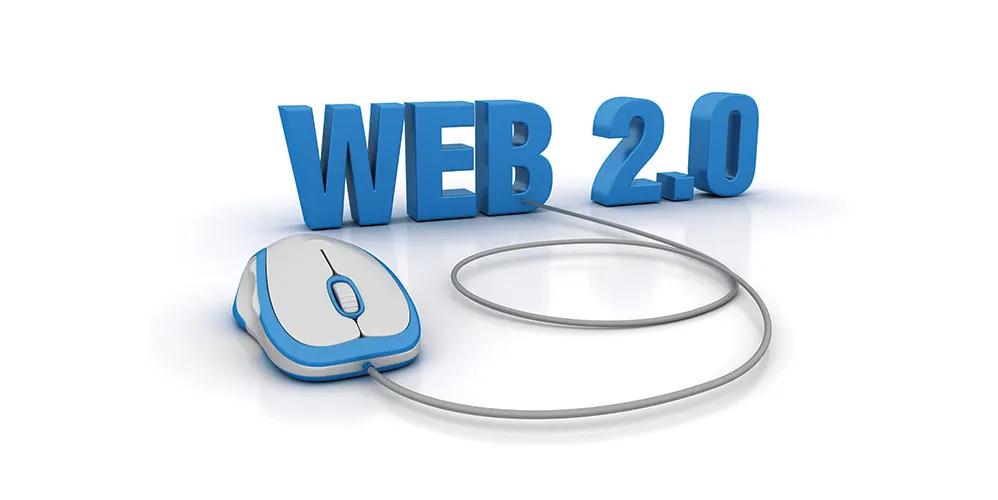
Internet of Value: Internet 2.0
Internet in its current phase, has revolutionised almost all businesses across geographies. However, the current phase, ‘Internet of Information’ focuses solely on information exchange in the form of documents, images and videos.
Although information moves around the world instantly, a single payment from one country to another is still slow and expensive. In the US, a typical international payment takes 3-5 days to settle, has an error rate of at least 5% and an average cost of $42. Worldwide, there are $180 trillion worth of cross-border payments made every year, with a combined cost of more than $1.7 trillion a year.
With the emergence of blockchain, a new phase of internet called ‘Internet of Value’ has emerged. Internet of Value is underpinned by blockchain, which is the evolutionary technology that supports digital currency. With Internet of Value, a transaction such as a foreign currency payment can happen instantly, just as how people have been sharing information online for decades. Internet of Value can also enable the exchange of any asset that is of value, including stocks, frequent flyer points, securities, intellectual property, music, scientific discoveries etc.
Multiple startups have started working on this front. Fusion is an innovative blockchain solution created to bridge the interoperability gap between different blockchains through cross-chain transactions. It also has the potential to create off-chain transactions as the inevitability of a value-driven economy becomes more pronounced.
Similarly, Wanchain offers a unique solution for overcoming the limitations on cross-chain transactions through mass-market adoption of blockchain technology. It is developing a new distributed financial infrastructure that will connect the world’s digital assets. In order to facilitate the digitization of assets, Wanchain has built an internal private blockchain through which users can build smart contracts for a practical transfer of value.
Currently, there are various blockchain-based platforms which are not compatible with each other. Hence, assets on these platforms can’t be freely exchanged. For the internet of value to become a reality, uniform industry standards must be adopted in order to homogenize the world’s different financial systems.
We believe that this process of standardization can have a transformative impact on businesses in today’s world. This impact can be as instrumental as globalization efforts in 1950s or standardization of web protocols in the 1980s.

The Ship Robots
The astounding progression of robotic technologies is playing a key role in the future of all industries. According to International Federation of Robotics (IFR), from 2020 to 2022 almost 2 million new units of industrial robots are expected to be installed in factories around the world. Like many different industries throughout the world, robots are impacting the maritime industry as well.
Take for example, SeaRobotics which has developed a Hull cleaning robot that helps save fuel and improves the efficiency of a ship. Their Hull BUG is a small autonomous vehicle which attaches itself to the underside of ships, using a negative pressure device that creates a vortex between the BUG and the hull. Sensors provide obstacle avoidance, path cleaning and navigational capabilities. A fluorometer lets the robot detect biofilm and then it uses rotary brushes or water-jets to scrub the fouling film off.
In another collaboration, the U.S. Maritime Administration (MARAD), has partnered with SEA-KIT to create robotic oil-cleanup vessels
Another solution by SeaDrone, can perform underwater Inspections in lieu of Dry Docking (UWILD). The solution is designed in a way that provides an end-to-end hull inspection solution, inspecting a vessel in 1 hour and creating a certified report that can be quickly shared with the stakeholders.
An alternative use case for robots in the maritime industry is strengthening of anti-piracy measures. ReconRobotics has developed a small, dumbbell-shaped robot that can infiltrate the main deck of a boat for stealth inspections. Magnetic wheels allow it to crawl up the side of a ship onto the deck and manoeuvre around. Cameras enable the operators to see what’s happening in real-time, even during the night, with the help of infrared sensors. The company has recently been awarded a contract by U.S. Navy to develop the Recon Scout XT micro-robot for them.
Promare, a U.K. ocean-research nonprofit, in partnership with IBM will unveil their new, fully autonomous ship - Mayflower on Sept. 16th, across the Atlantic Ocean. This autonomous ship will follow the same route on which the original Mayflower travelled 400 years ago.
The Mayflower Autonomous Ship (MAS) is chiefly propelled by solar power, with a diesel generator on board as backup. IBM will power an onboard “AI Captain” with the ship leveraging edge computing for its AI and navigational smarts. All the data processing must be available on the ship because a vessel in the middle of the ocean can’t rely on satellites or cloud connectivity.
As COVID-19 shifts global structures and accelerates innovation, we can easily visualise how robotic technology could help ships continue operating through future pandemics.
Credits : Akhil Handa

Negotiating with AI
Negotiation is a fundamental business skill—one that is inextricably linked with human emotion and psychology as much as economic calculus. Many companies negotiate countless contracts a year, ranging from facilities rentals, technology licenses, sales, employment or strategic partnerships. One of the biggest challenges, companies face in negotiating contracts is that they span such a wide variety of topics. Even the best-trained negotiators may struggle when parsing through a contract that is outside of their purview.
Artificial intelligence (AI) is capable of performing many tasks that enhance human labour and thinking — so it only stands to reason that it can provide an advantage in the negotiation process as well. There are several levels on which this is happening.
As salespeople or customer service reps interact with customers electronically, they may be able to take advantage of real-time AI recommendations to help guide the engagement or transaction. Rather than monitor singular conversations and interject recommendations on a case-by-case basis, the AI-based negotiation system digests lots of conversational data across lots of sales reps to try to understand where there are coaching opportunities, new training opportunities, value prop improvement opportunities, and product improvement opportunities.
AI can also be applied against transaction or customer relationship management (CRM) data, to sift through responses and engagements to determine where and how companies may be missing opportunities. Also, there are chatbots that can be trained to bargain with customers.
Estonian startup Pactum, which provides an AI-based commercial negotiation tool, was engaged by Walmart to automate negotiations with part of its global supplier network. Pactum's AI-based negotiation tool starts the process by interviewing the customer, recording all the required information surrounding the negotiation, and determining the value for each possible tradeoff in the contract for the customer. Pactum's team then builds the negotiation flows.
Project Debater is the first AI system that can debate humans on complex topics. Project Debater digests massive texts, constructs a well-structured speech on a given topic, delivers it with clarity and purpose, and rebuts its opponent. It can analyze a proposition and automatically highlight the best arguments for and against it, factoring in both logical and emotional impact. Eventually IBM predicts, Project Debater will help people reason by providing compelling, evidence-based arguments and limiting the influence of emotion, bias, or ambiguity.
Perhaps one day, robot lawyers will go forth to negotiate on our behalf. But, in the meantime, A.I. can be used today to improve humans’ negotiation tactics.
Credits : Akhil Handa
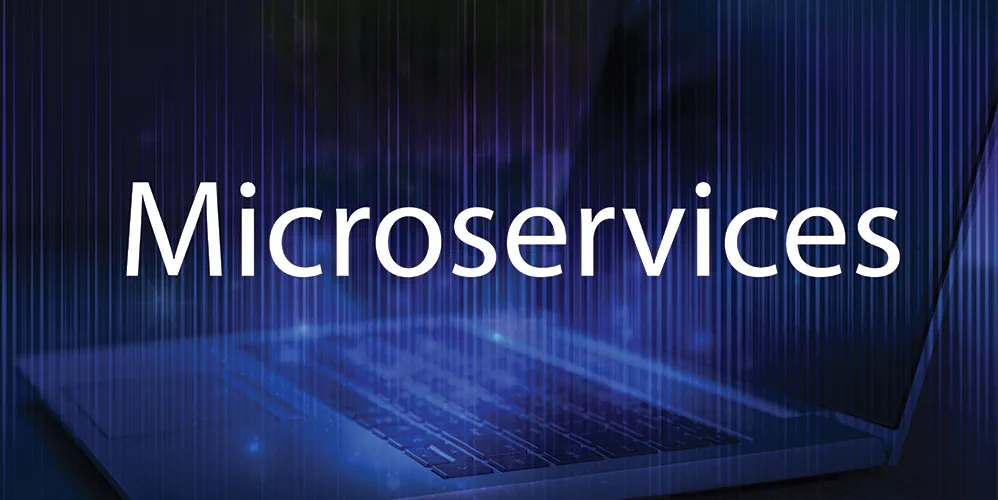
Micro-services
In the current dynamic universe, companies are finding ad-hoc approach of running continuous upgrades to large monolithic platforms increasingly tedious and inefficient. Progressive organizations can no longer count on the rigid systems that require weeks of rework to support a new business process. Enter Micro-services! It is a way of breaking large software projects into loosely coupled modules, which communicate with each other through simple APIs.
In recent years, adoption of micro-services architecture is becoming a proven success strategy in the software development industry. According to the report by Red Hat, organizations are using micro-services to re-architect their existing applications; as much as the technology being used for brand new applications.
Micro-services offer numerous benefits for application architects and development teams. These include flexibility around implementation technology, scalability and cloud readiness. These benefits align well with the growing demand of a new system that can adapt to the demands of digital business in highly competitive ecosystems. For instance, early adopters like Airbnb, Disney, Dropbox, GE, Goldman Sachs and Twitter have seen development lead times cut by as much as 75 percent, thanks to the adoption of micro-services.
This trend is increasingly being adopted by Bigtechs as well. For example, Microsoft has opened up its Service Fabric platform which is a distributed systems platform to package, deploy and manage scalable and reliable micro-services. Similarly, IBM, Google and Lyft have teamed up to form Istio, an open technology that provides a way for developers to connect, manage and secure networks of different micro-services, regardless of platform, source or vendor. Apart from this, California based Nginx which supports the operation of around 450 million global websites including those of Netflix, Instagram and Pinterest, has set up shop in Australia to support companies embracing micro-services.
Recognizing the need to deliver value to customers faster, many banks are seizing the opportunity to implement micro-services architecture. By implementing such innovative architecture, Ubank created Australia's first home loan application chatbot, innovating and improving customer experience. Similarly, UK based digital bank Monzo is also using cloud and micro-services architecture to develop back end structure.
Micro-services can deliver better agility and scalability advantages than any other archetype. Several vendors are developing frameworks and platforms that simplify adoption of the micro-services architecture. However, we believe it will take some time for micro-services to evolve into complete and robust mainstream platform
Credits : Akhil Handa

AI in Entertainment
With the emergence of various innovative technologies, filmmakers are effectively saving time and money by automating their film creation process to a large extent. Filmmakers are utilizing AI in various stages of filmmaking, right from pre-production, production to the post-production stage.
Cinelytic, Los Angeles based startup, has developed AI software for filmmakers to predict the probability of a movie's success based on the casting of actors/actresses. If the filmmaker is unsure of which actor to cast for a role, he can enter their names into the program and see which actor might
Belgium based ScriptBook, has developed an AI cloud-based software Script2Screen to analyse the script and predict box office success or failure. The user can upload their screenplay on the platform which generates an AI-based assessment indicating the commercial and critical success of a project, along with insights on the storyline, target demographics, market positioning, distribution parameters etc.
Vault ML, an Israeli startup, launched an artificial intelligence platform 4CAST. It uses over 40 years of box office data, 4 lac plus movie scripts and numerous other film data to predict opening weekend box office sales. Its predictions are right 75 % of the time and thus it helps filmmakers in their business risk management.
On the other hand, 20th Century Fox has launched the AI/ML program Merlin to help review trailers before they are released. The AI program optimises the marketing and distribution efforts in order to generate wider publicity for the specific movie or web series. It predicts and recommends appealing clips and flags them as the parts of the trailer which the audience will enjoy the most.
Similarly, Microsoft has developed an AI speech translation engine Azure for dubbing Hindi movies into different languages. On this platform, Bollywood movies are dubbed with the help of AI in different languages.
Looking at the fact that there is a plethora of data available in the film ecosystem, many companies are coming up with innovative solutions where these softwares read the historical data about movie performances over the years, then cross-references it with the current information and thus helps in writing scripts, simplifying the production process, casting actors, composing music, editing movies, plan marketing and distribution and calculate the return of investment.
Credits : Akhil Handa

The pandemic & cybersecurity
There is no doubt that the COVID-19 pandemic has caused an outbreak of new and unanticipated business moments. As digital spreads its roots deeper, it also increases the risk and impact of cyberattacks. The World Economic Forum’s COVID-19 Risks Outlook reported that 50% of enterprises were concerned about increased cyberattacks due to a shift in work patterns alone.
A TCS report states that, cybercriminals are using the heightened digital footprint and traffic to track vulnerabilities, or to siphon off money. They are launching Covid-19-themed attacks in the form of phishing emails with malicious attachments that drop malware to disrupt systems or steal data and credentials.
Attackers are creating temporary websites or taking over vulnerable ones to host malicious code. They lure people to these sites and then drop malicious code on their digital devices. Fake websites have also been soliciting donations for daily wage earners through email links. Some Covid-19 patient count-status apps and links are laden with viruses and identity theft malware. Remote working tools such as videoconferencing systems have been hacked for vulnerabilities; recent examples on Zoom are alarming.
In such a scenario, the first step in the right direction for Organisations would be to advise their staff and customers to be more vigilant and cautious especially when opening links, emails or documents related to the subject COVID-19.
Next, organizations should ensure their detection and ing capabilities are functional while keeping an eye on the impact of having many remote workers. There are some interesting solutions available in the market. For eg. KnowBe4 delivers on-demand internet security awareness training to small and midsized enterprises focussing on threats like social engineering, spear-phishing and ransomware.
Cofense provides organizations with the ability to improve their employees’ resilience towards spear phishing, malware and drive-by attacks and further facilitate employee-sourced detection of such attacks.
In India, cybersecurity start-ups like Cloudsek offers real-time information to prevent and monitor cyber threats through its SaaS platform. Another start-up Cyware’s cyber fusion solutions empowers organisations to foster information sharing with their employees mitigating cybersecurity risks.
The pandemic presents an opportunity for full-blown innovation, a dramatic shift in perspective and the adoption of safe and resilient operating processes. The intensity and emphasis an organisation brings to its cybersecurity strategy will determine its long term growth.
Credits : Akhil Handa

10 FASTag Rules you must know
You must already be familiar with FASTag, the path-breaking tag that enables you to zip through toll plazas without pausing. But are you familiar with all the FASTag new rules? If you aren’t, here’s what you should know so that you don’t encounter any roadblocks on your way to getting one for your vehicles
It’s compulsory now
Well, there’s no way you can wriggle out of this one now. Under the FASTag toll plaza rules, the government has decreed that all lanes will be FASTag only. So it’s now compulsory for all vehicles to have it from 15 January 2020.
How to buy FASTag
You can buy FASTag at over 20 banks, including Bank of Baroda, and other point-of-sale outlets like toll plazas. You can even order them online through Amazon.
What are the documents you need to get FASTag?
To get a FASTag, you will need to submit documents like registration certificate (RC) of the vehicle, passport-size photograph and KYC documents. A driver’s licence will suffice for ID and address proof.
How to activate FASTag?
Once you have purchased the FASTag, you can activate it at your Bank of Baroda branch. You will need to submit your documents at this stage.
How to pay tolls using FASTag ID?
This isn’t necessarily one of the rules of FASTag; however, after you buy it, attach it to the windscreen of your car. Each time you pass a toll plaza, an electronic reader reads the tag using RFID technology and charges you the toll. This amount is automatically deducted from your account or your wallet.
What are the charges that I have to pay for FASTag?
You have to pay a one-time activation fee of Rs 100, as well as a security deposit. The security deposit will depend on the vehicle and ranges from Rs 200 to Rs 400.
Can I use one FASTag for multiple vehicles?
No, this is not possible. FASTag is meant for one vehicle only.
How to recharge FASTag?
If you have chosen the wallet option instead of direct debit from your account, you need to recharge it from time to time. It’s a relatively simple process. You can log in to your account using your ID and password and use Debit or Credit Card or Internet Banking to top up your account. You can also use other methods like UPI.
Do I get a discount on tolls if I live near a toll plaza?
You can get a discount on tolls paid through your FASTag if you live within 10 km of a toll plaza. You will have to submit proof of residence to avail of this benefit.
What happens if I don’t have a FASTag?
Well, you’ll have to pay double the toll fee, which you have to pay at a hybrid lane that accepts payments over the counter.
So now that you know all FASTag rules don’t hesitate any more get a FASTag account today at Bank of Baroda!
Your browser does not support HTML5 video.

Know how to get FASTag for your vehicle
When driving on a toll road is that you have to stop from time to time to pay the toll. Sometimes the lines are long, and you have to rummage in your wallet/ purse to give exact amounts to the attendant, who more often than not, doesn’t have any change. But that could all be in the past with FASTag.
So what do you need to know about FASTag? Well, it’s a tag affixed to your vehicle’s windscreen, which allows you to zip past a toll booth. The amount is automatically deducted (using Radio Frequency Identification Technology, or RFID for short) from a pre-paid account that you need to fill.
Well, you may have no choice to get FASTag, since the government has mandated that all vehicles will need to have these tags. What’s more, the over 400 toll plazas over the country will no longer accept payments over the counter. So how to get FASTag for my car is what every vehicle owner needs to know right now.
How to get FASTag for cars
Where to buy: You canvisit any of the points of sale (POS) locations like toll plazas or banks like Bank of Baroda.
What documents do I need: You will need the following documents to get FASTag:
Registration certificate (RC) of the vehicle
Your passport-size photograph
KYC documents
What KYC documents do I need: If you are an individual vehicle owner, a valid driving licence should suffice for address and ID proof. You can also use the Aadhaar card, PAN card, voter ID card, and so on.
What charges you need to pay: You have to pay a one-time issuance fee of Rs 100 for the Baroda FASTag, and a refundable security deposit, which depends on vehicle type.
How to access FASTag account: Whenyoupurchase a FASTag card, you will get a username and password for the web portal, which you can use to recharge, make complaints, get details of transactions and so on.
What is the process for toll payment? You have to deposit a certain amount in your FASTag account. Each time you go through a toll point, the amount gets automatically deducted from the amount.
How will I know how much has been deducted? You will get an SMS on your registered mobile phone number each time the FASTag has been used to cross a toll plaza. So you can track every transaction you make.
How to recharge the FASTag account: Recharging the account is a simple process. You can do it online through Debit or Credit Cards, through Internet Banking or other methods like UPI. You can also do it by visiting any of the POS locations.
What is the minimum amount for recharge or top-up: The minimum amount is Rs 100. However, you may want to put more so that you have adequate balance in your account to ensure smooth driving.
What if I don’t have enough balance in my FASTag account? If you don’t have enough balance in your account and pass through a poll plaza, you will be blacklisted. That is, you will not be allowed to pass another time until you pay up the amount.
How to affix FASTag on the car: You will need to affix FASTag on the front windshield. However, your bank will give you instructions on how it’s done.
Can I use FASTag for more than one vehicle: No, you cannot do that. The FASTag is for one specific vehicle only. You will need different FASTags for different cars.
What if I’m charged wrongly for any transaction? If you are charged incorrectly for any transaction, you can complain online using your User ID and password. You can call customer care on 18001034568 at any time of the day or night.
What is the validity period of the FASTag card? The FASTag is valid for five years.
Who is implementing FASTag? FASTag is being implemented by the Indian Highways Management Company Limited (IHMCL) a company incorporated by National Highways Authority of India and National Payment Corporation of India (NPCI).
Your browser does not support HTML5 video.

7 Safe Online Banking Tips You Must Know
Indian banks are gradually edging toward having most of their processes online. From sending money to paying bills and even investing, stepping away from traditional methods has become necessary. Though almost half of India’s population have accepted the change to online and mobile banking, many are still hesitant. The main concern is internet safety, which is valid; however, it shouldn’t hold anyone back from transacting. Here are safe online banking tips you can follow to enjoy a seamless and convenient banking experience:
It All Begins with Your Passwords
The cardinal rule for transacting online or via your smartphone is, you must have a strong password and change it regularly. This is one of the most critical and necessary safe internet banking tips. Use random numbers, symbols and letters that only you will remember. Most banks will recommend a combination of all three and some will even prompt if your password isn’t strong enough. Using upper- and lower-case letters help too. Stay away from familiar things like birthdays, names, house numbers etc. Finally, do not share your passwords with anyone, no matter what. Your passwords are unique and meant only for you.
Do not save passwords / credentials on browser and/or any apps for login.
Keep a Close Watch on Your Accounts:
Monitor your accounts’ activities frequently, especially if you transact a lot. It is one of the few tips for safe internet banking of which we become careless. You have to check your bank balances and monthly statements for any debits that appear suspicious. Reach out to your bank in case you find such or similar transactions.
Use a Secure Internet Connection
To prevent anyone from misusing your private information, one of the safe online banking tips is to use a secure, internet connection. Make sure that the wi-fi is password-protected and not free; if you’re travelling, connect with your smartphone’s hotspot. You can even choose a private browser to access your bank’s netbanking platform.
Get Notified
One of the safe internet banking tips is to turn on your bank’s notifications from your mobile phone. You can also opt for receiving SMS alerts. Many banks allow you to customise notifications and alerts, e.g. you can choose specific triggers like in case your account balance goes below or above a particular limit.
Sign-Out, Every Time
Once your netbanking or mobile banking session is over, remember to sign out. This is one of the tips for safe internet banking that few are aware. Uncheck the ‘Keep me signed in’ box and log out. In fact, as an added precaution, clear your browser history and cache after you log off.
Sift the Real From Fake
Phishing and calling scams have increased over the last few years. Among the safe online banking tips, you may already know of this one. Your account information, passwords, card CVV numbers, OTPs etc. are confidential. Never entertain or answer an e-mail or call that requests for any or all of these details, unless you have initiated the transaction.
Do not click on the any link provided in the email / SMS message etc. Always type the bank website URL in the address link of browser to access your account.

How to Buy a Mobile Phone on EMI Using a Debit Card
Did you know that it is possible to buy a mobile phone on EMI? Yes. It’s possible. All you need is a pre-approved customer to avail ‘On The Fly Debit Card EMI’ by Bank of Baroda, and the smartphone of your choice can be yours.
Buying a phone can be a costly affair these days. Some smartphones are expensive and we often have to end up saving to make the purchase or delay our purchase until we have sufficient funds. But now, with EMI offers on debit card, buying electronic goods and gadgets is easier than ever.
So, what are you waiting for? Go ahead and buy the smartphone on EMI using your Bank of Baroda debit card.
How does this process work?
Buying a smartphone on EMI using a debit card is simple and hassle-free process. Here’s how you can go about it
Debit Card EMI is live on 2 lakh+ POS devices of Pine Labs on reputed merchant outlet to buy the smartphone of your choice.
Choose your smartphone and proceed to make the payment using Bank Of Baroda debit card.
Select the EMI tenure between 3 months to 18 months.
Proceed to complete the payment.
The bank will process the conversion of your payment into regular EMIs
Your transaction is complete.
Features & Advantages
Buying your dream smartphone using Debit Card EMI is now easy, convenient and comes with a host of features. Check the list below to know more
Easy, accessible and convenient to use
Zero processing fees
No paperwork
Transactions up to Rs. 50,000 can be converted into easy EMIs
Users have access to over 100 brands, across 2 Lakh merchant outlets
Cashback Upto 16% is available on Brand EMI transactions
Rate of interest applicable is 16% p.a.
EMI by debit cards is an easy, convenient and affordable solution for buying high-value products, especially when you’re on a budget.
As more people make use of this facility to pay for smartphones and other electronic gadgets, EMI on debit card is rapidly evolving for affordability solution.

Benefits of Life Insurance
Life insurance is a must in today’s world. Modern living is an expensive business, and people have to bear the burden of huge costs like children’s education, EMIs on home loans, healthcare and so on. So it is important for every earning member to have a life insurance policy to protect the financial interests of his or her family. There are many benefits of life insurance policy, which we will look at in this article.
Features of life insurance
Let’s look at the features and advantages of life insurance policy:
Protection: The first and foremost objective of a life insurance policy is to ensure the financial protection of your family, and this could include dependent parents, spouse, children or siblings. The demise of the sole earning member could put dependents to considerable hardship, especially since cost of living is very high these days. Life insurance gives you the assurance that your family members will be looked after in the event of your untimely demise.
Contract: Life insurance is basically a contract between the insurers and the individual who takes out the policy. You pay premiums every quarterly/half yearly/yearly to the company. In return, the insurer will give a lump sum to your family in the event of your demise.
Premiums: Premiums are paid quarterly / half yearly which you need to pay to get life insurance. The amount will vary from person to person, depending on the tenure of the policy, age of the policyholder, health and type of policy.
Affordable: Life insurance is an affordable way of ensuring the financial well-being of your family. Premiums on policies, particularly term insurance, are quite low and worth your while for the protection they offer.
Easy to buy: Buying insurance from company is quite easy. Insurance companies have specified persons, who will visit you at your home or office and help you with options and paperwork. You can also do it online at your convenience.
Tax benefits: Another one of the benefits of life insurance policy is that you can deduct the premiums you have paid from your taxable income. Under Section 80C of the Income Tax Act.
Savings: There are some life insurance products that combine savings and insurance. This can be a good way of saving for the future and protecting your family at the same time
Types of life insurance
Now that we’ve seen the essential features of life insurance policy, let’s look at the types:
Term insurance
This is the most basic, and most popular, of life insurance policies. You purchase a policy for a certain period for which you pay premiums. For example, if a policyholder wants a policy till the age of 60, he or she can take one. And if the policyholder passes away before 60, the nominee is paid the death benefits.
Unit-linked Insurance Plan
A Unit-Linked Insurance Plan (ULIP) combines investment with insurance. At the end of the policy, the policyholder gets a certain sum. This is unlike a term plan where the payout is made only on the death of the policyholder. Part of the premium is paid for life insurance, while the remainder is invested in either stocks or bonds, depending on the investor’s risk appetite and investment goals. The investments yield returns which are then given to the policyholder after the end of the policy period

What is Life Insurance ?
Life can be pretty uncertain. The death of a loved one is always painful, but it can have pretty serious financial consequences if it happens to be an earning member. Life insurance was devised to protect a family in the event of the death of an earning member. So let’s look at what is life insurance in some detail.
Life insurance definition is that it’s a contract between an individual and an insurer. The individual takes out an insurance policy and pays monthly or annual premiums. If the insured person meets with an untimely death, a lump sum is paid to his family, whether it’s parents, spouse or children.
Now that we have understood life insurance meaning, let’s look at the various types of products available to you.
Term Insurance
When you are finding out what is life insurance policy, you should also understand all the different options. Among them is term insurance. This plan is for a certain fixed period of time. For instance, many people choose to have a life insurance policy till the time they are earning, so that their families do not have to suffer loss of income. The lump sum or death benefit paid will ensure that the families will be able to continue the lifestyle they are accustomed to. Some policies cover permanent disability as well. You can take out a term insurance that lasts for as long as you wish – till you are 60 years old or even a hundred! Of course, you will have to pay higher premiums if you take longer policies.
Whole life insurance
Here’s another term you need to learn while learning what is life insurance policy, and that is whole life insurance. This will provide you with lifetime coverage. Of course, you will have to pay premiums for your entire life for this kind of policy.
Endowment policy
An endowment policy is one that combines insurance with investment. The policy is for a fixed period and the policy holder gets a certain amount at the end of it, if he or she survives that period. If the policyholder does not survive, the nominee will get the sum insured.
Unit Linked Insurance Plan
The Unit Linked Insurance Plan or ULIP is a type of endowment policy which combines life insurance with investment. A portion of the premium goes to cover life insurance, while the remainder is invested in either equity or fixed income instruments. The policyholder has the option of selecting the mix of instruments depending on his or her risk appetite and investment goals.
Benefits of life insurance
Now that we have seen what the meaning of life insurance is, let’s look at the benefits.
Protection for family
Obviously, the biggest advantage of life insurance is that it provides financial protection for your family in the event of an untimely death. Ideally, you should take a life cover that is 10 times your annual income to protect your family’s interests.
Tax benefits
There’s another reason to invest in life insurance, and that is tax benefits. Premiums paid are eligible for a reduction in taxable income under Section 80C of the Income Tax Act. However, the amount is limited to 10 percent of the sum assured.
Varied choices
There are many choices available, from plain term insurance to ULIPs that combine insurance and investment.
Savings
Policies like endowment or ULIPS will help you save for long periods.

6 Effective Ways To Improve Your CIBIL Scores
One of the most important prerequisites for taking on any kind of loan today, is your CIBIL score. Whether it is a home loan, a vehicle loan, a personal loan or any other kind of loan
Applicant, banks always check one’s CIBIL scores. Also known as credit score; this is a document containing information about the borrower’s credit behaviour. Banks use potential borrowers’ credit scores to check whether or not they have been repaying their loans on time. Through the CIBIL scores they can check if a borrower has defaulted on any loan payments, missed paying any EMI and even get an idea regarding one’s financial conditions. If your credit scores are below 750 most lenders reject loan applications. So it is imperative to have good credit scores. Find out how to improve CIBIL score here.
Repay your debts on time
Whether it is your credit card bills or your loan EMIs, it is imperative that you repay your debts well in time. Missing out on repaying any outstanding debt can impact your credit rating. You especially need to be careful when it comes to paying loan EMIs because failure to do so, not only attracts penalties, but also affects your credit scores negatively. One easy way to pay your debt on time is to set reminders so that you don’t forget the loan repayment dates and never miss out on making timely payments. You can also set up automatic payments so that the loan amount is directly debited from your savings account every month.
Don’t take on multiple loans
A great way to improve CIBIL score is to ensure you do not take on multiple loans at the same time. Ensure that you’ve paid off your current loan before taking on another one. This prevents your credit scores from reducing. When you take on several loans at the same time, it shows your lender that you may not have sufficient funds to repay all of them. If you have only one loan to repay, the lender can feel confident in giving you the loan and your credit scores also remain unaffected.
Try to maintain a healthy mix of credit
Most people have to take on a variety of loans to fund the various life necessities. But when you take the loan, it is better to ensure that there is a healthy mix of secured and unsecured loans. While the home loan and car loan count for a secured loan, your credit card debt or personal loans are regarded as unsecured loans. It is necessary to maintain a balance since taking any loan in access can affect your credit rating.
Don’t utilize your entire credit limit
Another important point that pops up when we talk about how to improve credit score is credit limit utilization. One of the quickest and the easiest ways to improve credit scores is not utilizing your credit card to the extreme limit provided by lenders. Try to spend only 30% of the credit limit provided on your card per month. For instance, if you have a credit limit of ₹200,000 per month, you should try to restrict your monthly credit spends to only ₹60,000. When you exceed the 30% limit, your potential lender may get the idea that your spending habits are impulsive, which can also reduce your credit scores.
Increase the credit limit
If you demonstrate good credit repayment behaviour, your bank can reach out to you to increase the credit limit on your credit card. It is better not to turn down this increased credit limit. Increasing the credit limit doesn’t necessarily mean that you are going to increase your credit card spends. The idea is to have a higher credit limit but limiting your credit utilisation, and thereby improve CIBIL score. Doing this leaves a positive impact on your credit scores.
Ensure that your credit report is error free
While you may believe that your credit report is free of errors, there may be several unknown errors that may be reducing your credit score. For instance, you may have paid off your personal loan in full, but you may see that it is still unpaid owing to administrative errors. It is therefore important to check your credit score and ensure it is error-free before you apply for a loan so that your loan request is not rejected, thus further impacting your credit scores.

How to Calculate Car Loan EMI: A Step-by-Step Guide
Every individual’s journey to buy a car is unique. It begins with where the individual is in his/her career, and the choice of vehicle they want, which is mainly based on why they want the car. During the process, they also focus on how they can get a car loan that suits their requirement.
When you, as an individual are considering a car loan, you are likely to do your due homework in checking for affordability and the loan tenure among other factors. While it is essential to go for a car loan from a lender who has banking expertise in the sector of car or auto loans, so you get the best rate and comfortable repayment options, you can also use the EMI calculator like the Bank of Baroda’s Car Loan EMI calculator that will help you make a well-informed choice in picking your car loan.
In using a car loan EMI calculator, you need to key in three basic variables- the loan amount you are likely to need, the tenure or the repayment period that suits your finances and the rate of interest. Now, the rate of interest is what you get from the bank, while the other two are the ones you can play around with on the calculator. Here is why using a car loan EMI calculator works.
If EMI is more:
You can pick a longer loan term or
You can make the loan amount smaller
If you find the EMI is coming out to be lower, then you can plan for a larger loan value or a shorter loan term.
You can also use the PMT formula on Microsoft Excel to calculate the EMI (Equated Monthly Instalments), where PMT is your EMI, Rate is the rate of interest, Nper or number of periods is the total number of payments for the loan and Pv is the loan value or the principal. The formula is PMT (Rate, Nper, Pv).
You can keep trying the formula for various combinations and then choose the one with the lowest EMI, though this is a roundabout approach prone to human error.
Bank of Baroda offers car loans and has a wide range of benefits, irrespective of your loan amount or type of vehicle.
With a BoB car loans, you can ride home your dream car in a short period of time. Our loans are designed for those who may be unable to purchase a private vehicle due to paucity of funds.
You can benefit from quick processing, minimal documentation and speedy fund disbursal. Additionally, our loan borrowers are not required to pay foreclosure charges or pre-payment penalty, nor do they need to pay advance EMIs.
With higher limits on the car loan amount, you can avail loans for new cars based on your eligibility. So, if you have always had your eye on a luxury car, our loan can take you one step closer to your dream.
Also, say goodbye to down payment worries, as you can get up to 90% financing on the car’s on-road price with Bank of Baroda’s auto loan.
Bank of Baroda offer attractive interest rates on loans to all our customers based on their credit scores. Additionally, existing home loan borrowers with a good credit history enjoy a concession on their car loan interest rate.

How Mortgage Loans Work?
Home loan or Mortgage loans is without a doubt the longest loan a person takes in his lifetime. Most other loans like personal, education and automobile loans are of shorter duration but a home loan can last for as high as 30 years. It is thus very important to understand all aspects of this loan.
Whenever one buys a home, the lender will use the home as collateral against a possible default in the future. The term Mortgage means passing the Charge on the property to the lender as a security.
Home is one of the few assets whose price does not fluctuate as much as of other financial assets. In fact, in a growing economy, the price of the home moves higher gradually every year. Hence, in this case, banks are relatively assured of recovering their money in case of a default. In most cases, banks do not ask for any other security when they disburse Mortgage loans.
There are various components of a Mortgage loan. First, the maximum amount of loan that a lender disburses is restricted by regulators. Some lenders consider the taxes, statutory charges, and insurance under the total value on which loan can be available. A borrower will thus have to clarify with the lender on the total amount that will be considered for calculating the loan value.
The amount that the bank will disburse will be the amount on which it will be charging interest. The consumer will have to repay the loan amount plus the interest that is charged over the years.
The interest that is charged on the loan is floating. This interest is normally calculated on a reducing balance basis. In the initial years, the lender would take more as interest and less of capital from the equated monthly installments (EMI) as the loan amount outstanding is almost full in the initial years of loan.
Consider a person has taken a loan of Rs 50 lakh from a bank for a period of 25 years. His EMI would work out to be Rs 41,000. When this Rs 41,000 is deducted from the borrower on a monthly basis, in the initial years less than 10 percent of the amount is deducted from the –Principal of Rs 50 lakh. A major chunk of the interest that a borrower pays on his loan is deducted in the first half of the tenure.
It is thus advisable to repay part of the mortgage loan or foreclose it in the first half of the loan tenure if one can afford the same.
Every month the interest is charged on the reduced Principal that is left over from the previous month. In banking terms, the remaining Principal is called the outstanding loan amount.
In India, there are no charges applicable for foreclosing a home loan. In other loans pre-closing a loan carries a charge.
At the time of availing the loan lenders generally give an amortization sheet which clearly mentions the interest and principal that will be deducted every month for the entire tenure of the loan.

Pradhan Mantri Awas Yojana- Credit Linked subsidy scheme (PMAY-CLSS) (Urban)
Pradhan Mantri Awas Yojana – Urban (PMAY-U), a flagship Mission of Government of India being implemented by Ministry of Housing and Urban Affairs (MoHUA), was launched on 25th June 2015.

How to buy a house in India? All you need to know.
Buying a house is a dream for a many people in India. However, the process to buy a house is not as simple as looking it up and buying it instantly. There are a lot of factors to consider and a fair bit of due diligence is required on the part of the buyer before the house is bought.
The process of buying a house can be condensed into these steps:
Figure out how much you can afford:
The first step on how to buy a house in India is to decide how much you can afford. Housing loans are extremely popular and easily available which means you can also factor in a loan value while deciding how much you can pay for buying a house. It is also important to take a look at your household budget while deciding this. You need to have enough funds left over for making investments and meeting household expenses since banks auto debit the EMI from your savings account.
Decide the location:
The price of the flat depends a lot on its location and the proximity to major roadways or an airport. Upcoming suburbs outside a major metropolitan city will be cheaper than buying a flat within city limits. However, you must factor in the time taken to commute from your place of work to your residence.
Check the resale values:
Checking the resale value of the flat is extremely important. This depends on a few things such as the builder’s reputation, the locality etc. It is easy to find resale values on different property portals. This especially helps in case you want to move in a few years or are investing for the purpose of investment.
Check your loan eligibility:
Real estate is extremely expensive in India and not many buyers can afford to buy it outright with their savings. This is where a home loan comes in. Most lenders have a home loan eligibility calculator on their website where you can check for your loan eligibility. The loan eligibility does not translate into the final loan amount since that depends on the actual property itself. However, these calculators are a good indicator of how much loan you can expect to get if you apply for it.
Registration and stamp duty:
Registration and stamp duty are costs that are paid over and above the purchase price of the house. These costs differ from state to state in India and each state has a formula for calculating them. It is important to factor these costs since this adds to the expense.
Agent:
You must decide whether to buy a house through an agent or directly. Agents prove to be helpful while finding buyers and sellers for flats, especially resale flats. However, they also charge a commission from both parties for the sale.
Property type:
You can either buy a flat in a new construction or buy a resale property. New constructions also have a risk of permissions attached to them. However, new constructions also come with more amenities.
Rental value of property:
If you’re looking to rent out the property, you need to calculate the amount charged as rentals from similar flats in the area. This will help you estimate your monthly earnings. It is better to buy a flat in an area that is conveniently located since such places will always have a demand for rentals.
Once you factor in all these points, you can then add up the total value of the house. How much money to buy a house in India depends majorly on the location of the flat and the city or town, but after considering these points, you can get a fair idea.

How to Get a Car Loan?
Now that you have zeroed in on your dream car after test driving a few of them, you probably cannot wait any longer to buy it. Now the next obvious question is, what are your financial options for buying the dream car? For many of us, a car loans seems like a comfortable financial option to consider, given that it leaves cash liquidity intact and you can get a car loans in easy EMI options at affordable interest rates, so it does not pinch your pocket much. Here’s a guide on what to do next!
First things first. Check if you are eligible for a car loans. Once you know you meet the eligibility criteria, it speeds up the process of getting a loan approved.
Am I eligible for a car loan?
Each bank has its own criteria for car loans. It could be minimum annual income or minimum years of employment among others.
For example, Bank of Baroda provides up to 90% financing for the said category of borrowers-
Salaried Employees
Businessmen, professionals and farmers
Directors of Private and Public Limited companies, Proprietor of Proprietorship Firms, partners of Partnership Firms.
Corporates (Partnership, private Limited, Public limited and Trust)
NRIs/PIOs
What are the documents required for a car loan?
Though documents required may vary from bank to bank, but most commonly, banks ask for the documents mentioned below along with the loan application form-
For Proof of identity, one of these documents van be produced:
Passport
Driving license
Latest three months old credit card statement.
Salary slip
Income tax assessment order
Utilities like electricity bill, landline bills-not older than 6 months.
Bank statement
Letter from employer/public authority (should be validated by bank)
iVoter ID card
Retired government employees can produce pension payment orders
Registered leave and license agreement or sale deed or lease agreement.
Please note, every time there is a change of address or change in any other detail furnished to the bank, the applicant will need to immediately notify it to the bank along with updated document proofs.
Proof of income:
Bank statement of the last three to six months
Salary slip and form 16 (for salaried persons)
Income tax returns (for self-employed persons)
Margin
Lenders require you to pay a portion of the price of the car, also called the margin, as the lender pays the rest, which becomes your loan value. In case of Bank of Baroda, the margin is 10% on the ‘on the road’ price of the car.

How to Get Personal Loan with Low CIBIL Score
With a number of lenders proliferating across the country borrowing money is no longer difficult. The number of phone calls we get on a daily basis selling personal loans is an indication of how the lenders are now chasing people to borrow.
However, it may be easy to borrow money as far as you are able to repay it. The moment you start defaulting on the loans, trouble starts. Even a delay in payment would mean trouble for the borrower.
A delay or default in repaying a loan affects what is called a bad credit score measured in India as CIBIL score. This score is very important for a personal loans as compared to any other form of a loan.
A personal loan is an unsecured loan which means the lender is taking a higher risk based on certain financial track record of the borrower.
The CIBIL score measures your credit worth. The range of the score is usually between 300 and 900. The closer the score is to 900 the better it is for the borrower while a score closer to 300 would mean that getting money from the official route will be difficult. Lenders are generally comfortable lending money to people with a CIBIL score of over 725.
Your CIBIL score depends on various factors concerning your borrowing track record. It does not depend on your salary. How you have financially behaved after taking a loan is the main -basis of CIBIL score. Defaults and delay, - can bring your CIBIL score down. More than any other loan CIBIL score is paramount in personal loans.
So does it mean that a person with a low CIBIL score has no option of getting a loan?
This may not always be the case. However, chronic defaulters would have trouble raising money from the official channel. But occasional delays or defaults can be managed.
Here are some of the ways in which one can raise money through personal loans despite a low CIBIL score.
Improve your income stream
In order to get incremental personal loans, the lender has to be satisfied that you have the ability to repay the loan. A new source of funds or a salary increment will go a long way in convincing the lender that there is enough cash flow to support a new loan repayment. One will have to convince the lender that the new income stream is a regular one and not a one-time income. Any documentary proof like a contract with the vendor from where the borrower is getting money will help in building up the case.
Even if the lender may see merit in the story they may agree to lend on a higher interest rate than the market rate along with some additional charges.
Go in for a smaller loan
Asking for a bigger loan after having a low CIBIL score will scare away any lender. A smaller loan with an adequate income stream may convince him to risk a small amount. Taking a small loan and repaying it regularly will not only convince the lender but also help improve your CIBIL score.
Collateral loans
While personal loans may be difficult, but not impossible despite a low CIBIL score, one can go in for a Collateral loan.
Loan against shares, gold loans, - Term deposits is easier to get despite a lower CIBIL score. The lender is comfortable that they have collateral as a guarantee against any defaults. In such cases, the CIBIL score does not matter. On the other hand, a regular payment on these loans can help in improving your CIBIL score.

How to Remove Car Loan Hypothecation After Car Loan Repayment
A secured loan is a loan in which an asset is hypothecated to the lender. Since the lender finances the purchase of the asset, the original purchase papers of the asset are with the lender. When it comes to purchase of a home, the asset’s ownership shifts to the borrower once he has completely repaid the loan. In gold loans, the gold is left under lock and key with the lender. Once the loan is repaid, this gold is given back to the borrower. However, it is not the same when it comes to a car loan.
In a car loan, the car purchased is hypothecated to the lender. The lender pays the funds to purchase the car. However, a car also has to be registered with the Regional Transport Office (RTO) before it can be driven on the road. In such a case, the name of the lender appears on the registration certificate (RC) of the vehicle/ in the records of Regional Transport Office. This means you need to take a few additional steps once the car loan is repaid for car loan hypothecation removal. Once the car loan hypothecation is removed and the car’s ownership is completely in your name, then you will have a clear title and ownership to your car. This is especially important while getting insurance. In case anything happens to the car, the Insurance claim will go to the owner of the car, which in case of hypothecation, will be in favor of the lender.
This is why car loan hypothecation removal is important.
How to remove hypothecation from RC after car loan repayment/termination:
Step 1: Repayment of car loan
In the hypothecation agreement of car loan, the name of the lender appears as the owner for the car. To start the procedure for removal of the lender’s name, you need to repay the car loan completely. The loan must be paid off and a nil balance must appear in the lender’s books.
If you are planning to prepay your car loan, it is better to inquire with the lender about their prepayment charges and conditions. Sometimes lenders have prepayment charges on these loans and this can go up to 2%.
Once you’ve completely paid off the loan, you need a no dues certificate from the lender. This certificate will state that you have completely discharged the dues to the lender.
Step 2: Collection of documents from the lender
Once the loan is repaid, the lender will give you the no dues certificate. Along with this, you need to collect:
No objection certificate:
This certificate states that the lender does not have any objection with car loan hypothecation removal. One important point to remember is that you must take multiple copies of the No Objection certificate. This No Objection certificate will need to be submitted to the RTO and to the Insurance company. You will also need one copy for your own records. Usually, the no objection certificate is valid for 3 months. So, you must approach the RTO immediately after you get the no objection certificate.
Form 35
This form is a notice of termination of hypothecation. This form also has to be made in triplicate or in 3 copies. Each state usually has its own format for this form which can easily be found online or at the RTO.
Step 2: Submission of documents to the RTO
Once you have the documents from the lender, you need to visit the Regional Transport Office or the RTO with a set of documents that includes:
Original form 35 signed and stamped by the borrower and bank
Original Bank No Objection Certificate
Attested copy of PAN
Attested copy of insurance policy of car
Original Registration Certificate
Address proof
Copy of Pollution Under Control (PUC) certificate
These documents will have to be submitted to the RTO. If your address does not match the address in the registration certificate, you will need to submit Form 33 which is for change of address.
Once you submit these documents to the concerned officer at the RTO, they will get them verified. You need to pay the respective fees to get the process completed. The officer will give you a time and date on which you can collect your updated Registration Certificate (RC)
Step 3: Collect your updated Registration Certificate
The date and time for the visit will be specified when the documents are submitted. When you visit the RTO on the specified date, you will get the updated RC. If there are any mistakes in the details, you can get them corrected and collect the RC on a future date. Once you collect your updated RC, you will have completed all car loan hypothecation removal formalities.

EMI - Definition, Understanding & Why EMI is Important?
A loan is always taken for a specific purpose, be it a housing loan, an automobile loan, an education loan or a personal loan. Whenever a loan is taken it has to be returned to the lender. These repayments are done in a specific format where the amount is deducted from the borrower’s account on a particular day of every month. The amount so deducted is also pre-decided and depends on various factors. This standardised deduction in financial terms is called as Equated Monthly Instalment or EMI.
The value of the EMI depends on four main factors. These are the amount borrowed, the rate of interest to be charged on the amount borrowed and tenure for which the loan is borrowed and the type of loan fixed or floating. If the loan is a floating one then there is one more component that affects the EMI which is called ‘Rest’.
All other parameters being equal higher the principal amount borrowed higher will be the EMI. Similarly, a higher interest rate would mean higher EMI, all other things being constant. If the amount borrowed and the interest rate is constant then a higher tenure would mean lower EMI and a lower tenure would mean higher EMI.
In the case of both the fixed and floating interest rate loan, in the first EMI outgo, the interest rate component is the highest and the principal is the smallest. By the time the borrower reaches the last EMI, the interest component is the smallest and the principal is the maximum.
In case of a fixed interest loan, the EMI remains the same throughout the period of the loan. While in the case of a floating interest rate loan, the borrower has the option of reducing the EMI amount periodically as per change in the interest rate or allowing the EMI to be constant and the period to reduce.
The borrower has the option of part prepaying his loan. Whenever this happens the option available to him is to either ask the lender to reduce his EMI amount from the date of repayment or to let the EMI amount remain the same but reduce the period of the loan.
In the case of a housing loan, the interest and principal that is being paid through EMI, is summed up at the end of the financial year to calculate its impact on tax benefits that the borrower can avail of.
In case a borrower defaults on any EMI the lender will impose a penalty on the non-payment or late payment that was missed/delayed..
In the case of regular - non-payment of EMIs, lenders will be taking more severe action to recover their money and the CIBIL score of the borrower is adversely effected, resulting in adverse effect on credibility of borrower for future loans.
The good part about EMI is that the borrower knows exactly the amount that will be going out from his bank account and on which date it will be deducted. The lender also benefits knowing the cash flow that will be coming into his account every month.

Why is a CIBIL Score Important?
Started in 2000, CIBIL or the Credit Bureau is an authorized credit information company that tracks debt repayment history and provides a credit score accepted by a vast network of financial institutions as a valid benchmark to examine a potential borrower’s credit quality. Here’s why a CIBIL score is important:
Lender considers the CIBIL score before approving a loan
The information collected and maintained by the bureau is gleaned from data collected from banks and other lending institutions on a monthly basis. On the basis of this data, CIBIL issues a score. This score is shared with the lenders on request, when an applicant applies for a loan.
What is an ideal credit score?
The range is from 300 to 900. Any score higher than 750 is a decent credit score. If an applicant has a credit score higher than 750, he/she is likely to get the loan approved and may get an attractive rate of interest. A loan application may be rejected if the credit score comes out to be too low.
How to source your CIBIL report?
Apart from a CIBIL score, you can also get your CIBIL credit information report. The report details the credit quality of your auto loan, home loan, credit card, over draft facility and personal loans. It carries your personal details, employment details and account information. The procedure to source your CIBIL report is exactly the same as getting your CIBIL Score.
Components of the CIBIL report
CIBIL Score
The first part of your CIBIL report has your CIBIL score, which is a value between 300 and 900. A score closer to green that is above 750 is preferable.
Personal information
Another section contains your personal information like name, date of birth, PAN number, Passport details and gender.
Contact information
The contact Information segment will capture all your address and contact details.
Employment information
The employment section will provide details about customer’s income and occupation at the time of a previous loan sanction.
Account information
An important section of the report is the account information which details the material about the borrower’s credit cards, loans, name of the lender, type of loan (whether secured or unsecured) and all the accounts held by the borrower.
Consumer Dispute Remark
The borrower can also put in their remarks about a particular loan transaction in the Consumer Dispute Remarks for evaluators to see every time the credit report is opened for assessment. The comments are presented for a year.

Baroda Basic Savings Account
Basic Savings Account
If you want to open a bank account where you are not required to maintain a minimum balance every month, you can open a basic savings account. Introduced to encourage more financial inclusion, in other words, have more people become part of the banking system, a basic savings account offers basic features like deposit and withdrawal, a debit card and internet banking facility. But there is no minimum balance requirement. There are some other features of a basic savings account that vary slightly from bank to bank.
Benefits of a basic savings account
No charges for not maintaining minimum balance
The major benefit of a basic savings account is that unlike other savings accounts, you will not be fined for not maintaining minimum balance.
Cheque book
The deposit account holder will receive a 15 leaves cheque book while opening this account for no extra cost. The account holder will receive 30 cheque leaves free in a financial year.
ATM-cum-debit card
You will also get a Rupay Classic debit card free of cost that can be used to withdraw cash from ATMs or at points of sale when you make purchases.
Free passbook
The passbook facility is also available to you for free on opening a basic savings deposit account.
No charges for dormancy
You will not be charged for a dormant or non-operational account.
Free registration for standing instructions
Basic savings deposit account holders will get a free registration for standing instructions and execution from the same branch. They will have to pay charges for any other branch within the same bank or other bank.
Features of a basic savings account
Anyone can open it
Anyone can open a basic savings deposit account after furnishing all the documents to complete KYC (Know Your Customer) norms. But please note, that if you open a basic banking deposit account and you already have regular savings accounts with the bank, you will have to close the regular Savings accounts within 30 days of opening the basic savings deposit account. You will also have to submit a declaration to the Bank stating that you are not maintaining any BSBD account with our/ any other Bank.
Zero balance account
Basic savings account is a zero balance account where you are not penalized for not maintaining a specified account balance, like the regular savings accounts.
A Bank of Baroda basic savings deposit account has the following features-
30 cheque leaves in a year for free.
Debit cum ATM card at no cost however, annual fee will be applicable from second year onwards.
Internet banking facility
Four withdrawals allowed in a month for free (including ATM withdrawals from own/ other Bank’s network)
Account holders can provide standing instructions to the bank
Interest rate, tenure, application of interest is the same as regular savings accounts
No charges for dormant account or inoperative accounts.
Regular KYC norms will apply for basic schemes as well.

Baroda Pensioners Savings Bank Account
Pensioners can avail the Bank of Baroda Pensioners Savings Bank Account. This is an ideal retirement savings account. All pensioners, including Bank of Baroda staff pensioners may open this account. The Baroda Pensioners Savings account is especially created to provide necessary banking facilities and benefits to pensioners and is meant only for savings oriented transactions.
Key features of the Baroda Pensioners Savings Bank Account
Initial deposit:
The pension savings account can be opened with a minimum deposit of Rs. 5 only.
Free pass book and cheque book:
All account holders are provided with a free passbook and chequebook with an unlimited supply of cheque leaves. The free cheques facility is only reserved for the literate pensioners.
Debit card:
All account holders get a debit card which can be used for cash withdrawals, ATM transactions, balance enquiries etc. The debit card can also be used for making online and retail transactions.
Overdraft facility:
Pensioners may avail overdraft facility up-to a maximum of 2 months’ pension amount as per the net credit to savings account in the previous month, only if no other credit facility is availed by the pensioner.
Benefits of the Baroda Pensioners Savings Bank Account
No Minimum Balance requirement in the account.
Net banking
Customer get access to net banking facility for paying utility bills, online shopping and making other online transactions.
Outstation cheque
Customers can enjoy immediate credit of outstation cheques for up to Rs. 25,000
Nomination facility
Nomination facility is also available under this account
Cash deposit
Customers can deposit unlimited cash in their home branch and up-to ₹25,000 in outstation branches free of charge.

Baroda Premium Current Account-Privilege (BPCAP)
The Baroda Premium Current Account-Privilege is an ideal account for customers who own medium to large businesses. Account holders can avail several free services and benefits under the BPCAP account. The privilege current account is designed to meet several specific needs of customers holding the account. Immediate credit of outstation cheques and auto payroll are some of the key benefits offered with this account.
Key features of the Baroda Premium Current Account-Privilege
Free cheque books
BCAP account holders can obtain free unlimited chequebooks for their transactions.
Account statements
Account holders can get free account statements, twice a month.
Free facilities
BCAP account holders get free banker’s cheques, balance certificates, MT/TT facilities and signature verification facilities. They also get free auto payroll, internet banking facility, SMS alert and missed call facilities. Folio charges on the account are also waived off.
Fund transfer
No charges are levied for funds transferred at BOB’s Core Banking Solution branches.
Auto and reverse sweep facility
Account holders can deduct a minimum amount of ₹25,000 through the auto-sweep facility, provided their balance has crossed ₹5.25 lakh. Reverse sweep facility is also available.
Free Cash withdrawals
Free unlimited cash withdrawals at home branches however up-to ₹50,000 are permitted per day at non-home branches only for withdrawals made through self-cheques
Benefits of the Baroda Premium Current Account-Privilege
Account holders get a debit card (for Individual & Sole Proprietorship accounts only) with annual charges waived off for the first year
Outstation cheques of up-to ₹1.5 lakh are credited immediately credited for customers holding the account for a period of 6 months and above
Account holders are provided with a free credit card with annual charges for first year, waived off
Account holders receive a complimentary personal accident insurance cover with the credit card
Loan processing fees are waived off for car loans disbursed in the name of the firm or proprietor
20% discount is offered on BOB locker rental charges
Free standing instruction against account service if offered with the account
Nomination facility is offered with the account

Kids Bank Accounts - Features and Benefits
With advancements in banking technology, there are different types of savings accounts that are available to the people. One such type of savings account is a kids bank account. A Kids Bank Account is an account that can be operated by a child below 18 years. The child can thus imbibe a financial savings habit from early on.

Saving accounts features
What are the features of a savings account?
A savings account is the first step a person takes toward saving. As the name suggests it is a place where the savings are stored but it is not an investment.
The savings account is the conduit through which investments can be made. But the first step starts from taking the money out of your money box and into a bank.
Why have a savings account?
Rather than keeping money at home in your money box, keeping it in a bank is suitable as it offers interest on the deposit made. This is the main reason why you have a savings account. The interest rate is not high, but it helps in partially softening the blow of inflation. In other words, the money one deposits in the bank are working to give you some return. Not only is the money in the savings account safe and earns interest it has other advantages also.
Features of a savings account
The following are the features of savings account
First, the money can be withdrawn at any point in time. With ‘Any-Time-Money’ (ATM) counters available across the country, a saving bank account holder who has debit/ ATM card facility can withdraw money from anywhere in the country. This adds a safety element where the depositor need not move around carrying cash in his pocket.
With e-payment on the increase, the saving bank account helps in regular monthly payments like that of electricity, society maintenance, telephone and mobile bill payment, insurance premium payment among others.
Salaries can be directly credited to the savings bank account. This helps both the employee as well as the employer. For the employer with a single click of the button, money is transferred to all the employees. For the employee, they are saved the travel to the bank as well as can have the money credited in their account at a faster pace.
Post-retirement the same savings bank account helps in getting a regular pension.
Loans that a person takes are generally linked to the savings bank account which is the primary account where his salary is deposited. Direct electronic instructions can be given from the savings bank account or Post Dated Cheques (PDCs) from this account. Savings bank account often eases the process of availing loans.
Cheque bounce history of the customer’s savings account tells his creditworthiness. A customer with no defaults on loans on his name has a much higher credit rating and finds it easier to get loans.
Having a savings bank account encourages the habit of saving rather than keeping cash in hand. This discourages impulsive shopping.
Savings account helps in accessing other financial instruments like online trading, mutual funds investments through direct transfers among others.
A standing instruction can be given to the bank where if the amount in the Savings Account crosses a particular threshold it will be transferred to any other higher yielding instrument.
It helps in making travel plans easier by booking tickets as well as hotel bookings through online mode.
The passbook or electronic statement of the savings bank helps in keeping an automatic tab of where the money came from and where it was spent.
At the end of the year, it helps in filling your tax returns with the income tax authorities. Since all the transactions are recorded in the bank statement, a salaried employee has the little hassle to file his returns.

Types of Bank Accounts & Deposits in India
What are the types of accounts and deposits available?
It’s important to know where you can save your money. As the rule goes, high-risk on your capital can result in a higher return while investing money in low-risk instruments would result in lower interest.
Banks, including Bank of Baroda offer a host of instruments that are what can be termed as low on risk and medium to low on return.
We shall now look at the various instruments that are available to a customer to deposit their money with the bank and earn returns.
Types of Deposits
A primary function for a bank is to mobilise public money. They do so in the form of deposits. There are two types of deposit accounts that you can open in a bank. They are time deposits and demand deposits.
Time Deposits
A Time Deposit also known as a Term Deposit is a deposit which has a fixed tenure and earns interest for the customer. The tenure varies for each instrument and may even change from bank to bank.
The most widely used name for time deposits is Fixed Deposits. The common feature among all Time deposits is that they cannot be withdrawn prematurely. One should thus plan their deposits according to their requirement for money going forward.
The more the money resides in the bank of a term deposit the more interest it earns. Banks pay higher interest in longer-term deposits than on shorter ones.
Fixed Deposits earn higher interest than a Savings Account because the former gives Banks leg room to lend to people who need the money for roughly the same time limit. For example, a one year fixed deposit in a bank can allow the bank to lend money to a person who requires a personal loan for one year period.
Commercial banks have over the years made Fixed Deposits more attractive by offering various frills like overdraft facility, zero cost credit cards, nomination facility, safe deposit lockers, internet banking among others.
Recurring Deposits
In this case, a fixed amount, as decided by the depositor, is deposited at regular intervals till the end of the tenure. The accumulated interest and the principal is given back to the depositor at the end of the tenure. The tenure of a recurring deposit can be anything from six months to 120 months.
Demand Deposits
As the name suggested, you can withdraw this deposit on demand. Such funds are held in accounts where it is easier to withdraw money either by going to the bank or an ATM. Savings and Current accounts are the two types of commonly used Demand Deposits account,
In such type of deposits, the risk is low but so is the return. However, there is one more factor that this type of deposit has and that is liquidity since money can be withdrawn at a moment’s notice.
The reason for the existence of such accounts is to provide the customer convenience of meeting his daily requirement of funds. It does not serve the purpose of ‘investment’ or ‘wealth creation’.
TYPES OF ACCOUNTS
Savings Account
These are interest-bearing accounts where the rate of interest depends on the bank where it is deposited. Further, there are restrictions in terms of the number of times money can be withdrawn from this account. These restrictions are also imposed by the bank and may vary between two banks. The depositor can withdraw his money by going to the bank and use the withdrawal slip or use his cheque book or go to an ATM and use his card. Money can also be transferred to someone else by using the cheque facility or using an electronic mode of transfer.
Current Account
This type of account is generally operated by companies and firms. These are the non-interest-bearing deposit and serve the purpose of providing liquidity. Since there are many transactions in these accounts, the cost of managing them is high. Hence banks ask the depositors to maintain a minimum deposit. Current accounts have overdraft facility which the banks provide the customers to meet their short-term liquidity mismatch.

What is current account
Banks offers several kinds of accounts to customers depending on their needs. Two of the most popular are savings account and current account.

7 PPF Account Benefits You Should know About
If you are looking for a low-risk investment option, a Public Provident Fund or PPF is the answer for you. It is a long-term investment tool that helps you save money as well as enjoy tax benefits. The returns on a PPF investment are high, too, making it one of the most popular investment products of India. PPF account and its benefits are endless but here are seven top benefits you should know about:
Low risk: One of the biggest Public Provident Fund benefits is that it is a safe investment product. Since PPF account is not linked to any markets and is backed by the Government of India, an important PPF account benefit is that it has little to no risk. The returns on your investment are guaranteed by the government, so you can invest in a PPF and relax. An additional PPF account benefit is that if, unfortunately, you default on your debts, the funds in your PPF account cannot be attached by a court order to pay off the debt.
Tax benefits: Any investment up to Rs 1.5 lakh in a year into a PPF account is eligible for tax benefits under section 80C of the Income Tax Act. So your investments will be deducted from your taxable income. Another Public Provident Fund tax benefit is that the interest you earn on your investment is completely tax free.
Nomination benefits: A PPF account can be opened by anybody, including minors. Minors can invest in a PPF account under the guidance of a legal guardian. An important public provident fund benefit is that the account comes with a nomination option. So, you can nominate a beneficiary to your account in the unfortunate case of your death.
No minimum limit: With a PPF account, there is no minimum limit on deposits. You can start as low as Rs 500 and go on increasing the funds up to Rs 1.50 Lakhs.
Good returns: While you have the liberty to invest as low as you want, your returns are guaranteed by the Government of India. One of the PPF account benefits is you can also decide if you want to invest monthly or at once. For Quarter Jan-Mar 2020, the interest rate on a PPF account is 7.9% compounded annually.
Liquidity and loan facilities: A PPF account goes a long way at your time of need. One of the PPF account benefit is that you are eligible to get a loan from the Bank against a PPF account you hold with them from the 3rd F.Y. till end of 6th FY. In case of emergency, you can also make partial withdrawals from your PPF account on completion of five years from the end of the year in which the account was opened.
Flexible tenure: A PPF benefits after 15 years when the account tenure is over. Upon maturity you can decide to withdraw the entire amount or further invest in the PPF for an additional five years by applying for account extension within one year of maturity.
These are the top benefits of a PPF account. There are more advantages such as a PPF account can be transferred from your bank to a post office or other bank near you. You can also have your PPF account moved to a different Bank of Baroda branch. To invest in a safe and reliable investment tool, click here.

PPF Tax Benefits & Features you must Know About
A popular investment and tax saving instrument for Indians since it was first introduced in 1968 by the Central Government, the Public Provident Fund is a great tool to boost small savings by every individual across India. One of the biggest reasons thousands open opt for PPF is the PPF tax benefits.
The following are the features of a PPF for your comprehensive understanding:
Tenure
The PPF is a long-term investment with a minimum tenure of 15 years. PPF holder can extend the tenure by a period of 5 years every time.
Rate of interest
The rate of interest is determined by the Ministry of Finance every quarter. The compound interest is paid out at the end of the financial year i.e. on March 31. The interest is determined based on the balance between the closing of the 5th day and last day of each month.
Limits on investment
PPF is appealing to every section of society with different income levels. The minimum deposit every financial year is Rs.500 while the maximum amount is Rs.1, 50, 000. You can deposit the amount in lumpsum or in instalments in a financial year.
Opening Balance
You need to have at least Rs.500 to begin with when you open the account. Maximum amount upto Rs.1,50,000 can be invested every year and is eligible for exemption under section 80C of IT Act.
Mode of deposit
There is limited restriction on how you can deposit money into your PPF account. You can transfer funds online, deposit cash, cheque or pay through a demand draft.
Frequency of deposit
The account holder needs to make a deposit at least once a year for 15 years.
Nomination
The account holder may nominate one or more people (maximum 4) who will receive the amount in the PPF in case of the account holder’s death. The amount that each nominee will receive can also be determined by the account holder during nomination.
Joint account
One individual can hold only one PPF account at any given point of time. No joint account is allowed.
Risk-free
The PPF is backed by the government and offers complete protection of investment regardless of market conditions.
Loan
You are eligible to take loan against your PPF provided it is between its 3rd-6th Financial year. The loan amount is capped at 25% of the balance in the 2nd year preceding the year in which you applied for the loan.
Eligibility
You need to be an Indian citizen residing in India. Members of HUF cannot open a PPF account. One eligible individual can hold only one PPF account. However, an individual can hold another PPF account on behalf of a minor.
Can one withdraw from their PPF before maturity?
A PPF account can be closed only when it completes 15 years. However, if the account holder needs to withdraw money from their PPF account due to a financial emergency, they can do so only from the 7th year onwards. These withdrawals can be made only once in a fiscal year.
What are the tax benefits offered with a Public Provident Fund? Is PPF maturity taxable?
A PPF is categorised as EEE which stands for Exempt-Exempt-Exempt. This means that the principal amount can be deducted under Section 80C of the Income Tax Act, 1961.
Furthermore, there is no PPF maturity tax i.e. the account holder does not have to pay tax on the interest accumulated on maturity of the PPF or the total amount post maturity.
A simple enough tax saving instrument with good rate of interest, you can start a PPF for yourself or your child with Bank of Baroda.

Reasons Why You Need To Have a Fixed Deposit
Since the generation of our fathers and grandfathers, fixed deposits remained a preferred instrument to put our hard earned savings in. We would put away a lump sum in a fixed deposit offering an attractive and steady interest rate. Why we preferred and continue to prefer fixed deposits is because of the fixed interest rate which does not go up and down with changes in lending rates. FDs were considered safe and they gave us stable returns. Now you can even open an FD online without even having to go to the bank.
FDs are good for people who have extra lumpsum, which they don't need to use at the time.
FDs ensure capital protection and uniform flow of income. If you are risk-averse and do not want equity exposure, FD is for you
A Fixed Deposits is a saving instrument where you put a lump sum amount for a fixed period of time and earn a fixed rate of interest. On maturity you earn the principal invested along with the interest, which you can always reinvest! They are also called term deposits because you park money in them for a given tenure. Here are the key features of a Fixed Deposit:
Fixed rate of interest
Fixed deposits come with a fixed rate of interest when you open one. The rates of interest themselves keep getting revised from time to time, based on key lending rates. But you only get the rate of interest you locked into while booking the fixed deposit. Bank of Baroda, one among the oldest and largest banks of India, offers one of the highest deposit rates in the country, and has been a preferred bank to open FDs with, for many years now, given its security, pedigree and attractive rate of interest.
It is secure
Unlike financial instruments that depend on market movements, which are volatile, for you to profit from, fixed deposits are secure instruments since they give steady returns. For example, if the interest rates were to fall, you will still earn the rate of interest you were promised while booking the FD.
A bank’s market value, legacy and history also give it immense credibility and a sense of security to the depositors like the millions of depositors of Bank of Baroda who have parked their hard earned income and salaries in the Bank of Baroda deposit schemes for over a century now.
Return on investment
How much your returns on investment are on an FD will really depend on the interest rate and tenure of the FD you choose. You are likely to get more from investing in a long term FD but short term FD will give you more liquidity, depending on whether if your financial requirement is more immediate. You can also pick various options in FDs where you can either reinvest the proceeds you get from an FD or you can request for pay outs on a quarterly or monthly basis. In both the cases, the returns will vary
Flexible Tenures
Bank of Baroda offers flexible tenures. It offers both short term and long term FDs for the benefit of the depositors.
Lending facility against FDs
Some banks also offer loans against FDs, so you do not have to break or liquidate your FD before maturity to get cash. Also, you can continue to earn the interest on the FDs. These loans are in the form of an overdraft (OD).

Tax Benefits Under NPS One Can Avail of
National Pension Scheme or NPS is a central government scheme for all those who want to save for their retirement days early on. So if your retirement is still some time to go and you are already planning to make arrangement for your golden days, the NPS is your ticket to achieving these goals. There are several benefits of the NPS scheme as it is a low risk scheme. The tax benefits that come with the NPS make it a great choice of investment. Here are some of the NPS tax benefits:
NPS tax benefit for individuals:
Any person subscribing to the NPS is eligible for a tax deduction of 10 % of his/ her gross income up to Rs1.5lakh under the section 80 CCD (1) of the Income Tax Act. In an exclusive tax saving benefit, you are also eligible for an additional deduction for investment up to Rs50,000 in NPS (Tier I account) under subsection 80CCD (1B). This exclusive benefit is over and above the deduction of up to Rs 1.5 lakh under section 80C. NPS tax benefits for individuals under corporate sector
You are eligible for an additional tax benefit if you have subscribed to NPS scheme under the corporate sector. This deduction is under the section 80CCD (2). Under this the employer’s NPS contribution up to 10% of salary (Basic + DA) is deductible from taxable income, without any monetary limit.
NPS tax benefits for corporates
Corporates making contribution towards employee’s NPS is deducted as business expense from their profit and loss account. So the employer’s contribution towards NPS up to 10% of salary (Basic + DA) can be deducted as NPS tax exemption.
NPS tax benefits on partial withdrawal
National pension scheme tax benefits is that you can partially withdraw funds from your NPS tier-I account .This benefit is available for specified purposes only. The amount withdrawn up to 25% of your contribution is exempt from tax.
NPS tax benefit on annuity purchase
If you invest funds in annuity, it is completely exempt from tax. Only the income from annuity received in the subsequent years is taxable.
NPS tax benefit on lump sum withdrawal
When you are 60 years old, if you withdraw the funds in lumpsum, maximum 60% of the corpus can be withdrawn from which 40% of the corpus is exempted from tax.
One of the biggest selling points for NPS is the additional tax benefits attached to the scheme. If you have a low appetite for risk and want to plan for your retirement days, invest in an NPS now. Click here to invest in an NPS tax saving scheme.

What is Forex Card?
Planning to go on a trip abroad? Don’t forget to carry a forex card for a hassle-free trip. So, what is forex card?
A forex card is the safest way of carrying foreign currency for paying for expenses when you are travelling abroad. It is a prepaid card which you can load with a specified amount in a foreign currency. So, when you are travelling overseas, you can swipe this forex card to pay for your expenses, instead of carrying cash around. It works as a debit card. You can also withdraw cash with your forex card from an ATM.
What is forex card and its types?
A forex card is a type of prepaid card in which you can load money in foreign currency. It is globally accepted, and you can either pay for your expenses using your forex card or withdraw cash in foreign currency at an ATM.
Forex cards are largely divided into two types – single currency cards and multicurrency cards.
Single currency forex card: A single currency forex card can be loaded with a particular foreign currency. You can use load this card with a currency when travelling to a particular country.
Multi-currency forex card: As the name suggests, you can preload this card with multiple currencies. Check with your bank about the currencies that you can load onto your multi-currency forex card.
What is the use of forex card?
A forex card is your best friend when you are travelling in a foreign country. There are several benefits of carrying a forex card over travelling with wads of cash or looking for places to convert currencies.
With a forex card, you are likely to get a better conversion rate. Buying a forex card from a bank is a cheaper solution to currency converted.
Most banks offer a range of forex cards that can suit your needs. You need not necessarily have an existing account with the bank to be able to purchase a forex card.
You can avail of many deals, offers and discounts that most banks offer when you purchase a forex card.
A forex card is much safer than carrying cash around. It comes with the chip and pin technology, which adds another layer of safety. Further, if you lose your forex card, you can get your card hot listed immediately to avoid any misuse of the card.
If your card has a remaining balance when you are back home from travel, you can encash the amount at the existing exchange rates. To avoid maintenance charges, you can get your card blocked until your next visit overseas.
How forex cards work?
What is forex card if not a debit/ credit card for your overseas travels. They are globally accepted and are a safer alternative to cash. But how does a forex card work?
It works exactly like a credit or debit card. You apply for a card. Once your application is approved, you receive the card with a pin. Change the pin. Use internet banking to load the card with your desired amount and currency. Now you are good to go.
When abroad, just swipe your forex card at the point of sale machine whenever you pay for something. Just like a debit/ credit card transaction, you will receive SMS and email notification of your transaction and the balance.
Gone are the days of travelling with cash in hand. The world has gone digital and it’s time you did, too. With a forex card in hand, you can get the best deals. Be a global citizen and shop without any limits with a forex card. Avoid queues for exchanging your currencies. Forget about the hassles of travelling with wads of cash in your pocket. Just swipe your forex card and enjoy your trip to the fullest.

What is NPS? It's features and benefits!
If you are looking for a safe investment option, the central government’s National Pension Scheme (NPS) is a good choice. You may be wondering what is NPS scheme?
The NPS is a central government pension scheme that can be availed by employees from the public, private and unorganised sectors. Under this scheme, you csssssan make investments in a pension account at regular intervals through the course of your employment. Not only will you accrue interest on your investments, the account will act as a pension fund for you after your retirement. Upon retirement, you will be allowed to withdraw a percentage of the savings and the rest of the funds will be disbursed to you as equal monthly pension.
While the scheme was earlier available to central government employees only, it has now been extended to the general public (everyone except those in the armed forces.) As an additional benefit, you can also avail tax deductions for your investments in NPS.
Types of NPS account
Primarily, there are two types of NPS accounts: Tier I and Tier II. Tier I is a mandatory account and Tier II is a voluntary one. The biggest difference between the accounts is that investments made in Tier I account are eligible for tax deductions of up to Rs 2 lakh but investment towards Tier II account do not attract any tax benefits. However, you may withdraw funds prematurely from your Tier II account. Premature withdrawals from Tier I account are not allowed.
What are the features of NPS scheme?
Here are some of the prominent features of the NPS scheme:
Minimum investment: The minimum amount that one must contribute towards the NPS is Rs500. While there is no upper limit to the maximum amount that one can contribute, a Tier I account requires a minimum contribution of Rs1,000 in a financial year.
Frequency of contribution: A subscriber must make at least one contribution in a financial year.
Eligibility: Any Indian citizen between the age of 18 years and 65 years can invest in this scheme.
Fund manager: If you are not happy with the performance of your NPS account, you can seek a change in your fund manager.
What are the benefits of NPS scheme?
The NPS account comes with a host of benefits. Here are some NPS advantages:
Tax benefit: With the NPS account, you stand to avail tax deductions up to Rs 2 lakh. You can claim a deduction of up to Rs 1.5 lakh for your contribution as well as for the contribution of your employer into NPS. Section 80CCD(1) of the Income Tax Act covers the self-contribution part under Section 80C. The maximum deduction you can claim under 80CCD(1) is 10% of your salary. For the self-employed taxpayer, one can claim 20% of the gross income. Section 80CCD(2) covers the employer’s NPS contribution. The maximum amount that is eligible for deduction is the lowest of the three—actual NPS contribution by employer, 10% of basic + dearness allowance, gross total income. Apart from this, you can claim any additional self-contribution up to Rs50,000 under section 80CCD(1B) as NPS tax benefit.
High returns: Since a part of your NPS goes to equities, returns on NPS are higher than traditional tax-saving investments such as the PPF.
Low risk: The central government has capped the equity exposure of NPS to the range of 50 to 75 %. This reduces the risk involved in investment into NPS.
Retirement benefits: Upon attaining 60 years of age, you can withdraw up to 60 % of your savings in a go. The rest of the funds are given to you as equal monthly pension. By saving early on, you can prepare for your retirement days
If you want to enjoy your retirement days without having to worry about your expenses, it is advisable to invest in the NPS. By investing early, you can prepare for a hassle-free and peaceful retirement life.

What is Pradhan Mantri Jan Dhan Yojana
Since his election as the Prime Minister of India has launched several schemes that are targeted to people of different income groups – especially those belonging to the middle and lower-income groups. One of the most popular schemes he’s launched is known as the Pradhan Mantri Jan Dhan Yojana. But what is Jan Dhan Yojana? Let’s find out.
What is Pradhan Mantri Jan Dhan Yojana
Launched in August 2014, the Pradhan Mantri Jan Dhan Yojana is a savings scheme introduced by the PM to ensure that every Indian citizen can open a savings account and gain a sense of financial independence without worrying about maintaining account balances. This scheme targets people belonging to the economically weaker and middle-income groups. It encourages them to open a savings account and benefit from a bouquet of financial facilities and services. Apart from providing a zero balance savings account, account holders also become eligible for benefits like credit insurance and pension as well as easy and affordable remittance, among other things.
What is the benefit of Jan Dhan Account?
Having explained what is PMJDY, let’s take a look at some benefits of the Jan Dhan account. They are as under:
It is a zero balance savings scheme
As mentioned above, the Jan Dhan Account is a zero balance savings account. This means that account holders don’t have to worry about maintaining an average monthly balance in their savings account. They are not charged or penalised for non-maintenance of minimum monthly balances.
Account-holders can avail loans and overdraft facilities
People belonging to economically weaker sections, often do not have a bank account and have to rely on private money lenders for loans. These money lenders often quote high-interest rates, thus adding to the financial woes of such people, and putting them in an infinite loop of loans and EMIs. However, with PMJDY, account holders can avail bank loans at loan interest rates. People who’ve maintained balances for six consecutive months can also avail overdraft facilities of ₹5,000 against savings parked in the PMJDY account.
Account-holders receive accident and life insurance cover
Since people belonging to economically weaker sections cannot afford to invest in insurance, the PMJDY scheme offers the added incentive of accident and life insurance cover. This coverage is provided complimentary with the RuPay debit card under which account holders receive accidental insurance coverage and life insurance coverage worth ₹100,000 and ₹30,000 respectively.
Benefits from government schemes are directly transferred into the PMJDY account
Account-holders can easily access their pension accounts through the PMJDY account. Those individuals who have invested in any government schemes like the SCSS or Atal Pension Yojana, can opt to have their benefits directly transferred into their Jan Dhan savings account.
Final word: Now that you know what is PM Jan Dhan Yojana, and its benefits, you can consider opening your account and availing the benefits that go with it. Visit your nearest bank and find out how to open your PMJDY account.
Keywords used: what is Jan Dhan Yojana, What is Pradhan Mantri Jan Dhan Yojana, What is the benefit of Jan Dhan Account, what is PMJDY, what is PM Jan Dhan Yojana

Home Loans for Women (Benefits)
All of us dream of become homeowners. It is a way of ensuring lifelong financial security; the kind that does not come from living in a rented home. But buying a home is a complicated process. Whether it is years of savings to be given as down payment, or finding the right locality to invest in; the process of buying a home is elaborate. And since property investments take a huge chunk of savings, most of us rely on home loans, which often last for over 2 decades. However, women borrowers have it a bit easy thanks to government home loan schemes for women. Let’s find out how women can benefit from home loans designed for them.
Reduced Rates of Interest
If you’ve ever purchased anything on a loan, you will know that even a point’s difference in interest rates can amount to a lot of savings. If your interest rate on the loan is high, you always end up paying more. In such a case, even a slight reduction in interest rates can make a lot of difference. This also affects your monthly EMI which is further reduced. Under the government scheme, home loan interest rates for women are reduced by 0.05% by most banks in the country. While this may seem like a small percentile, consider the following example:
Let’s say you take out a home loan of ₹50,00,000 form a bank for a tenure of 20 years. The bank offers an interest rate of 8.65% to its male borrowers and 8.60% to its female borrowers. In this case, the interest outflow for men is ₹55,28,083, but due to the reduced 0.05%, the interest outflow for women is ₹54,89,953. As a result, the savings in interest outflow for women borrowers’ accounts for ₹38,130.
Reduced Stamp Duty Charges
Stamp duty forms a part of the property cost, and the reduced interest rate can make a huge difference in reducing stamp duty charges too. Most lenders provide 80%-90% finance on home loans, with a set percentage of money paid in stamp duty char.ges. But as per the home loan subsidy for women, a concession of 1%-2% is typically applicable on stamp duty charges. If a woman purchases a property worth ₹50,00,000, she can save ₹50,000 to ₹1,00,000 on stamp duty charges alone.
Tax Benefits
Both, male and female borrowers are eligible for tax deduction on home loan repayments. The maximum tax deduction permitted in principal and interest repayments is ₹1,50,000 and ₹2,00,000 respectively. If a woman borrower applies for a home loan along with her husband, she can receive tax deduction in equal measures.
Longer Repayment Tenures
While male borrowers are typically provided with loan repayment tenures of 20 years and a maximum age of 65 years to repay the loan, whichever is early; home loans for women are offered for tenures of up to 30 years or up to 70 years of age of the borrower, whichever is early.
Keywords Used
Home loan for women, home loan subsidy for women, home loan interest rates for women, government home loan schemes for women.

What are the differences between debit and credit cards?
When you open a bank account, you are provided with a cheque book, a passbook and an ATM-cum-debit card, also known simply as a debit card. After you’ve held your account with the bank for some time, the bank may even offer you a credit card. However, many people are often confused about the difference between debit and credit card and often assume them to be the same. So, we’ve listed the differences to help you understand. Let’s start with understanding the meaning of each card .

How to Claim Car Loan Tax Exemption ? | Bank of Baroda
Introduction:
Cars are considered a luxury product in India and many people avail loans to purchase their dream cars. But did you know that you can avail car loan tax benefit?
Yes, you read that right. Much like the education and home loan, car loan benefits in income tax. While cars purchased for personal use may not have car loan tax exemption, if you are a self-employed professional or business owner using the car for business purposes, you can claim exemptions. Loans on personal use cars are not eligible for tax exemption as cars are considered luxury products.
However, if you are a businessman/ woman and have taken a loan to buy a car for your business, you can claim the interest you pay as business expenses. The interest you pay in a year towards your car loan can be deducted from your taxable income. Apart from the interest deduction from taxable income, you are also eligible to claim tax benefits on the depreciation of your vehicle.
How to claim car loan benefits in income tax
In simple terms, if you are a business or are self-employed and you take a loan to buy a car for your business, you are eligible for tax deductions. How does tax rebate on car loan work?
For example, you own a business and have taken a loan for a car for your business. For this, you take a loan of Rs15 lakh at 12% for a year. Now let us assume your total taxable income, from your business, is Rs 25 lakh. You can then deduct 12% of Rs 15 lakh (Rs1.8 lakh) from your taxable income while filing your tax returns.
So when you are claiming tax rebate on car loan, deduct the interest you have paid towards your car loan in that year from your taxable income. The interest paid can be added as a business expenditure.
There are other ways to save taxes on car purchase, even if you have not sought a loan to buy the car. You can do so by showing your car as a depreciating asset for your business. You can add the depreciation as a business expense, too. The upper limit for depreciation is set at 15 % in a year.
Conclusion
For salaried individuals buying car for personal use, there is no car loan tax benefit. However, self-employed individuals or businesses can claim tax deductions for loan on car used for business purposes. While availing these tax benefits be sure that the car is being used for legitimate business purposes.

What Is Overdraft Facility? All You Need To Know!
When you open a bank account, you are provided with a bouquet of financial services. The bank provides a cheque book and a passbook to help you manage and maintain your accounts. Furthermore, you are provided with an ATM cum debit card, net and mobile banking facilities and so on. The bank also offers a financial service known as the overdraft facility. But what is overdraft facility? Here’s all you need to know.
What is overdraft facility in bank?
Overdraft facility is a financial facility or instrument that enables you to withdraw money from your bank account (savings or current), even if you do not have any account balance.. Like any other credit facility, the bank levies an interest rate when you avail the overdraft facility. You typically have to pay a fixed interest rate to avail an overdraft limit.
What are the features of the overdraft facility?
Having explained what is overdraft limit, let’s find out its features. These are as under:
Banks offer overdraft facilities over a pre-determined limit, which may differ for every borrower.
Overdraft limit account is a running account in which you can deposit/ withdraw amount anytime up to the specified limit.
The bank levies the interest on the overdraft amount used by the borrower at predefined rate. The interest is calculated daily and billed/debited to your on monthly basis. The interest amount increases if you default on paying the due overdraft amount.
Unlike most loans wherein you have to pay a prepayment penalty for repaying the loan before tenure; banks so not levy any prepayment charges on overdraft limits. You can pay off the overdraft amount cumulatively without incurring any prepayment penalties.
You can repay the overdraft, in different amounts, whenever you have the money. The system of EMIs, which is prominent with most loans, does not exist in the case of overdraft limits.
While there is no minimum monthly repayment schedule in the case of overdraft loans, the amount owed by you should be within the overdraft limit.
Joint borrowers may avail overdraft limits. However, both the applicants are equally responsible for repaying the sanctioned Overdraft limit
Different types of collateral accepted by banks against overdraft loans
Overdrafts against your house or property
Overdrafts against your fixed deposits
Overdrafts against your life insurance policy
Overdrafts against your equity holdings
Overdrafts against your salary
Final word: As is evident, the overdraft facility is one that can truly help you when you need money. Banks also fix decent repayment tenures, so that you can repay the overdraft loan flexibly. However, before availing this facility from your bank, you must ensure that you find out the overdraft facility advantages and disadvantages and then proceed with the limit.

5 Steps to Apply for a Home Loan
5 Steps to Apply for a Home Loan
You may have heard people say that real estate is the best kind of investment. Its value appreciates over time, and you also get several tax benefits under various Sections of the Income Tax Act of India, 1961. But with ever-escalating property rates, you may not have sufficient savings to buy a property on your own. Thankfully, you can approach Bank of Baroda for a Home Loan. The bank offers a wide variety of Home Loans at affordable interest rates. You can get financing of up to 90% of the property's value and repay the loan in affordable Equated Monthly Instalments (EMIs) over tenures lasting up to 30 years. To get you started, we have outlined the bank's Home Loan application process here.
5 Steps on How to Apply for a Home Loan
Eligibility
Before you begin the Home Loan application process, you need to ensure that you are indeed eligible for the loan. The bank determines whether you qualify for a Housing Loan after considering several factors such as your age, employment status, income, and monthly expenses. You have to input these details in the Bank of Baroda Home Loan Eligibility Calculator. The calculator instantly computes whether or not you are eligible for the loan. If you qualify, it calculates the maximum loan amount you can get. Note that the calculator only computes a rough estimate of the loan amount. The bank determines the actual loan amount you can get, after assessing the loan application form.
Document Submission
After getting a rough estimate of the loan amount you can get, you can move to the next step in the Home Loan application process. You need to fill the loan application form. You can fill the form online, directly through the bank's website. You have to provide your personal and financial details, based on which the bank confirms the maximum loan amount for which you are eligible. You also have to provide your necessary documents such as your ID, age, and income proof documents etc. You have to also submit property documents like sale or title deeds, NOC or the allotment letter etc. You need these documents irrespective of whether it's a new or existing property.
Property Evaluation
Since a Home Loan is a high-value investment for the bank, the bank does its bit in evaluating the property. A surveyor appointed by the bank visits the property's site and checks the market value of the property. While the bank surveys the property, it would help to have free and clear titles. Bank also appoint a lawyer to check that the title deed and other documents are clear from leagal angle
Documentation
The bank provides a format for you to draw up the loan agreement. All costs and charges relating to the Home Loan, including the loan processing fees, stamp duty charges, loan administration charges, etc., should be borne by you. You may factor in these charges as part of your loan amount as well. The Home Loan agreement document comprises details such as the bank's loan amount, the levied interest rate, the EMI payable, and the loan tenure. It also includes other essential terms and conditions regarding prepayment, default, collateral, etc., which you must read carefully.
Home Loan Disbursal
In the final step of the Home Loan application process, the bank disburses the loan amount. Based on the type of Home Loan you have applied for, the money will be disbursed either to you or the builder. The bank also determines whether the loan amount should be disbursed in partial instalments or as a lump sum. Once the loan amount is disbursed, your Home Loan is officially underway. It begins when you pay your first EMI and ends when you pay the last.
Types of Home Loan
Having explained how to apply for a Home Loan, let us look at the different types of Home Loans offered by Bank of Baroda. These are of 9 types:
The Standard Home Loan that enables you to buy a new, existing pre-owned, or under-construction property.
A Home Construction Loan enables you to construct a house on a piece of land owned by you.
A Home Loan to buy a plot of land, on which you will construct a property in the future (within 36 months).
A Home Extension Loan allows you to enlarge the size of your existing house, build extra floors, etc.
A Home Improvement Loan helps to finance the costs associated with renovating your existing house.
A Top-up Home Loan can get you additional financing on your existing Home Loan.
A Balance Transfer Home Loan allows you to transfer your loan from another lender to Bank of Baroda and benefit from a reduced interest rate.
A Pradhan Mantri Awas Yojana (PMAY) Home Loan allows you to get subsidised interest rates on your Home Loan. This funding type is useful if you belong to the economically weaker section, a light-income group or a medium-income group per PMAY policies.
A Pre-approved Home Loan wherein you can first get approval for a loan and then finalise the property based on your eligibility.
Documents for Home Loan Application Process
Besides knowing how to apply for a Home Loan online, you should also be aware of the documents you need to submit while applying for a Home Loan. These include:
Your age proof documents
You need to provide any government-approved document with your date of birth mentioned on it. Age proof documents help banks assess if you are in the 21-65 years age group (at the time of repaying the final EMI) to be eligible for the loan. This document could be a PAN Card, Aadhaar Card, Passport, Driving License, etc.
Your identity proof documents
Any Government-approved document featuring your photograph is accepted as a valid identity proof document. It could be your PAN Card, Aadhaar Card, Passport, Driving License, Voter ID Card, etc.
Your address proof documents
Any Government-approved document featuring your current/permanent address is accepted as a valid address proof document. It could be your Aadhaar Card, Passport, Driving License, Voter ID Card, Ration Card, Utility bills, etc.
Your income and employment proof documents
You need to provide documents validating your employment, such as your offer letter and designation, salary slips, increment letters, etc. If you are self-employed or a business owner, you need to provide your bank statement, profit and loss statements, proof of business documents, etc. All applicants must also provide their income tax returns for the last three years.
Property-specific documents
Finally, you must provide all documents related to the property you intend to buy such as the No Objection Certificate supplied by the society or builder, the original sale deed, letter of allotment, bank statements and receipts showing advance payments, etc. If you are taking a Home Construction Loan, you must also provide a document on estimating the costs associated with property construction, approved map etc.
Factors to Consider Before Applying Online for Home Loan
Now that you know how to apply for a Home Loan online, you should consider the factors mentioned below before beginning the Home Loan application process.
Consider the bank's lending rate and the maximum loan amount you can get based on your income.
Consider your credit scores and ensure they are above 701 points to get an affordable Home Loan interest rate along with the repayment tenure of your choice.
Consider repaying any existing loans and credit card bills to enhance your credit score, and by extension, your eligibility.
Consider opting for a longer-tenure loan to reduce the monthly instalment amount significantly.
As is apparent, the Home Loan application process is quite simple and straightforward. Now that you know how easy it is to apply for A Bank of Baroda Home Loan visit the Home Loan Section of our website to get started.





































































































































